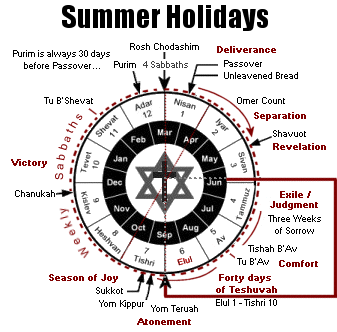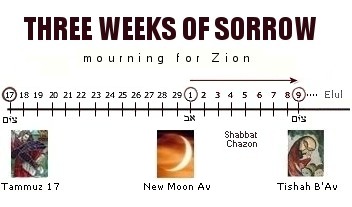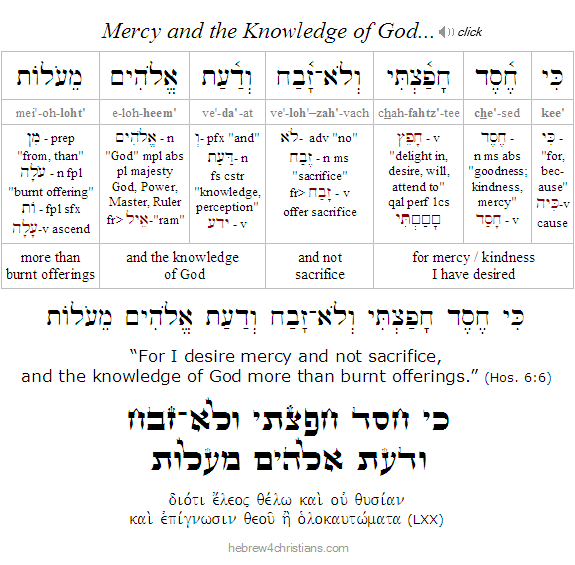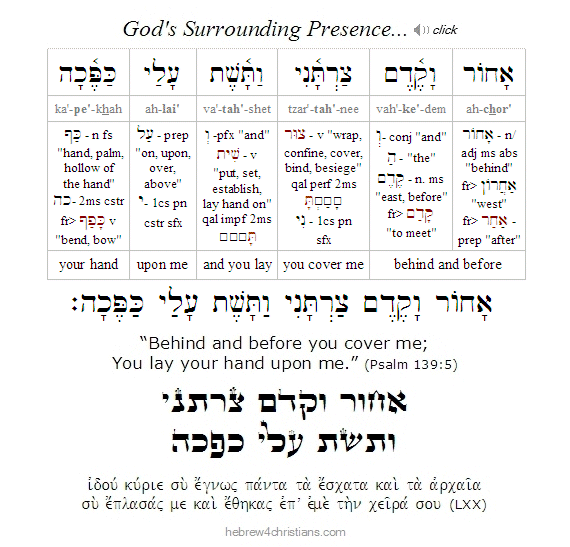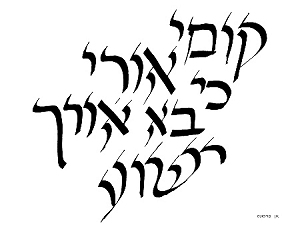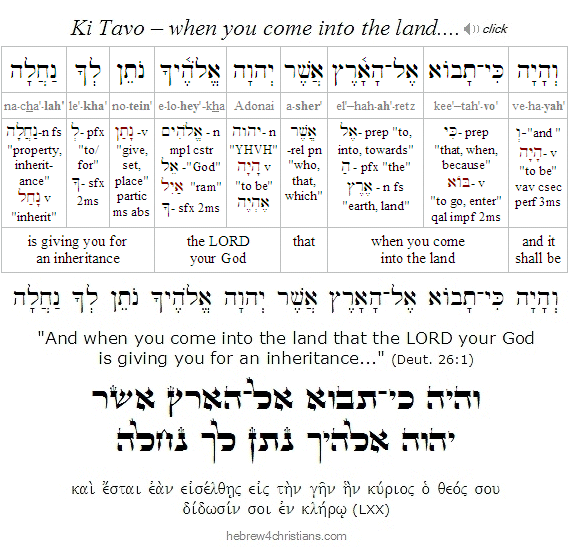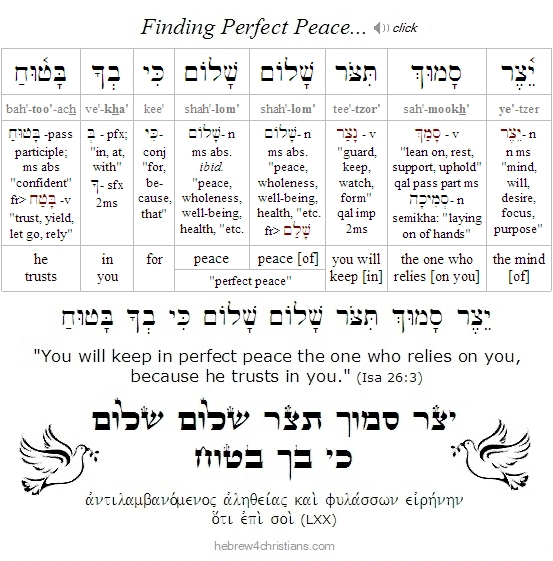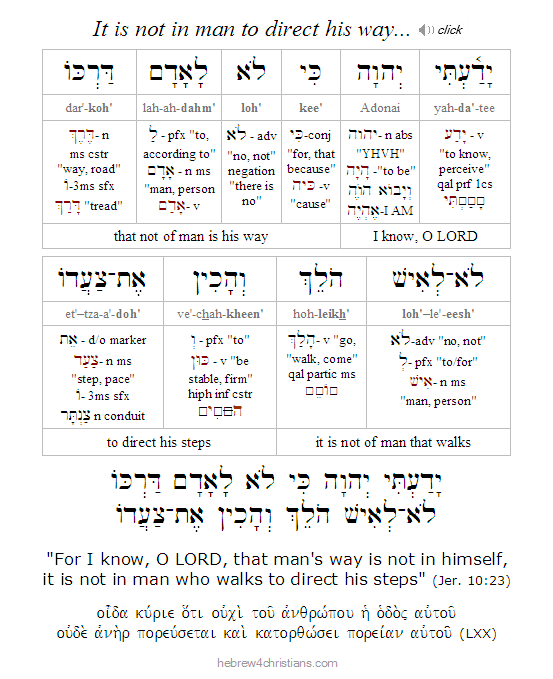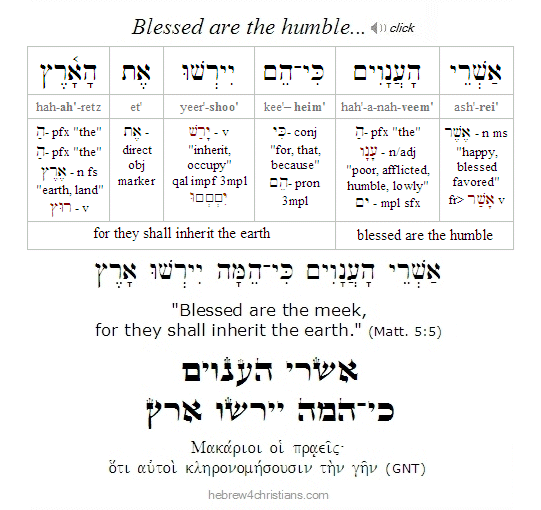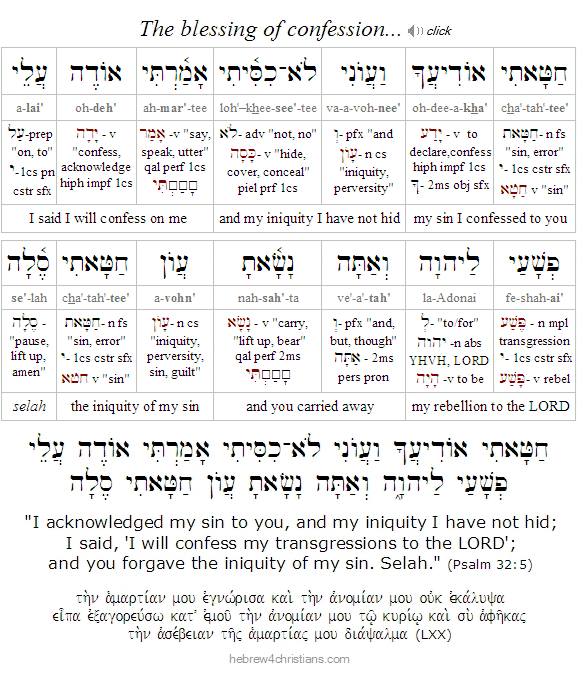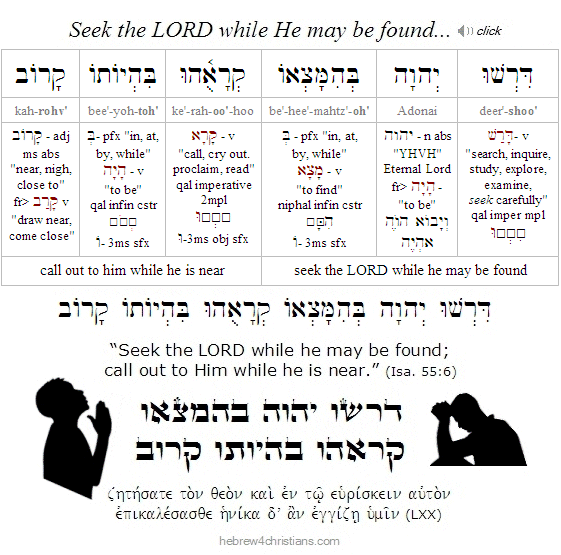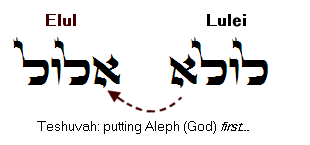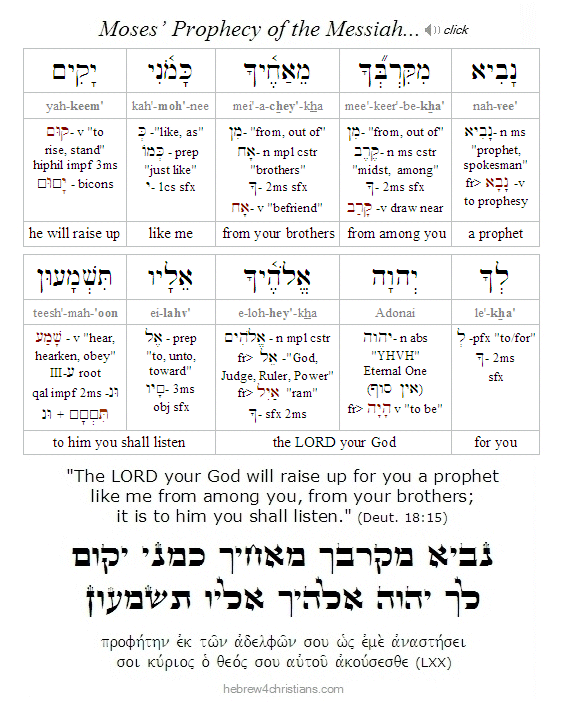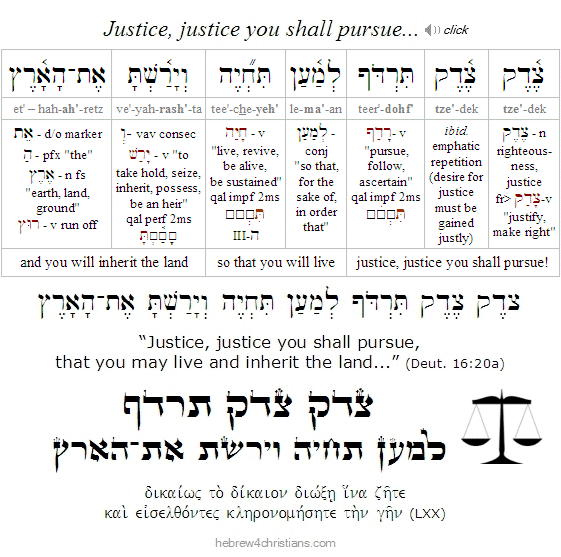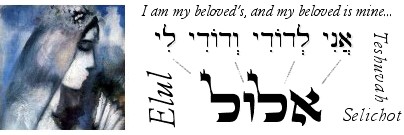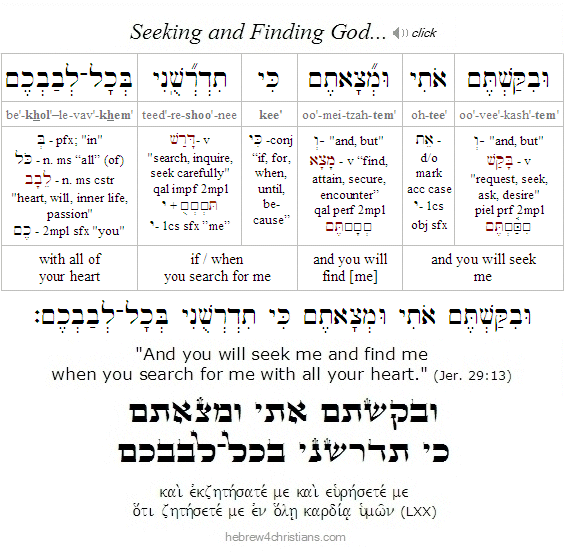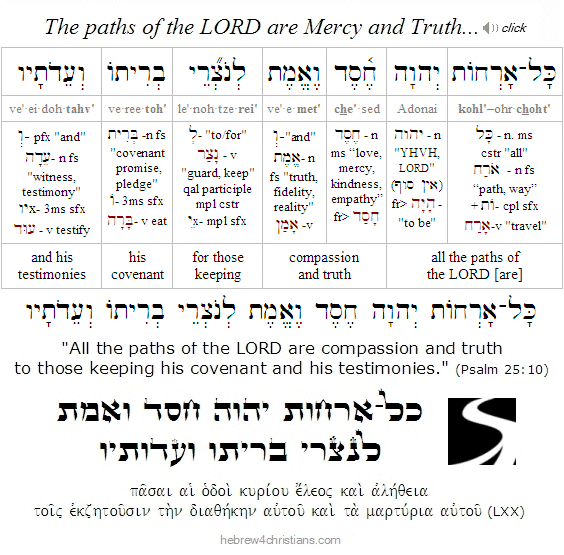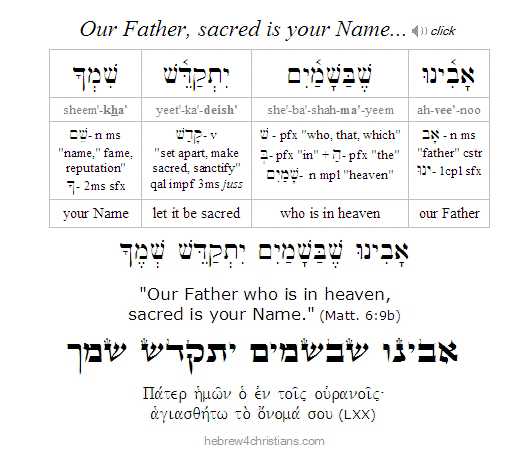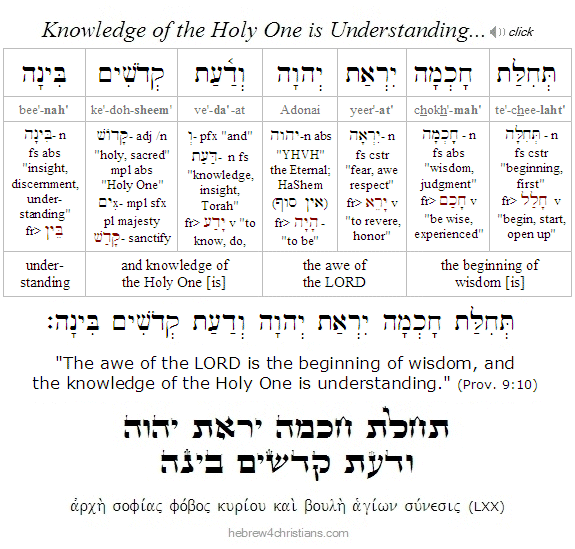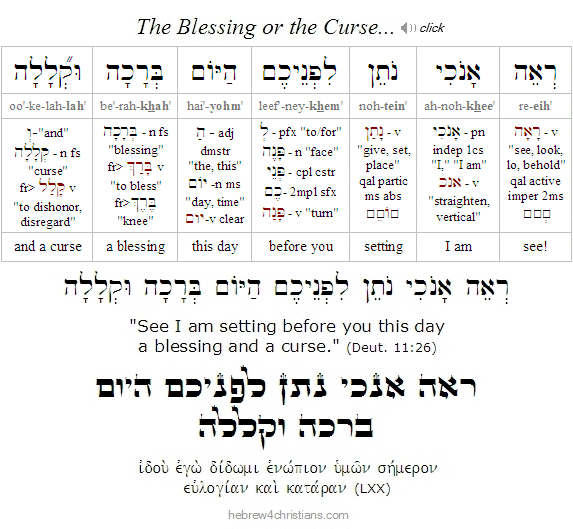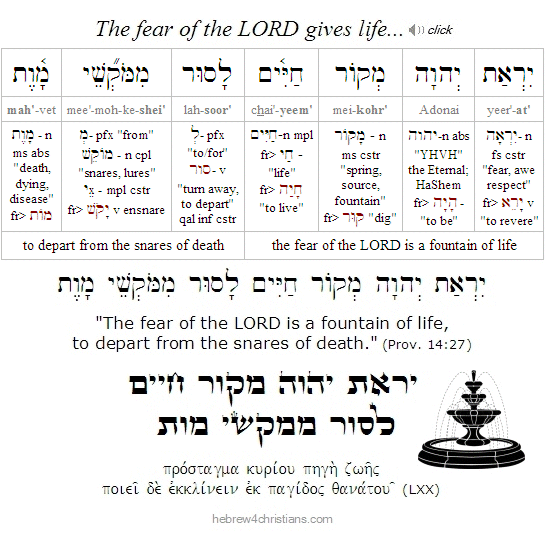|
Jewish Holiday Calendar
For August 2023 site updates, please scroll past this entry....
In the summer there occurs a three week period of mourning that begins with the Fast of Tammuz and ends with Tishah B'Av. The last nine days of this three week period (i.e., from Av 1 until Av 9th) are days of increased mourning. However, after this somber time, the romantic holiday of Tu B'Av, the 15th of Av occurs. Summer ends with the 30 days of the month of Elul, a yearly season of teshuvah (repentance) that anticipates Rosh Hashanah and the fall holidays. The 30 days of Elul are combined with the first 10 days of the month of Tishri to create the "Forty Days of Teshuvah" that culminate with Yom Kippur.
Because they occur between the spring and fall holidays, the summer holidays help us prepare for the second coming of the Messiah:
The Summer Holidays:

Note that in accordance with tradition, holiday dates begin at sundown. Moreover, some holidays may be postponed one day if they happen to fall on the weekly Sabbath:
- Month of Tammuz (Tues. June 18th [eve] - Tues. July 18th [day])
- Month of Av (Tues. July 18th [eve] - Wed. Aug. 16th [day])
- Month of Elul (Wed. Aug. 16th [eve] - Fri. Sept. 15th [day])
Note: For more about the dates of these holidays see the Calendar pages....
August 2023 Updates
Note: Please refresh the page (or press F5) to see the latest updates...
The Time of Visitation...
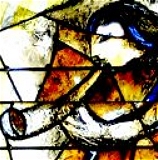
08.31.23 (Elul 14, 5783) We must ready our hearts for the time of the Lord's coming, for the hour draws nearer... Yeshua lamented over Israel: "You did not recognize the time of your visitation..." (Luke 19:44). But how was it possible for otherwise devoutly religious people to miss the advent of the Messiah were it not because they disregarded the signals meant to awaken them? "So also, when you see all these things, you know that he is near, at the very gates" (Matt. 24:33). That's part of the meaning of teshuvah as well: Repent and believe the message of life (see Heb. 3:7-4:11). Esau "repented" with tears, but his wasn't true repentance since he did not turn his heart to embrace the truth of God's love...
True repentance always leads to healing and life. When the woman from Magdala wept and washed Yeshua's feet with her tears, he said to those present, "I tell you, her sins, which are many, are forgiven -- for she loved much" (Luke 7:44-48). In other words, she was lavish in her love because she deeply regretted that she had missed what was most important, what she desperately needed all along... She realized her sin as blindness to God's love. After all, why would she weep over her sins unless she loved him? And how could she love him unless he first revealed his love to her? (1 John 4:19).
Friends, the Kingdom of God is at hand: wake up and be ready for the advent of the King! The sound of the shofar reminds us that the great Day of the LORD is drawing near and soon we will see our King Yeshua. Amen, Come Lord Yeshua!
Hebrew Lesson:
Proverbs 1:23 Hebrew Reading:
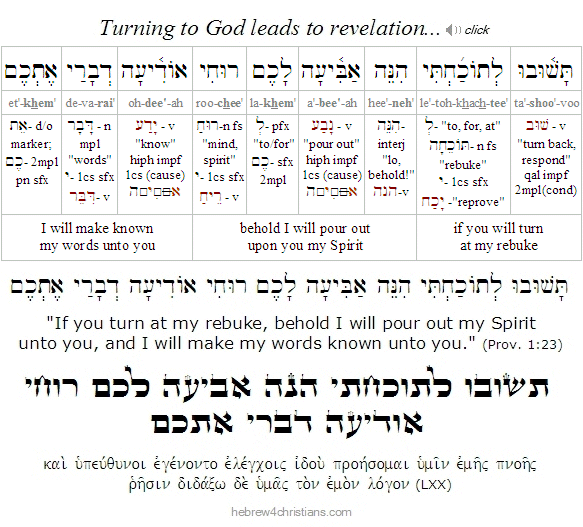 |
Imminence of the Tribulation...

[ The holiday of Yom Teruah begins on Friday, Sept. 15th at sundown... ]
08.31.23 (Elul 14, 5783) The first day of the seventh month is perhaps better named "Yom Teruah" (יוֹם תְּרוּעָה) rather than "Rosh Hashanah" (ראש השנה) because it signals something prophetic in the Kingdom of God. "Speak to the people of Israel, saying, 'In the seventh month, on the first day of the month, you shall observe a day of solemn rest, a memorial proclaimed with blast of shofars (תְּרוּעָה), a holy convocation. You shall not do any ordinary work, and you shall present an offering by fire to the LORD" (Lev. 23:24-25). What's interesting here is that a great shout (i.e., teruah, from רוּעַ, to shout or cheer) was commanded to be made at this time, but no explanation was given. Because of this the sages decided to regard Yom Teruah as "Rosh Hashanah," the head of the year, both because it marked the seventh month of the Torah's calendar, and the "shouting" of praise was interpreted to herald the fall harvest and the end of the agricultural year (see Exod. 23:16).
What I find interesting, however, is that while each new moon is inherently mysterious, the new moon of the seventh month, called Rosh Chodashim (ראש חדשים), points to the mystery of God in revelation to come. Again, while there is no explicit reason given why this communal shout of praise should occur at this time, on the Torah's calendar the fall holidays center on Yom Kippur (the Day of Atonement) and then, five days later, the holiday of Sukkot (Tabernacles) under the full moon. Prophetically, then, Yom Teruah may signify the great "catching away" or "rapture" of the people of Messiah in anticipation of the beginning of the final "week of years" that marks the Tribulation Period.
Recall that this period of time, known as "Daniel's 70th Week," is divided into two distinct parts. The first half of this week of years (i.e., 3.5 years) is a time of the implementation of a global control system as directed by the prince of darkness (later disguised as Israel's messiah), and the second half will be a time of progression judgments from heaven that will result in the overthrow and destruction of the world dictator. Based on Daniel 9:27, it is likely that after this evil world leader breaks covenant with Israel, the people will recognize him as a false messiah and a national conversion to Yeshua will then take place. The people of Israel will flee the land and the rise of the 144,000 "sealed" prophets will begin to evangelize the world (Matt. 24:15-22, Rev. 7; Rev. 14:1-5). Concurrent with Israel's atonement, the second 3.5 years will be a time of progressive judgments from heaven upon the false Messiah who, like Pharaoh of old, will be utterly destroyed when Yeshua returns to establish the promised Millennial Kingdom of Zion.
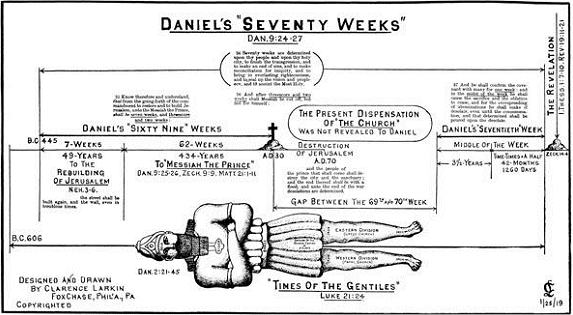 |
Now of course no one knows "the day or hour," as our Lord plainly said (Matt. 24:36, Acts 1:7), so we are forbidden to prognosticate the exact time of his return, though we are instructed to watch for the signs, and indeed Yeshua castigated the sages of his day for ignoring the signs that foretold his first coming (see Luke 19:44). In his account of the second coming as the Son of Man in his glory, Yeshua gave an picture of the state of the world before he would come, and he summarized his admonition with the "parable of the fig tree," saying that just as the sprouting of leaves on the tree indicates that summer draws near, so when we see these things we are to "know that it (i.e., the end of the age) is near - at the doors" (Matt. 24:33). Moreover we are instructed to "look for the blessed hope and the glorious appearing of our Lord Yeshua the Messiah" (Titus 2:13). "Keep yourselves in the love of God, waiting eagerly for the mercy of our Lord Yeshua the Messiah to eternal life" (Jude 1:21). "Therefore, preparing your minds for action, and being sober-minded, set your hope fully on the grace that will be brought to you at the revelation of Yeshua the Messiah" (1 Pet. 1:13).
For years I wondered how the Antichrist, or the "Man of Sin, the son of Perdition" would be able to gain control of the entire world system, but after Covid 19 was unleashed I watched in amazement as the entire industrialized world - every major city across the globe - was suddenly "locked down" and its citizens subjected to irrational mandates - surely an unprecedented display of power wielded by the satanic princes of this age! Indeed, with the rise of the World Economic Forum (WEF) and its globalist machinations (including coming cashless economies and the use of digital currencies), the World Health Organization and its fearmongering disinformation campaigns, the takeover of corporations by woke ideologues and the "great reset," the ubiquity of the internet and its censorship of information flow by the power elite, the rank perversion of educational institutions and the rise of "identity politics" to divide and control culture, the regular use of psychological warfare and propaganda as tools of the social control, the rise of global surveillance technologies, the instigation of global unrest and wars that will lead to global absolutism - all these things - and more - reveal how absolute control can be realized today like no other time in history.
Hebrew Lesson
Zephaniah 1:14a reading (click for audio):
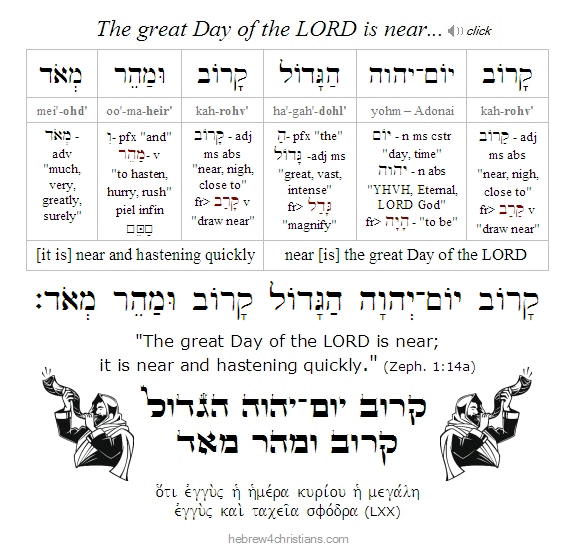 |
The Torah of Mercy...

08.30.23 (Elul 13, 5783) It has been said that grace is getting what you don't deserve, whereas mercy is not getting what you do... Yeshua said, "Blessed are the merciful, for they shall receive mercy" (Matt. 5:7). This is not a reciprocal law like karma, i.e., you get in return what you first give, since we cannot obtain God's mercy as reward for our own supposed merit (Rom. 4:4). No, we are able to extend mercy to others only when we are made merciful ("full of mercy"), that is, when we first receive mercy as the gift of God (Eph. 2:8; Rom. 5:15). After all, you can't give away what you don't have, and if we have no mercy for others, it is likely that we have not received it ourselves, as the parable of the Good Samaritan reveals (Luke 10:25-8). Your forgiveness is your forgiveness, that is, as you forgive, so you reveal your heart. What you do comes from what you are, not the other way around. We are first transformed by God's grace and then come works of love. We are able to judge others mercifully, with the "good eye," because we come to believe that we are beloved by God.
When Yeshua rebuked the "holier-than-thou" attitude of some people, he said: "Go and learn what this means, 'I desire mercy, and not sacrifice.' For I came not to call the righteous, but sinners" (Matt. 9:13). The pattern therefore abides: First you realize you are broken, impoverished of heart, and you mourn over your sinful condition (Matt. 5:3-4); then you hunger and thirst for God's righteousness, that is, for his healing and deliverance, and finally you learn to trust the mercy of God, that is, you come to accept that you are accepted despite your unacceptability (Matt. 5:5-6). As you begin "suffer yourself" and forgive your own evil, you are enabled to extend this mercy to others (Matt. 5:7). In this way you begin to see God in your relationships and obey the heart of truth (Matt. 5:8; 1 Sam. 15:22).
Though we love and honor truth, we must be careful never to use it as a weapon to judge or wound others. The failure to extend mercy, to demand your "rights" or hold on to grudges, implies that you are relating to God as Judge rather than as Savior (James 2:13). If we condemn what we see in others, we have yet to truly see what is within our own hearts; we have yet to see our desperate need for God's mercy for our lives. If you don't own your own sin, your sin will own you. Being merciful is a response to God's love and therefore is essential to genuine teshuvah (repentance). Walking in love is the deepest expression of truth, since love heals untruth and embraces hope for what is presently broken (1 Cor. 13:7). In light of this, take a moment to ask the LORD to help you relinquish the pain of your past by being full of mercy toward yourself and others. Honor God's love for you by forgiving yourself and showing compassion and mercy to others in your life...
Hebrew Lesson
Hosea 6:6 Hebrew reading (click):
Spelling out "Teshuvah"

08.30.23 (Elul 13, 5783) Taken as a whole, the central message and ultimate point of the Scriptures is to turn to God for life... Rabbi Sussya once said: "There are five verses in the bible that constitute the essence of the Torah. These verses begin in Hebrew with one of these letters: Tav (תּ), Shin (שׁ), Vav (ו), Bet (בּ), and Hey (ה), which form the word for repentance, namely,"teshuvah" (תְּשׁובָה). The five verses are: 1) Tamim tiheyeh (תָּמִים תִּהְיֶה): "Be wholehearted before God" (Deut. 18:13); 2) Shiviti Adonai (שִׁוִּיתִי יְהוָה): "I have set the LORD always before me" (Psalm 16:8); 3) Va'ahavta lere'akha (וְאָהַבְתָּ לְרֵעֲךָ): "Love your neighbor as yourself" (Lev. 19:18); 4) Be'khol derakekha (בְּכָל־דְּרָכֶיךָ): "In all your ways know Him" (Prov. 3:6); and 5) Higgid lekha (הִגִּיד לְךָ): "Walk humbly with your God" (Micah 6:8). In other words, "teshuvah" (repentance) is an acronym that stands for being whole, seeing God, loving others, knowing God in all your journey, and walking in humility...
Hebrew Lesson
Micah 6:8 Hebrew reading (click):
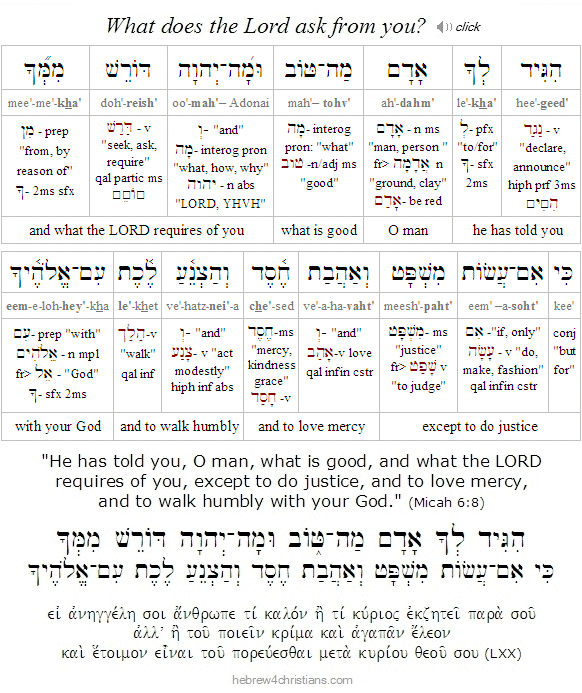 |
Is Rosh Hashanah Biblical?
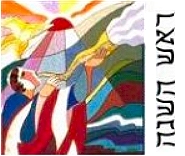
[ The holiday of Rosh Hashanah begins on Friday, Sept. 15th at sundown... ]
08.29.23 (Elul 12, 5783) Though the term "Rosh Hashanah" (ראש השנה) does not explicitly occur in the Torah, the beginning of the 7th month (i.e., Tishri 1) is clearly to be set apart as "Yom Teruah" (יום תרועה), a day of shofar blowing (see Lev. 23:24-25, Num. 29:1-2). When we consult Jewish tradition for some additional insight about what this means, we discover that the sages and great commentators of the Torah universally regarded the number seven as the number of completeness. Just as the seventh day of the week was considered sacred, so too is the seventh month of the year. Therefore the sages reasoned that since each new moon (rosh chodesh) is regarded as a sacred time (see Num. 10:10), it's logical that the seventh new moon (counting from Nisan in the spring) should acquire special sanctity. This conclusion seems especially justified in this case because God directly commanded Israel to sanctify the seventh month as a solemn day of "remembrance and shofar blowing" (זִכְרוֹן תְּרוּעָה). Therefore while it is clear that the new moon of the seventh month is to be observed as "Yom Teruah," it nevertheless has a somewhat "concealed" significance, suggestive of the absence of the moon on that date itself...

Note, however, that the Torah calls the end of the harvest year (in the fall) the "end of the year" (i.e., חַג הָאָסִף בְּצֵאת הַשָּׁנָה, see Exod. 23:16), which implies both the start of a new year and the symmetry of the calendar: the fall festivals "mirror" the spring festivals and correspond to one another. Just as there is a "new year" in the spring, on the new moon of Nisan, so there is in the fall, on the new moon of Tishri, the seventh month... The Psalmist likewise regarded the new moon of the seventh month as especially significant (Psalm 81:3-4). And after the return of the exiles, Ezra the Scribe gathered the people at the Water Gate in Jerusalem on the first of Tishri to read the Torah before the people (see Neh. 8:1-9). Ezra's action may have been the precedent among the later sages for investing Tishri 1 with its distinctive status. That is why we make a "teruah" shout of thanks to God in anticipation of the fulfillment of God's promises and redemptive purposes during the End of Days.
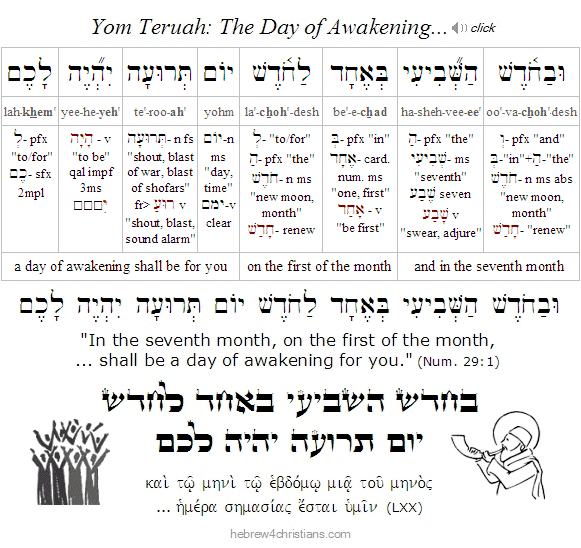 |
The question about Rosh Hashanah has to do with the authority of Jewish tradition itself. Does the Jewish community have sanction to establish the date of Hebrew calendar? To establish the start of the month? To determine if a year was shemittah (a sabbatical year)? To sound the shofar and declare a Jubilee? According to Moses, the answer is a qualified "yes." After all, it's clear that Moses established judges and courts to determine such matters and to develop case law based on the precepts of the Torah (e.g., see Deut. 16:18). This "chain of authority" was later codified by the sages of the Mishnah, who said it was given by God first to Moses, then Joshua, then to the 70 elders, then to the prophets, and then to Ezra and the men of the Great Assembly (Pirke Avot 1:1). And according to "mainstream" Jewish tradition, Tishri 1 has been established as a "rosh hashanah" from at least the time of the return of the exiles (4th century BC). This is further attested by Flavius Josephus (first century AD) who wrote: "Moses ... appointed Nisan ... as the first month for the festivals ... the commencement of the year for everything relating to divine worship, but for selling and buying and other civil affairs he preserved the ancient order [i. e. the year beginning with Tishri]" (Antiquities 1.81). Even Yeshua Himself endorsed Ezra's division of the Scriptures into the "Law, Writings, and the Prophets" and said that not a "jot or a tittle" (kotzo shel Yod) would pass from the Torah until all was fulfilled (Luke 24:44; Matt. 5:18).
That said, there are undoubtedly a lot of Rabbinical "additions" that have accrued to the holiday over the centuries, especially since the destruction of the Second Temple. Despite this, hovever, let me suggest that many of the traditions of Rosh Hashanah can be genuinely helpful for us. For instance, undergoing self-examination and doing teshuvah are commanded by God and inherently valuable exercises for followers of Yeshua (see Lam. 3:40; Haggai 1:5; Psalm 119:59; Matt. 7:3-5, Gal. 6:3-4, 1 Cor. 11:28, 2 Cor. 13:5, James 5:16, 1 John 1:8-9, etc.). Setting aside 40 days each year to help us turn away from sin is a healing custom, especially if it's done in light of truth of the gospel message. After all, Christians will stand before the Throne of Judgment (kisei ha-din) to give account for their lives to God (see 2 Cor. 5:10). As it is written: "Every man's work shall be made manifest: for the day shall declare it, because it shall be revealed by fire; and the fire shall try every man's work of what sort it is" (1 Cor. 3:13). The foundation of every true work of God comes from trusting in the finished work of Yeshua the Messiah, and the work of our faith will be tested and judged. We have great consolation in our testings, friends: if we are honest with the Lord and appeal to Him for help, He promises to be there for us (Heb. 4:15-16).
For more on this subject, see Is Rosh Hashanah Biblical?
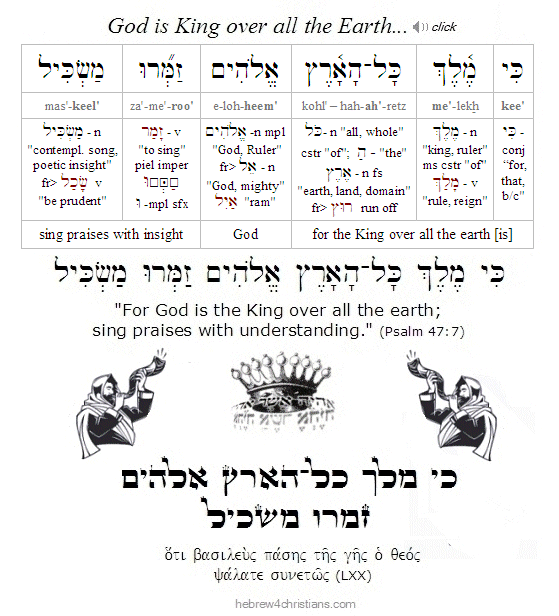 |
Looking for Home...

08.29.23 (Elul 12, 5783) Our faith in Yeshua brings us into collision with the world and its vanities. We are to be "crucified to the world," and therefore we seek matters above, out of sight of other men. "We do not look at things that are seen, but things that are unseen" (2 Cor. 4:18). We are estranged from the world because we look away from its attractions, heeding the promises of the Eternal Lord, longing for that place that transcends the temporal pleasures and fleeting dramas of this age. God has subjected this world to vanity yet has set "eternity within our hearts" so that we abide in hope.
Meanwhile we regard all things as they relate to the truth of spirituality as taught by our Lord. We recognize God's moral law and the voice of conscience that overrules the vagaries of man's self-serving laws, understanding that all that we say, do, and think will be judged upon our death before the truth of God. We therefore look askance at worldly politics and the machinations of the godless, understanding that we groan in this life and are burdened, earnestly desiring death to be "swallowed up" in life, and that we should be clothed in the immortality of eternal life (2 Cor. 5:4).
Just as you trust and accept that Yeshua was crucified for you, identifying with you, taking your place in judgment, exchanging his life for your own, so you trust and accept that you have been crucified with him, and that your old life was taken away and replaced with a new, indestructible nature of his resurrection life. In other words, a union is created where his "for me" is answered by my "with him." Χριστῷ συνεσταύρωμαι – "I already have been crucified in Messiah" (Gal. 2:20). Indeed the two go together: to trust in the finished work of Messiah for you is to trust in his finished work within you... When he died on the cross for you, which sins didn't he bear on your behalf? which remedy did he leave unfulfilled?
Hebrew Lesson
Psalm 73:24 reading (click):
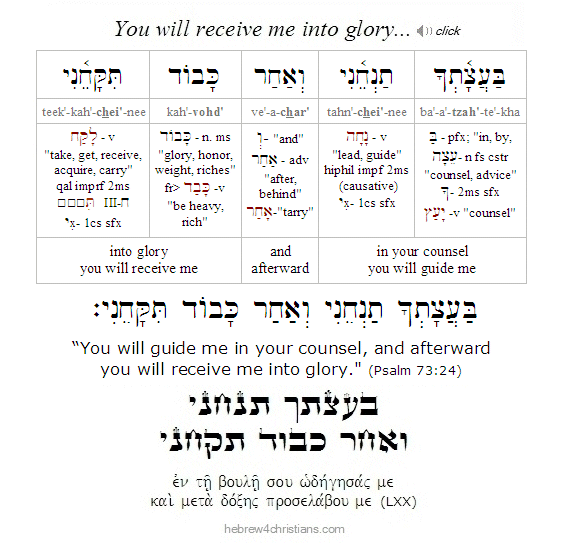 |
Finding Life in God...

08.28.23 (Elul 11, 5783) The name of the Lord is YHVH (יהוה), which comes from a root word meaning existence (i.e., hayah: היה, to be). It is this name that gives existence to creation, as it says, "in him all things hold together" (τὰ πάντα ἐν αὐτῷ συνέστηκεν; Col. 1:17) and by his power "all things are carried" (φέρων τε τὰ πάντα; Heb. 1:3).
In God we "live and move and have our being" (Acts 17:28) and "from him and through him and to him are all things" (Rom. 11:36). Some people think of "eternal life" as unending life or immortality of the soul, but eternal life (i.e., chayei olam: חַיֵּי עוֹלָם) transcends the idea of time and is centered in relation to the Living God, right now, wherever we are... Therefore Yeshua says to his followers, "Live in me and I will live in you" (John 15:4). We need not fear death, then, because we partake in the overcoming life of God given in Yeshua: there is no ultimate separation from his love. We have the "now" covenant with our Lord forever!
When we live in Messiah our true life is "concealed" and we pass over from the temporal world of shadows to the world of reality, from fear to comfort, from darkness to light. We "lose our life in order to find it" (Luke 17:33). The walk of faith surrenders all that this life may promise for the sake of finding true life in God.
Hebrew Lesson:
Psalm 139:5 Hebrew reading (click):
The Reward of Faith...

08.28.23 (Elul 11, 5783) Shalom friends. Perhaps you (like me) need some encouragement today. "Let us not grow weary while doing good, for in due season we shall reap if we do not lose heart" (Gal. 6:9); "therefore be steadfast, immovable, always abounding in the work of the Lord, knowing that your labor is not in vain in the Lord" (1 Cor. 15:58).
Let us not grow weary... These are indeed difficult days, but do not lose sight of your end, the goal for which you have "put your hand to the plough." The present hour may seem tedious and the way difficult; the soil may be hard and the sun high, but remember the calling of God upon you, and hold fast to the great privilege you have been given to serve Him...
Why do we serve the Lord? Are we as hirelings in his vineyard? Do we seek him to satisfy our lusts or to gain "worldly prosperity"? God forbid! We are children of the Landowner, and we gratefully serve in response to his love and his call. We are seeking the "true riches" of heaven, spiritual blessings in heavenly places. We seek to live in our Father's house. We love him because of who he is, not because of what he gives us.
We forsake everything to follow the Lord, and ultimately our reward is to be with Him forever, connected with him in the truth. Heaven is to be in his Presence, knowing and enjoying his heart forever. I do not seek "streets of gold" but my heavenly Father's embrace. No greater joy will come to the heart that hears Yeshua say, "Well done, good and faithful servant..."
Any sacrifices we make are not burdens but blessings when we understand our great privilege of serving God. The "first shall be last, and the last shall be first" means that our temporal circumstances are irrelevant, for any "reward" we may receive reflects the heart and generosity of the Lord whom bestows grace upon us. The "crowns" God provides us with all belong to him, the one who loved us and gave himself for our deliverance.
God rewards those who earnestly seek him. This hearkens to the promise made to Abraham: אל־תִּירָא אַבְרָם - "Fear not, Abram," אָנכִי מָגֵן לָךְ – "I am your Shield," שְׂכָרְךָ הַרְבֵּה מְאד - your reward shall be very great" (Gen. 15:1). "For the LORD God is a sun and shield; the LORD bestows favor and honor. No good thing does he withhold from those who walk in trust" (Psalm 84:11). God imparts favor to those who honestly seek Him, as it is written: "and you shall seek me, and find me, when you shall search for me bekhol levavkha - with all your heart" (Jer. 29:13). That is the teshuvah (answer) to God's haunting question regarding your life; you find "all your heart" as you seek God's presence in all your ways (Prov. 3:6). Faith is its own reward since it imparts access to God's Presence to you (Rom. 5:1; Eph. 3:12).
"Fear not, for I am with you..." אַל־תִּירָא כִּי עִמְּךָ־אָנִי. What we need most of all is right here, present in this hour, whether we're conscious of it or not. Let's draw close by faith, chaverim.
Hebrew Lesson
Psalm 46:4 reading (click for audio):
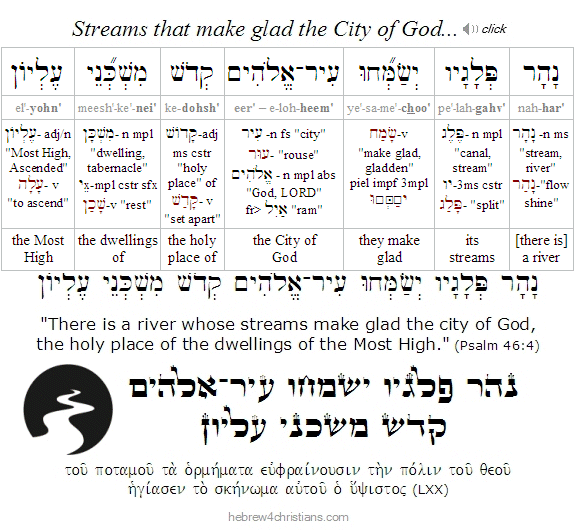 |
The High Cost for Apathy...

[ One of the great sins of our age is that of "acedia" (ἀκηδία) sometimes translated as "sloth," but is better regarded as a lack of care... It is a state of being numb, unfeeling, and emotionally disconnected from life. It's a type of heartlessness. Kierkegaard would describe it as a form of despair that refuses to surrender to God, or an attitude that refuses to accept responsibility.... ]
08.28.23 (Elul 11, 5783) From our Torah for this week (i.e., Ki Tavo) we read: "Cursed is anyone who does not uphold the words of this Torah to do them" (Deut. 27:26). This is because 1) God is God; 2) ultimate reality is non-negotiable, and 3) we are eternally accountable for all that we do (Matt. 12:36; Heb. 4:13). "Each person's deeds will become manifest, for the Day will disclose it, because it will be revealed by fire, and the fire will test what sort of deeds each one has done" (1 Cor. 3:13). There is a Scroll that attests the reality of all truth, and the life of every soul created by God is recorded therein (Rev. 20:12).
We are forbidden to add or subtract from Torah, since that is to refashion God's message into one of our own understanding (Deut. 4:2). Reading the tochachah or "rebuke" in our portion (i.e., Deut. 28:15-68) is difficult and painful, though it serves as a bitter medicine to wake us up from our lethal coma. In that sense the tochechah is a great blessing, since it shocks us into experiencing the "gravity of God's grace." This is why Yeshua proclaimed grave warnings about the dangers of forfeiting life and thereby "receiving" hell... Sin is a lethal problem, and we must turn to God for healing or we will die.
The Lord does not allow us to trifle with the truth, neither will he offer us a good that excludes Divine Reality since there simply is no such thing. God does not give us the option of affecting existential indifference toward Him, since apathy is as much a spiritual decision as is outright rebellion and apostasy. "If anyone thinks he has faith yet is indifferent toward this possession, is neither hot nor cold, he can be certain that he does not have faith. If anyone thinks he is a Christian and yet is indifferent toward being that, then he is not really one at all. Indeed what would we think of a person who gave assurances that he was in love and also that it was a matter of indifference to him?" (Kierkegaard). As King David inscribed upon his heart: "Guard me, O God, for in you I take refuge. I say to the Lord, "You are my Lord; I have no good apart from you" (Psalm 16:1-2).
Hebrew Lesson
Psalm 16:2 reading (click):
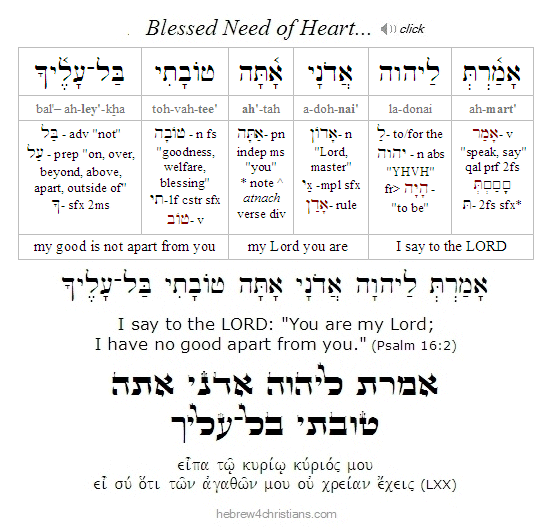 |
Holy Introspection....
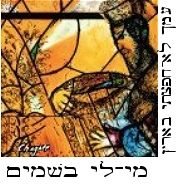
[ The call to do teshuvah requires courage and honesty, but a fearful life is not worth living.... ]
08.28.23 (Elul 11, 5783) Shalom friends... We are all on a spiritual journey, writing the "Book of our Life." To help us in the "writing" process, the Jewish sages decided that the entire month of Elul should be set aside as a season for cheshbon hanefesh (חֶשְׁבּוֹן הַנֶּפֶשׁ) - "making an account of the soul." This means that we attempt to engage in honest self-examination about our behavior and ask where we have been and where we are going. After all, what is the essence of teshuvah (i.e., "repentance") if it is not honesty with yourself? "For everyone who does wicked things (lit., ὁ φαῦλα, that which is "easy," "worthless," or "vain") hates the light and does not come to the light, lest his works should be exposed" (John 3:20). Therefore we make some time to reflect about our lives from the previous year. We ask searching questions like, "How did I get to this place in my life?" "Where am I now?" "Am I where I should be?"
We engage in this process of self-examination with an aim to grow -- to let go of the pain and mistakes of the past in order to move forward. Confession (i.e., homologia: ὁμολογία) means bringing yourself naked before the Divine Light to agree with the truth about who you are. Indeed, the related verb word "homologeo" (ὁμολογέω) literally means "saying the same thing" - from ὁμός (same) and λόγος (word). We need to confess the truth if we are to be healed from the pain of the past (James 5:16). When King David wrote, יְהוָה אוֹרִי וְיִשְׁעִי מִמִּי אִירָ֑א - "The LORD is my Light and my salvation; whom shall I fear? (Psalm 27:1), he implied that he should even be free of fear of himself and of his past.
Of course we need God's help to do any of this, since it is easy enough to deceive ourselves, to deny the truth, in an attempt to protect our ego from shame. However being honest with ourselves is absolutely essential for any sort of authentic spiritual life... "No person is saved except by grace; but there is one sin that makes grace impossible, and that is dishonesty; and there is one thing God must forever and unconditionally require, and that is honesty" (Kierkegaard). Confession means "saying the same thing" about ourselves that God says - and that means not only acknowledging our various sins, transgressions, and iniquities, but also affirming our new identity as the beloved children of God. Saying that God doesn't love you is a lie as damning as denying His very existence...
Hebrew Lesson
Psalm 139:23-24 Hebrew reading (click):
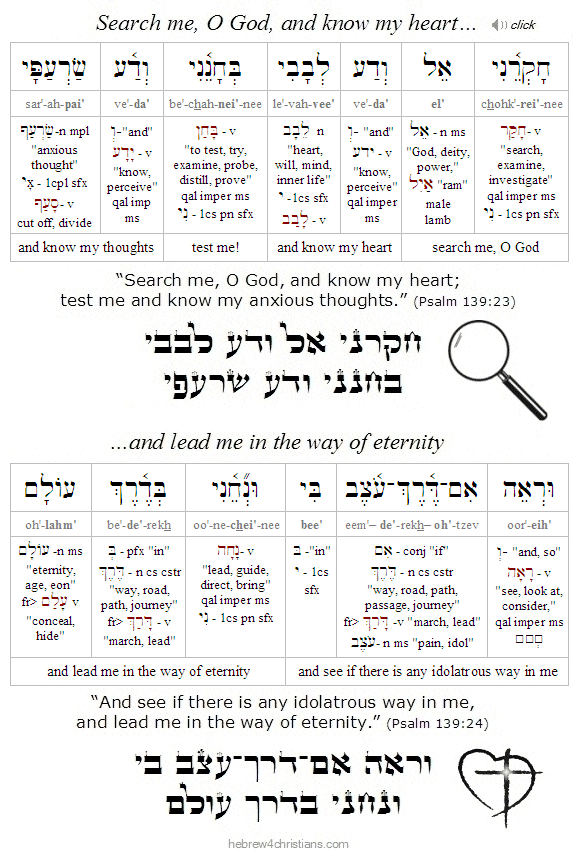 |
Shabbat Kumi Ori - קוּמִי אוֹרִי
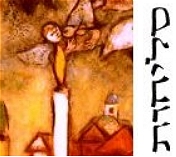
[ The following entry concerns this week's Torah reading, parashat Ki Tavo... ]
08.27.23 (Elul 10, 5783) Shalom dear friends (שלום יקירים). The great holiday of Rosh Hashanah (i.e., "Yom Teruah") will begin in about two and a half weeks (i.e., Friday, Sept. 15th at sundown). During the time leading up to the High Holidays, it is customary to engage in cheshbon ha-nefesh ("soul searching") and to derive comfort that God is forgiving and loving to those who sincerely turn to Him. Because of this, the Jewish sages chose seven "Haftarot of comfort" to encourage us to ready our hearts for the upcoming High Holiday Season.
The haftarah for Ki Tavo (i.e., Isa. 60:1-22) is the sixth of the seven readings from the prophets that are consecutively read before Rosh Hashanah. These "haftarot of comfort" foretell of the restoration of the Jewish people and of the coming of the Messianic Era. In this week's reading, the haftarah portion describes the long-awaited future salvation of the nation of Israel. The LORD promises to shine His glorious light upon the Jewish people and to reveal His glory, despite the hour of darkness and tribulation that comes upon the earth:
"Arise and shine (קוּמִי אוֹרִי) for your light has come, and the glory of the LORD (כְּבוֹד יהוה) has risen upon you. For behold, darkness shall cover the earth, and thick darkness the peoples; but the LORD will shine upon you (וְעָלַיִךְ יִזְרַח יהוה), and his glory will be seen upon you (וּכְבוֹדוֹ עָלַיִךְ יֵרָאֶה). And nations shall come to your light, and kings to the brightness of your rising. Lift up your eyes all around, and see; they all gather together, they come to you; your sons shall come from afar, and your daughters shall be carried on the hip" (Isa. 60:1-4).
Sometime during the "plague of darkness" that represents the time of the Great Tribulation (i.e., the Day of the LORD and the judgment of the world, or Yom Adonai), Israel will finally turn to the LORD and receive Yeshua as their long-lost Messiah (Zech. 12:10). The veil will finally be taken away, and all Israel will be saved (Rom. 11:26; Isa. 59:20). The Light of Salvation (אור הישועה) will be revealed and the glory of the LORD (כְּבוֹד יהוה) will radiantly shine (זָרָח) upon the Jewish people. The land of Israel will be like Goshen during the times of the plagues of Egypt as the world powers are all judged and destroyed. Then the survivors of the nations will understand that the LORD is indeed with Israel and will turn to Him in surrender as well. "And the glory of the LORD shall be revealed, and all flesh shall see it together, for the mouth of the LORD has spoken" (Isa. 40:5). Yeshua will return to Zion to establish the Kingdom of God upon the earth (Zech. 2:10-13).
Hebrew Lesson:
Isa. 60:1 Hebrew reading (click):
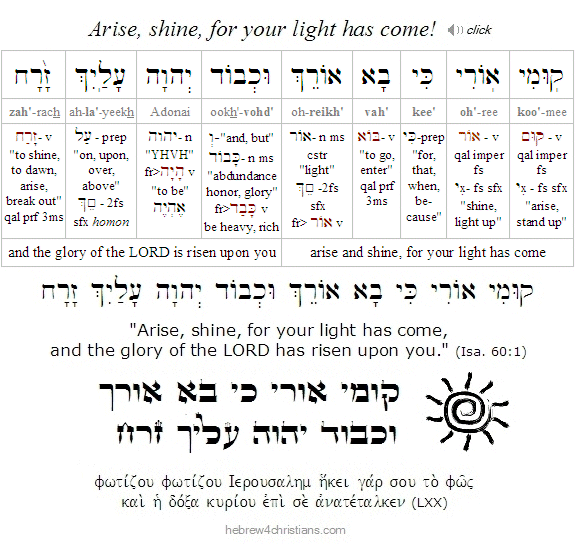 |
The LORD said to Moses from the midst of the shining flame: 'Take off your sandals from your feet, for the place on which you stand is holy' (Exod. 3:5). The Chofetz Chaim comments: We all need to rise higher... Never say, I will be able to lift myself up at another time or different place. By faith see that this place, right now, is holy ground, and awaits your response.
Note: For more on this haftarah see: "The Coming Glory of Zion: Haftarah Ki Tavo."
This Week's Podcast:
Parashat Ki Tavo..
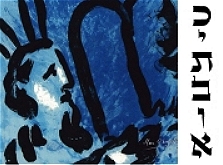
08.27.23 (Elul 10, 5783) In this week's "Shavuah Tov" audio podcast (see the links below) I discuss the the 40 day "Season of Teshuvah" leading up to the Jewish High Holidays as well as the central themes from weekly Torah portion, parashat Ki Tavo, which includes instructions for the people to ratify the Sinai covenant in the promised land by means of a special covenant renewal ceremony performed in the valley between Mount Ebal and Mount Gerazim. During this ceremony blessings for obedience and curses for disobedience would be declared, and Moses warned the people by providing a seemingly endless description of terrible consequences that would befall the Jewish people if they disobeyed the terms of the Sinai covenant (Deut. 28:15-68). I hope you will find it encouraging.
This Week's Torah:
Parashat Ki Tavo - כי־תבוא
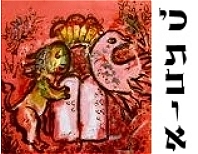
08.27.23 (Elul 10, 5783) Shalom, chaverim! Our Torah portion this week (Ki Tavo) includes instructions for the people to ratify the Sinai covenant in the promised land by means of a special ceremony performed in the valley between Mount Ebal and Mount Gerazim (later fulfilled by Israel, see Josh. 8:30-35). During this ceremony the blessings for obedience and the curses for disobedience would be declared, and Moses warned the people by providing a seemingly endless description of terrible consequences that would befall the Jewish people if they disobeyed the terms of the Sinai covenant (Deut. 28:15-68). In Jewish tradition this litany of woe is called the "tochachah" (תּוֹכָחָה), a word that means "rebuke" or "reprimand."
Reading the tochachah is difficult and painful, though it serves as a bitter medicine to wake us up and prevent us from falling into a lethal coma. In that sense the tochechah may be regarded as a great blessing, since it shocks us into experiencing the gravity of God's grace. This is similar to Yeshua's grave warnings about the dangers of hell. If we refuse to listen or rush past his words, we are missing the substance of God's lament given through the Hebrew prophets. Sin is a lethal problem, and we must turn to God for healing or we will die. As Blaise Pascal once wrote, "Between heaven and hell is only this life, which is the most fragile thing in the world." Therefore shuvah! -- turn to God and receive the blessing of life!
Hebrew Lesson:
A Precious Forgiveness...

08.25.23 (Elul 8, 5783) There is a temptation to minimize (or to psychologize) our sin, and thereby to minimize our need for deliverance from ourselves. We tend to be proud and foolish, thinking that somehow we're "going to make it," though to what end we are often unaware. Make it to what? We sometimes act as if there's a finish line up ahead and it's up to us to keep on going. It is therefore an offense to our pride and yet a blessing from heaven to get our knees taken out from under us, to encounter difficulties and troubles that we just can't manage, to feel overwhelmed, powerless, and needy, because this opens our hearts to what is real. אל־יְהוָה בַּצָּרָתָה לִּי קָרָאתִי וַיַּעֲנֵנִי- "In my trouble I cried out to the Lord, and he answered me" (Psalm 120:1).
Minimizing sin means that we regard the forgiveness of sin as a sort of "general truth," or an abstract theological concept, similar to the idea that God loves the world at large. In the realm of the spirit, however, there is no such thing as a "general truth," since God who knows all things does not generalize about anything whatsoever. The incarnation of Yeshua is infinitely personal; God doesn't save a nameless group of people, he saves individuals. He came to personally save you - you, as if you there were no others, for indeed, there are no others when it comes to your relationship with the Lord. How else can we fathom the atonement at the cross? How was Jesus made sin for you if your sins were not borne by him? Our particular sins were atoned for, not in a "general" substitutionary exchange given on behalf of an abstract humanity, but especially for you and for the guilt of your own sin.
Not a sparrow falls without your heavenly Father Knowing; not a lily of the field takes bloom apart from God's ministering hand. The very hairs of your head are all numbered. "Thou compassest my path and my lying down, and art acquainted with all my ways" (Psalm 139:3).
It's been said that the cross upon which Yeshua died was likely no more than nine feet in length, to make it easy for the Romans to take the body down after death. This implies that, after inserting and securing it into place, the stake may have been just six or seven feet from the ground. Some might recall how a bystander filled a sponge with vinegar and then used a reed to give to Yeshua as he was upon the cross, but it is likely the reed was no more than 18 inches or so in length (Matt. 27:48). This suggests something profound, namely, that Yeshua would be nearly eye-level to us as he was dying...
Imagine, then, walking up before the cross and seeing Yeshua look upon you as he was suffering. Imagine further him saying to you, "I know you; I know your secret sins, the pain of your shame, your heartache, your guilt, your loss... But I offer myself up for you; I take your place in judgment, so that by means of my death, you shall live..."
Hebrew Lesson
Isa. 53:5 Hebrew reading (click):
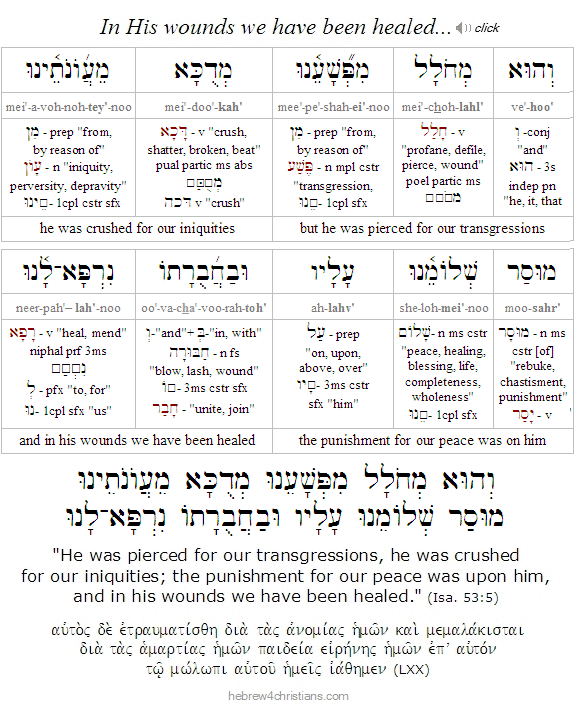 |
Teshuvah and Truth...

[ People perish because "they refuse to love the truth and so be saved" (2 Thess. 2:10-12). Therefore the issue of truth - physical, moral, aesthetic, spiritual, etc. - is central to salvation. ]
08.25.23 (Elul 8, 5783) In the New Testament, the Greek word metanoia (and its related verb, metanao) is the most commonly used word to express the idea of "repentance." The compound word is formed from the prefix 'μετα-' (after, with) combined with 'νοεω' (to think) and generally means "changing your mind" (in the noun form) or "thinking differently" (in the verb form). Since it can also represent an "afterthought" expressed emotionally as disappointment over a loss of some kind, metanoia is similar to the idea of nacham (נָחַם) in the Hebrew Scriptures, which literally means to "sigh" heavily as a way of expressing regret or consolation. The Greek word strepho (στρέφω), like the Hebrew word shuv (שׁוּב), means to "return" to God in a practical sense, that is, by performing acts of contrition. In either case, however, a change of direction is implied, and that change ultimately begins with changing how we think and what we regard as the truth. Repentance, then, involves a new vision, a new way of seeing reality...
Yeshua's earthly ministry began with the message, "The time has come and the kingdom of God draws near: repent (μετανοεῖτε) and believe (πιστεύετε) the good news" (Mark 1:15). These two verbs (repent and believe) are in the imperative mood. We are commanded to repent, to "change our thinking," and therefore to turn away from hopelessness - and the sin that hopelessness begets - by accepting God's intervention and deliverance. But you cannot believe if you do not first turn, and therefore you must change your focus; you must clear away the world's distractions and ready your heart to hear the message. It is in the desert places that we "prepare the way of the Lord and make straight a highway for our God" (Isa. 40:3).
Note that the Hebrew word translated "prepare" (i.e., panu) comes from a root word (פָּנָה) that means to turn to face someone... The Hebrew word panim (פָּנִים), "face," comes from the same root, as does the word penimi (פְּנִימִי), "inner," and the word penimiyut (פְּנִימִיוּת), meaning "inwardness" or "immanency." This suggests that we must go within our own hearts, and there, in our "desert places," encounter the Presence of the LORD. It is in the solitude of the desert - away from the mindless noise and empty distractions of this vain world, where we can begon to listen and focus our heart, confess our sin, and express our great need for God... Being honest with ourselves makes us yashar (יָשַׁר), "upright," and crooked ways are made straight for God to be received... The Hebrew word mesilah (מְסִלָּה) alludes to the ladder (i.e., sullam: סֻלָּם) that Jacob saw in the desert when he received the blessing of God (Gen. 28:12). Yeshua is the Bridge, or Ladder (הַסֻּלָּם), that unites and mediates heaven and earth (John 1:51).
Since God holds us responsible to repent and believe the truth of the gospel (Acts 17:30-31), He must have made it possible for us to do so ("ought" implies "can"). And indeed, God has created us in His image so that we are able to discern spiritual truth. He created us with a logical sense (rationality) as well as a moral sense (conscience) so that we can apprehend order and find meaning in the universe He created. All our knowledge presupposes this. Whenever we experience anything through our senses, for example, we use logic to categorize and generalize from the particular to the general, and whenever we make deductions in our thinking (comparing terms, making inferences, and so on), we rely on logic. We have an innate intellectual and moral "compass" that points us to God.
Since we all necessarily must think in order to live, we should value clear thinking. This should be obvious enough, though people often make various errors and misjudgments because they devalue the effort required to carefully think through a question. As William James once said, "A great many people think they are thinking when they are merely rearranging their prejudices." When it comes to questions about the gospel, however, God regards such carelessness to be blameworthy. Again, the LORD holds us accountable for what we think and believe, especially when it comes to the reality and mission of His Son.
The truth about God is always available to human beings, if they are earnestly willing to look for it. The Divine Light that was created before the sun and the stars represents God's immanent presence that "lights up" all of creation - including our minds (Gen. 1:3). As Paul stated, "the invisible things of Him from the creation of the world are clearly seen so that people are without excuse" (Rom. 1:19-20). The heavens are constantly attesting to the reality of God's handiwork (Psalm 19:1). All of creation "shouts out" that there is a God. Even small children understand this.
Hebrew Lesson
Psalm 19:7 reading (click for audio):
 |
Note: For more on this subject, see "Teshuvah of the Mind."
Teshuvah for Outcasts...
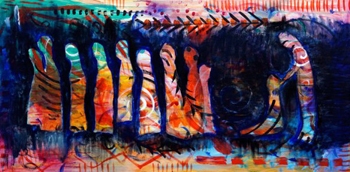
08.24.23 (Elul 7, 5783) Yeshua warned that it is possible for people to fool themselves into thinking that they are "spiritual" or "connecting with God" when in fact they are not. He warned that appearances can be deceiving, and he insisted that what matters most is the inner condition of the heart. As it written: כָּל־דֶּרֶךְ־אִישׁ יָשָׁר בְּעֵינָ֑יו וְתֹכֵן לִבּוֹת יְהוָה - "Every way of a man is right in his own eyes, but the LORD weighs the heart" (Prov. 21:2).
In general people want to impress others by appearing attractive, capable, important, or powerful, and to simultaneously cover up their weaknesses and insecurities. This is a common frailty of human nature. We feel unsure of ourselves and often put on a false front. We want to project an impressive image, to appear better than we really are, and so on. We stretch the truth; we make believe, we pretend. We are hypocrites. The word "hypocrite" was originally a theatrical term referring to someone who painted their face to portray a character. A "good" hypocrite was believable, though in some cases, the actor would become so immersed in his role that he would forget who he really was! In real life, however, we realize that a person can appear to be one thing on the outside but be something else on the inside. If the person is conscious of the charade, he is a deceiver; if he is unconscious of it, he is self-deceived. We all know the saying, "all that glitters is not gold."
Hypocrisy is a special form of temptation to those who feel the need to appear virtuous, or respectable, or moral, or "spiritual," but it can become "stagecraft of the self," a superficial profession of allegiance to high ideals or standards that hide the real self behind the mask.
The Pharisees dressed themselves in impressive religious attire and used "insider" religious language to distinguish themselves and impress others, but to them Yeshua said, "You are those who justify yourselves before men, but God knows your hearts. For what is highly esteemed among men is an abomination in the sight of God" (Luke 16:15). In their zeal to elevate themselves before men, to be honored as spiritual leaders, they lost sight of their need for God's forgiveness and deliverance from their own inner corruption of heart. Instead of understanding their common connection with the "poor in spirit," with the mourners, the lowly, those who hunger and thirst for deliverance, they set themselves apart as holy men whose religious practices essentially scorned the needy and made them outsiders. They "theologized" their sense of entitlement and success as the "blessing of God." Far from being something that indicated genuine spirituality and heart connection with God, however, the esteem that they gave to themselves was an abomination in God's sight.
Yeshua came to seek and to save the lost sheep of Israel, but the "leaven of the Pharisees and the Sadduces" that is, their false teaching, undermined his redemptive mission (Matt. 16:11-12). The "halo effect" of the Pharisees (and the religious establishment) must therefore be exposed as an illusion, because their religious practices were a stumbling block and indeed a seduction for those who sought deliverance from God. Man cannot save himself; religious practices and rituals are not the way to be healed from the sickness of spiritual death. Therefore Yeshua had to deflate their conceits and reveal what was essential.
To those who sought to justify themselves before men, those who trusted in their own merits to be made right with God, who elevated themselves as holy by separating themselves from others for the sake of their supposed "godliness" and "purity," Yeshua told a story that has come to be called the Parable of the Pharisee and the Tax Collector (Luke 18:9-14).
"Two men went up to the Temple to pray, one a Pharisee and the other a tax collector. The Pharisee stood and prayed thus to himself, 'God, I thank You that I am not like other men -- extortionists, unjust, adulterers, or even as this tax collector. I fast twice a week; I give tithes of all that I possess.' But the tax collector, standing afar off, would not so much as raise his eyes to heaven, but beat his breast, saying,' God, be merciful to me a sinner!' I tell you, this man went down to his house justified rather than the other; for everyone who exalts himself will be humbled, and he who humbles himself will be exalted."
Note first this parable is addressed to those who "trusted in themselves," referring here to the Pharisees who regarded themselves as "gate keepers" to the kingdom of God. The Greek term used for those who trusted in themselves (τοὺς πεποιθότας) suggested they were bold and regarded themselves correct in their thinking. In this connection, recall that the Pharisees sought to safeguard their own righteousness by adding further precepts (i.e., gezerot, or "fences") to the law. They reasoned that if they kept these more stringent precepts, then surely they would keep from transgressing the law -- and therefore would be "righteous." For instance, if the law said to give tithes for the relief of the poor (ma'aser), they would give additional tithes for other matters, "mint and cumin," and the "sacrifice" of a pinch of bread whenever they ate. They were careful to not only abstain from unclean meats, but developed elaborate hand washing rituals and blessings before they would anything eat at all. These additional laws and customs were designed to be safeguards by "going beyond" the commandments of Torah, though in truth they created a religious caste system that missed the point and intent of the law. After all, the Shema clearly affirmed that the first duty of the law was to love God and others wholeheartedly, but these religious customs obscured the weightier matters of God's will and thereby became a distraction.
Right away, then, Yeshua's parable sets the stage for a radical contrast: "Two men went up to the Temple to pray, one a Pharisee and the other a tax collector." To the common people, a "parshan" (פַּרשָׁן) or "interpreter of the law," was an approved insider, a "man of the cloth" who really understood Torah and godliness, whereas the "tax collector" was an unlearned and scandalous outsider. Indeed a tax collector for Rome was considered not just unlearned but a traitor to the people of Israel -- and therefore to God! As Yeshua describes this scene, the Pharisee is found on his own turf, feeling confident and "at home" in the Temple, donned in his religious garments, trained in the "right" verbiage to use, and comfortable with the rituals and liturgy of the place, whereas the tax collector knew little of these things and undoubtedly felt like a alien and a stranger -- awkwardly out of place and unwanted.
Yeshua then lets us listen in to the private thoughts of each respective man: "The Pharisee stood and prayed thus to himself, 'God, I thank You that I am not like other men — extortionists, unjust, adulterers, or even as this tax collector. I fast twice a week; I give tithes of all that I possess.'" Note first that the Greek for the phrase "he stood prayed thus to himself" could be rendered as either he stood and prayed by himself, that is, apart from others, or (alternatively) that he stood and prayed to himself (πρὸς ἑαυτόν), that is, he prayed about himself — and perhaps out loud — for others to hear. His concern is how he esteems himself in comparison with others, how he is "not like other men" who are unclean, unworthy, defective, etc. He thanks God by congratulating himself that he is better than others, "chosen," set apart, and made pure by his punctilious religious observance. He cites as merit his "good deeds" of routinely fasting and giving tithes, confident that these deserve approval from God. His identity is concealed beneath his prayer shawl, and his pride is wrapped tightly upon him like the oversized tefillin on his arm and on his head.
"But the tax collector, standing afar off, would not so much as raise his eyes to heaven, but beat his breast, saying, 'God, be merciful to me a sinner!' The tax collector stands "afar off" and thinks to himself: "I am at a distance; far removed from God's presence... Indeed, I am as one dead, a mourner in this place, and sick of inner grief of the soul besides! I am nothing in the eyes of God and of men, an outcast, with only the guilt and shame that binds to me like sackcloth and ash of the soul. I have no fancy words to say; no memorized prayers or blessings. All I have is the horror of my shame, the roar of my heart, the groan of my pain: "O God, be merciful to me, a sinner..."
"Be merciful to me, a sinner..." The forlorn tax collector knew himself to be entirely unworthy; he sensed his dread and desperate condition; he offered no excuses for himself nor made any appeal to his merit. In his eyes he was undone. His only prayer was the grievous sigh: "Be merciful to me..." The Greek word used for "be merciful" (ἱλάσθητί) here comes from the same root used to translate the kapporet (כפרת) in the LXX, that is, the cover of the Holy Ark where sacrificial blood was presented on Yom Kippur. The tax collector realized that only God could forgive him by making atonement for his life... In this connection Paul used this word to describe the atonement given in Yeshua at the cross: "God set Yeshua forth as an atoning sacrifice (ἱλαστήριον) through faith in his blood (διὰ τῆς πίστεως, ἐν τῷ αὐτοῦ αἵματι) to demonstrate His righteousness" (Rom. 3:25; Heb. 9:5). Likewise the apostle John wrote that Yeshua is the atoning sacrifice (ἱλασμός) for our sins (1 John 2:2).
And the twist of the story is found in its irony, the surprise ending: "I tell you, this man went down to his house justified rather than the other; for everyone who exalts himself will be humbled, and he who humbles himself will be exalted." The word translated "justified" here means "pronounced righteous" (i.e., δίκαιος), that is, declared to be in right relationship with God. It is God's righteousness that is the focus, not self-righteousness or self-justification. It is the goodness and kindness of God that saves us from ourselves and leads us to do teshuvah, not our so-called "works of righteousness" done on his behalf (Rom. 2:4; Titus 3:5-7; 2 Tim. 2:19; Eph. 2:8-9; Gal. 2:16; Psalm 51:16-17).
The Pharisee's "prayer" to God was essentially self-congratulatory: "Thank you, God, that there is no need for you to have mercy upon me - for hallelujah! - I am not a sinner." Tragically his pride blinded his heart to his own need and therefore barred the way of life to him. If he had inverted his prayer: "O God, I am just like all other people, lost, evil-minded, lustful, profane, selfish and unloving ... please have mercy upon me!" then undoubtedly his prayer would have been accepted, just as the tax collector's prayer was accepted.
Salvation and "justification" come from honestly accepting our spiritual condition as broken and helpless people. William James called this condition "Zerrissenheit," a term that can be translated as "torn-to-pieces-hood," or a state of being demolished and in disarray. It is consciousness of our need for God, our desperate cry for deliverance from ourselves. Blaise Pascal wrote that faith in Yeshua is essentially a confession of irreparable human infirmity, and therefore its message is always directly there - to the place of our pain and desperation. Consequently it has no voice or message to mere triflers - much less to those who seek to justify themselves and to minimize the radical nature of their sinful condition. No, no, never: the Spirit speaks to the heart in its anguish, in its lament over the suffering and agony of life in this world, and there breathes out the haunting question, "Do you want to be healed?"
So let us join the outcasts, the lepers, the tax collectors, remembering that Yeshua is the "friend of sinners" and our only true Savior. "O Lord, I need you so much. Without you I am nothing, even if suppose myself to be something, but with you I am something, even if I suppose myself to be nothing. Whenever I regard myself apart from you, there I am lost, empty, and without purpose, even if it may seem otherwise. When I surrender to you, trusting in you to impart life to me, I come alive and bear witness of your mercy and grace. O Lord, have mercy upon me and let me know how beautiful and wonderful you are. Amen.
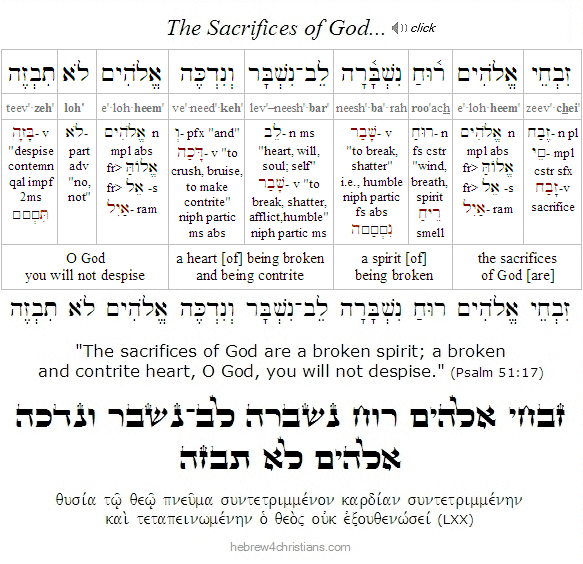 |
Sojourning despite ourselves...
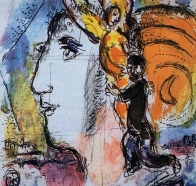
08.24.23 (Elul 7, 5783) Our temperament, our emotional disposition, as well as our predilections and aversions, are something basically "given" to us by God, and it is our responsibility to accept whatever we are and to "apply" whatever we are in service to God (Matt. 25:14-30). This includes not only sharing our talents or special abilities, but also our pain, our losses, and the solace we find in God's comfort. God understands our struggles within our own hearts; he knows how we suffer. As it is written: "As a father has compassion on his children, so the Lord has compassion on those who fear him; for he knows our frame; he remembers we are dust" (Psalm 103:13-14).
What we love reveals what we are. If we take joy in what is good, our heart is good; if we find joy in evil, our heart is evil. Of course we are a "divided house," battling our lower nature and seeking to "put on Christ," and therefore we are sometimes "wicked saints," that is, people who sin in spite of ourselves, who abhor our sin, and who lament and cry out to God for his forgiveness and healing intervention.
Some of us wrestle with fear or anger. This may be the result of past experiences we have had or even matters of biochemistry and physiology. Regardless of the preconditions for our temperaments, as long as we are sane, that is, as long as we are able to discern right from wrong by means of a functioning conscience, we are responsible for our choices. Of course only God knows the variables in our struggles, our past, our DNA, and how our woundedness and shame, for example, factors into how we reason and make decisions, but despite the force of our habits and inclinations, the decision to direct our will either to good or to evil is ours to make. If the heart desires virtue, anger can become a passion or inner resolve to fight against evil and to refuse to let it define who we are.
In this connection it is essential to trust in God. As Soren Kierkegaard reminds us, "the opposite of sin is not virtue but faith," which I understand to mean that the struggle is first of all one of the heart, as it decides what it loves and thereby directs the will in its choices. We do not attempt to become "Stoics" who deny the message and meaning of our emotions; surrender to God is not meant to harden our hearts and make us unfeeling people. No, we bring "all our heart" before the Lord - the bright and lovely as well as the dark and unseemly - and find mercy and grace to transform our lives.
Be encouraged my fellow sojourners walking by faith through the desert of this present world. The Torah uses a repetitious expression, "Sanctify yourselves and you shall be holy" (הִתְקַדִּשְׁתֶּם וִהְיִיתֶם קְדשִׁים) (Lev. 11:44) because when we make an effort -- no matter how feeble at times -- to draw near to the LORD, He will draw near to us... Indeed the walk of faith is one of ascent and descent and ascent again: It's often "two steps forward, one step back..." It is a long road, a process, as we learn to obey and seek to grow closer to God. Authentic repentance doesn't imply that we will never sin or make any mistakes, of course, but rather means that the oscillating pattern of "up, then down, then up" is the basic way we walk. Our direction has changed for good; we have turned to God for life and hope. We now understand our sins in light of a greater love that bears them for us even as we draw ever closer to the One who calls us home...
Hebrew Lesson
Psalm 103:13-14 Hebrew reading (click):
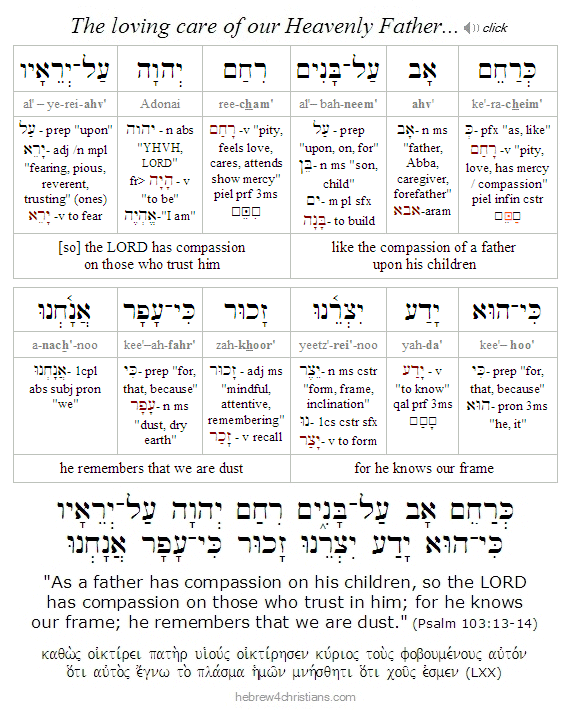 |
Deliverance from Anxiety...
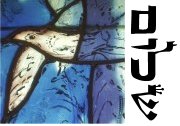
[ "I am no longer anxious about anything, as I realize the Lord is able to carry out His will, and His will is mine. It makes no matter where He places me, or how. That is rather for Him to consider than for me; for in the easiest positions He must give me His grace, and in the most difficult, His grace is sufficient." - Hudson Taylor ]
08.23.23 (Elul 6, 5783) It is written in our Scriptures: "Do not be anxious about anything, but in everything by prayer and supplication with thanksgiving let your requests be made known to God" (Phil. 4:6). Note that the verb translated "be anxious" here (i.e.,μεριμνάω) comes from a root word (μερίζω) that means to be fragmented or divided into parts and pieces. Being anxious is therefore the uneasy state of being distracted, unfocused and divided within yourself.
When we worry we heed voices of fear and begin to feel 'double-minded,' (i.e., δίψυχος), unstable, and unable to think clearly; we get restless and find it difficult to deeply breathe. We start to feel out of control, fearful that something bad will happen despite all our efforts or wishes to the contrary; we sense doom; we lose heart; we go dark...
The Scripture here admonishes us to pray when we are tempted to be anxious by focusing on something for which we are grateful. Doing so will instill the "peace of God" (שלום יהוה) that rises above all worldly thinking to keep watch over your heart and your thoughts through Yeshua the Messiah (Phil. 4:7). We gain the "light of life," that is, inner illumination from God, so that we can remain steadfast and unmovable in our faith, despite the temptation to look for relief from our struggles apart from God.
Hebrew Lesson
Isa. 26:3 Hebrew reading (click):
Remember that Yeshua is the central character of every episode of your life. Faith sees his presence, unbelief does not. Most of us live within the continuum of blindness and seeing... "Lord I believe; help Thou my unbelief."
Fighting Spiritual Blindness...
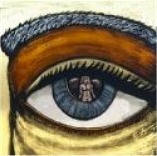
[ " Rejoice not against me, O mine enemy: when I fall, I shall arise; when I sit in darkness, the LORD shall be a light unto me." - Micah 7:8 ]
08.23.23 (Elul 6, 5783) Our Torah portion this week (Ki Teitzei) commands us to remember what the Amalekites did to the Jewish people just after they left Egypt during the time of the Exodus (Exod. 17:8-16; Deut. 25:17-19). Paradoxically God commanded the Israelites to "blot out the remembrance" of Amalek while swearing to fight Amalek "from generation to generation" (Deut. 17:16). In this connection note that the name "Amalek" (עֲמָלֵק) begins with the letter Ayin (symbolizing the eye) and equals 240 in gematria -- the same value for safek (סָפֵק), the Hebrew word for doubt. Amalek therefore symbolizes "the eye of doubt," or even "the severed eye" (the Hebrew verb מָלָק means "to chop" or "sever" in reference to the "eye" of Ayin). The power of Amalek therefore represents spiritual blindness as it acts in the world. We are never to forget that the light of God overcomes the darkness of this world, and that light is found in Yeshua our LORD. Amen.
Hebrew Lesson
Deut. 25:17 Hebrew reading (click):
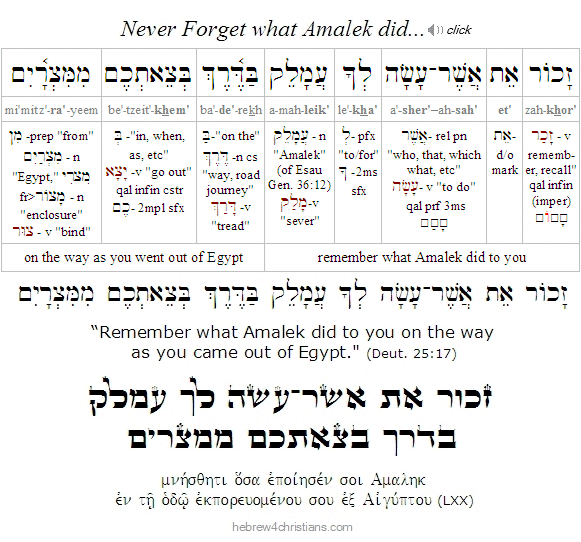 |
God's Providential Care...
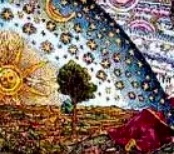
08.23.23 (Elul 6, 5783) Since our Scriptures affirm that "all things work together for good" (Rom. 8:28), we must trust God for both perceived evil as well as perceived good, since all circumstances of life come from the hand of the LORD our God (see Job 2:10). Despite appearances that sometimes seem to the contrary, we believe that the all-powerful Creator and LORD over all has not abandoned the world but actively sustains and upholds it with benevolent intent (Heb. 1:3). "We walk by faith and not by sight" (2 Cor. 5:7). When difficult things happen to the righteous, we trust in God's personal care for their ultimate good, despite their present troubles. As the prophet Job said: "Though he slay me, I will trust in Him" (Job 13:15). This is the heart behind the Kaddish, the mourner's prayer, that expresses acceptance of God's world, despite the pain, sorrow, loss, and so on.
The term hashgachah pratit (השׁגחה פרטית) refers to God's personal supervision of our lives (hashgachah means "supervision," and pratit means "individual" or "particular"). Since He is the Master of the Universe, God's supervision reaches to the smallest of details of creation - from subatomic particles to the great motions of the cosmos. God not only calls each star by its own name (Psalm 147:4), but knows each particular lily and sparrow (Matt. 6:28-30, 10:29). Each person created in the likeness of God is therefore under the direct, personal supervision of God Himself -- whether that soul is conscious of that fact or not. As Yeshua said, even the hairs on your head are all numbered (Matt. 10:30). Indeed, the God of Israel is called אלהי הרוּחת לכל־בּשׂר / Elohei ha-ruchot lekhol-basar: "The God of the spirits of all flesh" (Num. 16:22), and that means He is LORD even over those who vainly attempt to suppress His Presence and reality. "Can a man hide himself in secret places so that I cannot see him? declares the LORD. Do I not fill heaven and earth?" (Jer. 23:24).
The Talmud says that when Moses asked God, "Please show me your glory" (Exod. 33:18), he was asking for God's vindication in the light of the gnawing question: "Why do the righteous suffer while the wicked prosper?" Moses was not given an explicit answer, and some of the sages said he wrote the enigmatic Book of Job to demonstrate that the question can only be reduced to God's inscrutable will: "Where were you when I laid the earth's foundation?" (Job 38:4). In other words, the question can only be answered by the One who knows the beginning from the end, the Infinite One who sees the implications and concatenation of all things. As finite beings, we see only a fraction of the big picture, and therefore we must yield our trust to the Wisdom and Power of Almighty God (Deut. 32:4).
It is written, "Your eyes saw me when I was inside the womb; in your scroll everything was written, my days were ordained before they came into existence" (Psalm 139:16). In light of God's providential ordering of our lives, Blaise Pascal asked, "What is left for us but to unite our will to that of God himself, to will in him, with him, and for him the thing that he has eternally willed in us and for us." The Mishnah says it this way: "Do His will as if it was your will that He may do your will as if it was His will" (Avot 2:4). In other words, what else can we do but learn to trust, accept, and to say "yes" to life -- even if at times we may feel like orphans, lost in a fatherless world... All our days are recorded in God's scroll.
Therefore may God "teach us to number our days to get a heart of wisdom" (Psalm 90:12). The sages say on the day of death, one considers one's life as if it had been a single day... Life goes by so quickly, and we never know when our personal Rosh Hashanah will come. "No one knows the day or hour..." That's why it is so vital to be healed and to turn to God while there is still time. So turn to him today and bacharta ba'chayim (בָּחַרְתָּ בַּחַיִּים) - "choose life!" "For this commandment (of turning to God in teshuvah) is not hidden from you, and it is not far away. It is not in heaven... nor across the sea.... Rather, the matter is very near you - in your mouth and your heart - to do it" (Deut. 30:11-14; Rom. 10:8-13).
Hebrew Lesson
Psalm 90:12 reading (click for audio):
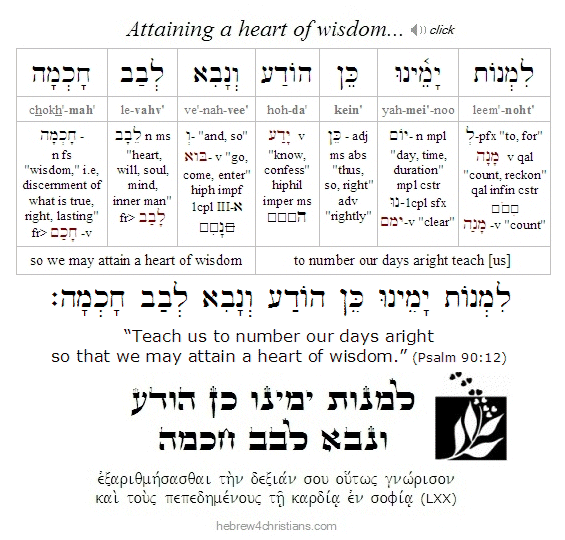 |
As Sheep to the Slaughter...
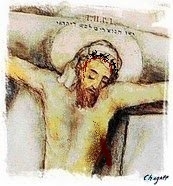
08.22.23 (Elul 5, 5783) In this present world it's a struggle not to be afraid... We see through a glass darkly; our heart's desire is often thwarted; we often walk in uncertainty; our prayers may seem to go unanswered. There are many tribulations, sorrows, and pains; we are grieved and often feel lonely; we sometimes struggle to hold fast to our confession and hope; we feel alarmed over the insanity and depravity that pervades the culture around us; we feel powerless to stop the juggernaut of unrestrained evil, yea, we lament over the battle within our own hearts -- our own inner fears, outrage, and wretchedness. We may wonder why God does not directly intervene to help in the midst of our plight; we may pray anguished prayers beseeching heaven's intervention to deliver us from evil. Many of our brothers and sisters around the world are undergoing persecution, being murdered for the sake of their faith; others languish in prison or "reeducation" camps, being labeled as "enemies of the State," brutalized, ostracized, marginalized, rejected, and forsaken of the common welfare of others. We shed tears over the burning of churches; we are repulsed by acts of violence and lies against God's people; we protest that Christians are regarded as political enemies for honestly questioning the logic and ethics of governmental decrees. We are often misunderstood, or worse, vilified for honoring the truth. We are made outsiders, segregated outside the camp, maligned as lepers and deplorables... Indeed, the world system hates us, and for the sake of our faith "we are being killed all the day long; we are regarded as sheep to be slaughtered" (Psalm 44:22; Rom. 8:36).
We may sometimes wonder where God is in the midst of our alienation and tribulation. As followers of Yeshua we are called to do justice, to love mercy, and to walk humbly with our God. More: we are to die to ourselves, love our enemies, and be faithful to God even in martyrdom. In these darkened days, however, this means walking through the darkness of the valley of the shadow of death, for it is apparent that worldly culture has decisively rejected the truth of God and regards those who esteem it as its enemies. "The kings of the earth set themselves, and the rulers take counsel against the Lord, and against his Messiah, saying 'Let us break their bonds apart and cast away their cords from us'" (Psalm 2:3-4). Prophetically, we know what is on the horizon; we foresee the terrors of the "End of Days."
The test of faith in our circumstances, as has always been for God's people, is to remain steadfast in our conviction of God's love despite the darkness that surrounds us (Isa. 50:10). The test is summed up by C.S. Lewis this way: "We're not doubting that God will do the best for us; we're wondering how painful the best will turn out to be" (Collected Letters). We can't stay in the limbo of such questioning forever, however; we must shake off our misgivings and find settled determination to press on in faith: Our Lord has a crown and a kingdom prepared for us, and he will give us what we need in the way to attain unto it.
There is a difference between knowing about God in your head and knowing God in your heart... Unlike a merely intellectual idea of faith that merely assents to theological propositions or creeds, trusting in the Lord (i.e., bittachon: בִּטָחוֹן) is an emotional commitment to God's presence in the midst of the sorrows of our lives; it is the struggle of hope that affirms we are not finally alone, abandoned, helpless... Trust goes beyond the "head knowledge" to engage God personally, existentially, and from within the whirlwind of harrowing pain and pain's fearful loneliness. Authentic theology is "dialogical" -- a conversation of the heart with God - seeking, yearning, protesting, lamenting, and struggling with life's inscrutabilities and unfathomable questions as it appeals to God for the assurance and comfort of the Holy Spirit. Trust finds courage to voice to our sorrow and fears, inviting God into the midst of our brokenness, often yielding to tearful silence in unknowing expectation. As Dorothy Soelle wrote: "Prayer is an all-encompassing act by which people transcend the mute God of an apathetically endured reality and go over to the speaking God of a reality experience with feeling in pain and happiness" (Soelle: Suffering). This is perhaps the deepest meaning of the Shema - to listen for God's heart in the midst of your struggle; learning to encounter God's love in the place of your brokenness and need (Job 13:15).
Hebrew Lesson
Psalm 44:22 Hebrew reading (click):
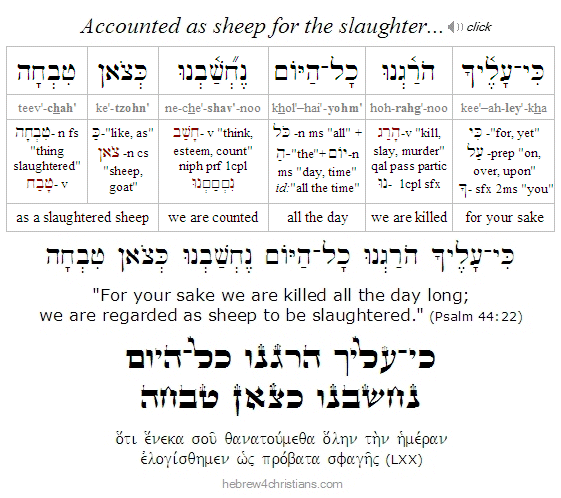 |
Reflecting on the role of suffering in the heart of faith, Dietrich Bonhoeffer (1906-1945) - who was murdered by the Nazis - once wrote: "Here is the decisive difference between Christianity and all religions. Man's religiosity makes him look in his distress to the power of God in the world: God is the deus ex machina [i.e., "quick fix"]. The Bible [on the other hand] directs man to God's powerlessness and suffering: only a suffering God can help" (Letters and Papers from Prison). Bonhoeffer's comment alludes to the difference between an "Elohim" (אֱלהִים) conception of God as the omnipotent power and Judge of reality, and the "YHVH" (יהוה) conception of God as the compassion Source and Breath of life - the Suffering God who empties himself to partake of our condition - to know our pain, to bear our sorrows, to heal us from the sickness of spiritual death, and to touch us in the loneliness of our exile... The Spirit enables us to "groan" in compassion, directing us away from the impulse to "kill the pain" to accept it as part of our lament and need for connection with God.
This world is not our home; our lives are not our own, and whenever we try to direct our own way, we inevitably become unstable, irresolute, disordered, and ultimately brought to confusion... When we earnestly turn to the Lord, when we focus on our reason for being-in-the-world, we are made sane and able to walk with peace and assurance.
Hebrew Lesson
Jeremiah 10:23 Hebrew reading (click):
Trust in Difficult Days...
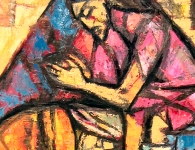
08.22.23 (Elul 5, 5783) We are living in times of difficulty leading up to the coming of our Messiah, Yeshua, and therefore we all need courage and grace to persevere. When Andrew Murray was bedridden and sick, he advised another sufferer using these words: "In time of trouble say: "First, He brought me here. It is by His will I am in this straight place; in that I will rest. Next, He will keep me here in His love, and give me grace to behave as His child. Then, He will make the trial a blessing, teaching me the lessons He intends me to learn, and working in me the grace He means to bestow. Last, In His good time He can bring me out again – how and when He knows. [Therefore] let me say I am here, (1) by God's appointment; (2) in his keeping; (3) under His training; and (4) for His time." Of course this applies not only to physical sicknesses but to emotional pain and afflictions of the soul.
Deep within I discover that I can bless the Lord, losing sight of myself and my fears as I affirm my deepest purpose and heritage: "My (boundary) lines have fallen to me in pleasant places; indeed, my inheritance is beautiful to me" (Psalm 16:6). Though I might have felt bereft and even tempted to curse my estate, by God's grace I am made able to give thanks and to bless, even in the midst of my troubles and pain: "I will bless the LORD who has counseled me; my conscience disciplines me in the night" (Psalm 16:7). Therefore שִׁוִּיתִי יְהוָה לְנֶגְדִּי תָמִיד - "I have set the Lord always before me" – especially in desperate moments when I feel overwhelmed – since I have learned that "because he is at my right hand, I shall not come undone" (Psalm 16:8). God gives me strength to renew my hope: therefore "my heart is made glad, my whole being rejoices, and my body rests in trust" (Psalm 16:9).
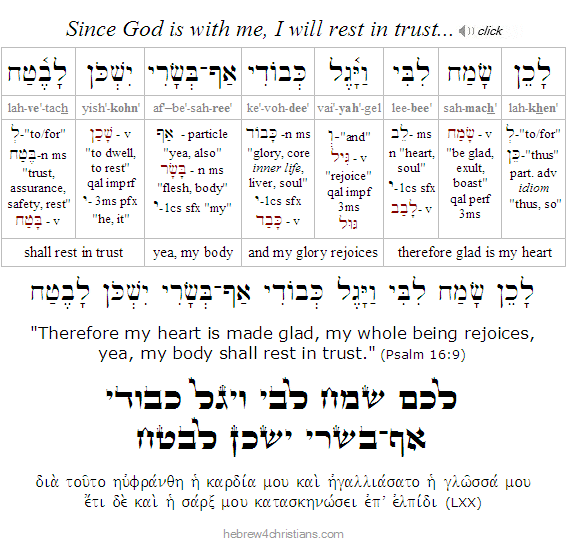 |
When I feel hopeless, I seek hope; when in pain, I seek strength; when in despair over besetting sins, I yearn again for a place I can call home... In the midst of these things, my heart wonders whether my suffering has come because I deserve it or somehow "need" it. I reason that it may make sense that God extends special care for his favored ones, for those who are righteous and who seem free from the vexation of despair, but does it make sense for me, one who is undone, broken, alone, and unworthy? My heart protests that this is not the whole story of my life, and that more to be said. I need God and I know that he cares for me. I recall his promises to heal, to bind up the broken of heart, and extend his comfort for our afflictions. Might pain herald the advent of something new to come? Might there be a deeper beauty and surpassing grace going "through the wound" instead of objecting to it?
The Blessing of Letting Go...

[ The following is related to the month of Elul and the Forty days of Teshuvah... ]
08.21.23 (Elul 4, 5783) "And he opened his mouth and taught them, saying... "Blessed are the lowly and humble, for they shall inherit the earth" (Matt. 5:5). Those conscious of their inner poverty, who mourn over their sinful condition, and who are afflicted with themselves, can let go of the need to "manage appearances," to be in control, or to seek validation from others, and therefore they are free to surrender their lives to God's care. They "flow" with the Father's will as a "gentle breeze," no longer resisting or striving, but simply trusting in God's care. When they are wronged, they seek neither revenge nor vindication, but only healing and restoration (1 Pet. 2:23). Paradoxically, it takes strength to be genuinely "lowly of heart," but such is found in the Spirit of God (Zech. 4:6). Indeed, the Spirit leads us to our inheritance: "the humble shall inherit the land and delight themselves in great peace" (Psalm 37:11). The fruit of the Spirit is the outgrowth of God's miraculous life with us, and we partake of that life when we live in Yeshua (John 15:1-5; Gal. 5:22-23).
Hebrew Blessing:
בָּרוּךְ אַתָּה יהוה שֶׁעוֹזֵר לִי לְהַרְפּוֹת
bah-rookh · a-tah · Adonai · she'-oh-zeir · lee · le-har-poht

"Blessed are you, LORD, who helps me to let go."

God "opposes the proud but gives grace to the humble." The LORD our God dwells with those "of a contrite and lowly spirit, to revive the spirit of the lowly, and to revive the heart of the contrite" (Isa. 57:15). True greatness is found in outside of the self, beyond the instincts of the carnal ego. Those who seek to exalt themselves and to "gain the world" do not understand that the very reason for their life is to be sacrificed for the sake of love. Obeying God's call to love is not a burden, but rather sets the heart free. As Yeshua said, "Come to me, all who labor and are heavy laden, and I will give you rest. Take my yoke upon you, and learn from me, for I am gentle and lowly in heart, and you will find rest for your souls. For my yoke is easy, and my burden is light" (Matt. 11:28-30).
Hebrew Lesson
Matt. 5:5 Hebrew reading (click):
Teshuvah of Humility....

08.21.23 (Elul 4, 5783) Only Yeshua imparts eternal life to the trusting soul, enabling the heart to truly and radically change. However, to receive this utmost blessing, we must settle the question of our profound need for deliverance from our corrupt inner nature. We simply cannot hear the message of the gospel if we do not feel hopelessly trapped within the consciousness and conviction of our sin. If we believe that we must justify our own existence by means doing good or by means of religious practices, for example, we will likely turn against God by regarding him a taskmaster who demands too much from us. If however, we realize that we cannot please God apart from his merciful intervention in our hearts, we learn to let go and abandon ourselves to his mercies. Those who cannot fathom the grace of God, however, are consigned to go back "under the law" again and again until the question of their powerlessness is settled. Until that miraculous moment of awakening comes, however, the message of Yeshua will make little traction within the heart.
Grace often comes in disguise because the ego has to be humbled for the heart to confess its need. When the veil is pulled back, and we discover with a shock that we ourselves are evil, and that despite our ideals we need deliverance from our inner wretchedness, we begin to turn to God not merely for mercy, but for the miracle of transformation - a new kind of life, a new heart, a new spirit - freedom from the soul sickness that haunts us in our secret shame and self reproach.... It is when we are at the "end of ourselves" -- when we know in our bones that we must "find God or die" -- that we can turn to Yeshua for life.
It is hard for the "rich" to enter the kingdom of God; it is hard for those who are self-satisfied, who regard themselves as moral, righteous, and who pray: "Thank you God that I am not like other men" (Luke 18:11). Yeshua speaks to the "poor in spirit" and to those who mourn over their lost condition. Those who are blessed realize their great need for God's intervention in their lives. They understand that it is in brokenness that we find divine healing; it is in our weakness we find God's strength.
Hebrew Lesson
Psalm 34:18 Hebrew reading (click):
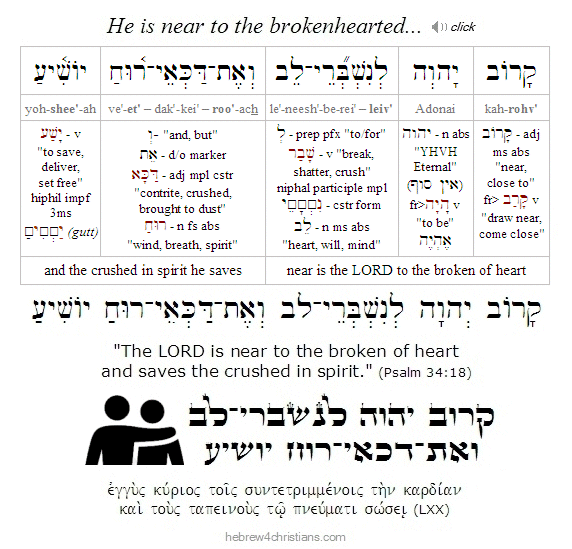 |
"God became a man to turn creatures into sons, not simply to produce better men of the old kind but to produce a new kind of man. It is not like teaching a horse to jump better and better, but like turning a horse into a winged creature" (Lewis: Mere Christianity). Amen. The divine name associated with teshuvah, or repentance, is ehyeh (אהיה), "I will be." The LORD imparts a holy and divine nature within us when are are reborn as his children. As it is written in our Scriptures: "Therefore, if anyone is in Messiah, he is a new creation (בריאה חדשׁה); the old has passed away; behold, the new has come" (2 Cor. 5:17).
Part of teshuvah is "forgetting those things which are behind and reaching forward to those things which are ahead" (Phil. 3:13). The pain and shame of our past - whatever it is - is only of use to us if it impels us to take hold of God's blessing. Brokenness tethers us to his heart, drawing us closer to him. We are poor in spirit, we mourn, we hunger and thirst for God's righteousness, and this ultimately leads us to consolation and strength. Being who we are in Messiah means finding ourselves in His love, believing in his healing, even in our troubles.
Personal note: I've been going through a tough time recently, friends... There are family issues, health concerns, depression, etc. Thank you for your prayers for us.
 |
Weekly Torah portion:
Parashat Ki Teitzei...
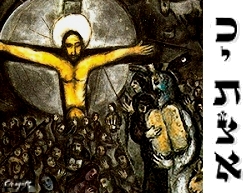
[ This week's Torah reading (parashat Ki Teitzei) is always read during the month of Elul... ]
08.20.23 (Elul 3, 5783) Shavuah tov v'chodesh tov, chaverim. If you've been following the weekly Torah schedule, you will recall that in last week's Torah reading (i.e., Shoftim), Moses defined an extensive system of justice for the Israelites and pointed to the coming Messiah who would be the rightful King of Israel: "The LORD your God will raise up for you a prophet like me from among you, from your brothers -- it is to him you shall listen" (Deut. 18:15). In this week's portion (i.e., Ki Teitzei: כי־תצא), Moses returns to the immediate concern of life in the promised land by providing additional laws to be enforced regarding civil life in Israel. In fact, Jewish tradition (following Maimonides) identifies no less than 74 of the Torah's 613 commandments in this portion (more than any other), covering a wide assortment of rules related to ethical warfare, family life, burial of the deceased, property laws, the humane treatment of animals, fair labor practices, and honest economic transactions.
Of particular interest to us is the statement that a man who was executed and "hanged on a tree" (עַל־עֵץ) is cursed of God (Deut. 21:22-23). According to the Talmud (i.e., Nezakim: Sanhedrin 6:4:3), the Great Sanhedrin (סַנְהֶדְרִין גְדוֹלָה) decided that "a man must be hanged with his face towards the spectators" upon a wooden stake, with his arms slung over a horizontal beam. It should be noted that while this is technically not the same thing as the gruesome practice of Roman crucifixion, the reasoning based on this verse was apparently used to justify the execution of Yeshua (Mark 15:9-15; John 19:5-7; 15). The exposed body was required to be buried before sundown to keep the land from being defiled. Besides the shame and degradation of this manner of death, the one so executed would be unable to fall to their knees as a final act of repentance before God, thereby implying that they were under the irrevocable curse of God (קִלְלַת אֱלהִים).
In this connection, we should note that Yeshua was falsely charged with blasphemy before the corrupt Sanhedrin of His day (Matt. 26:65; Mark 14:64; John 10:33) - an offence that was punishable by stoning (Lev. 24:11-16). However, since the Imperial Roman government then exercised legal hegemony over the region of Palestine, all capital cases were required to be submitted to the Roman proconsul for adjudication, and therefore we understand why the Jewish court remanded Yeshua and brought him to be interrogated by Pontius Pilate. Because Roman law was indifferent to cases concerning Jewish religious practices (i.e., charges of blasphemy), however, the priests further slandered Yeshua by illegitimately switching the original charge of blasphemy to that of sedition against Rome. The Sanhedrin undoubtedly rationalized their duplicity because the Torah allowed for an offender to impaled or "hung on a tree" (Num. 25:4), and since they were unable to do carry out this judgment because of Roman rule in the area, they needed Pilate to condemn him to death by crucifixion (Matt. 27:31; Mark 15:13-4; Luke 23:21; John 19:6,15). Note that crucifixion is mentioned elsewhere in the Talmud (Nashim: Yevamot 120b) regarding whether a widow can remarry if her husband had been crucified, as well as by the Jewish historian Josephus. The Talmud furthermore alludes to the death of Yeshua where Yeshua is said to have been crucified on "eve of Passover" (Nezekin: Sanhedrin 43a).
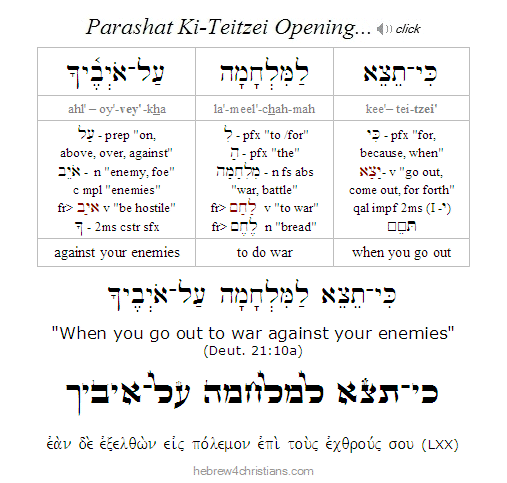 |
Shavuah Tov Podcast:
Parashat Ki Teitzei...
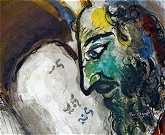
08.20.23 (Elul 3, 5783) Our Torah reading for this week (i.e., parashat Ki Teitzei) identifies 74 of the Torah's 613 commandments (more than any other), covering a wide assortment of laws related to warfare, family life, property laws, the humane treatment of animals, fair labor practices, and honest economic transactions, and more. The portion is always read during the month of Elul, and therefore it provides an opportunity for us to review the importance of the law in relation to the theme of teshuvah (i.e., repentance).
Teshuvah and God's Love...
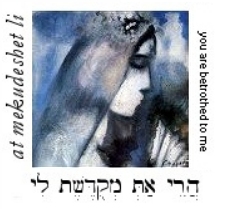
[ Today marks Chodesh Elul and the beginning of the 40 days of Teshuvah... ]
08.18.23 (Elul 1, 5783) If you ever feel frustrated because of recurring personal struggles and failures, do not add to your troubles by despising yourself, but instead allow your character defects to lead you to humility and surrender before God. Bear in mind that you are unable to please God apart from his intervention and help (John 6:63), so avoid self-reproach, since teshuvah (i.e., repentance) is not about learning to deal with your pains, after all, but trusting the Lord to do the miracle of healing within you.
You "have been crucified with the Messiah" (Gal. 2:20) - the verb used in this phrase is a "perfect passive" form in the original language (i.e., συνεσταύρωμα), meaning that it indicates completed action done on your behalf. Your job is not to devise your own sanctification but to receive the blessing by faith, trusting in God's righteousness given on your behalf. The focus is not on you, and when you get out of the way and surrender, the grace and love of God will do the impossible within you (Matt. 19:26).
In a way, teshuvah is a kind of death, that is, identifying with the judgment of Messiah given on your behalf, just as teshuvah is life as you take hold of your new identity in him. Practically speaking you turn away (i.e., "die to") your anger, disappointments, bitterness, and sorrows by turning to the Lord for his acceptance and grace. God will bring freedom and newness of life from what binds your heart. As C.S. Lewis once advised: "Remember that He is the artist and you are only the picture. You can't see it. So quietly submit to being painted, that is, keep fulfilling all the obvious duties of your station... asking forgiveness for each failure and then leaving it alone. You are in the right way. Walk -- don't keep on looking at it" (Collected Letters). How you do teshuvah depends a great deal on where you are standing: if you are before the cross of Messiah, then you stand on the side of divine grace; otherwise you will remain in a place of exile, questioning God's love for you. Choose to believe and you will see his heart for you...
Hebrew Lesson
Jeremiah 32:27 reading (click for audio):
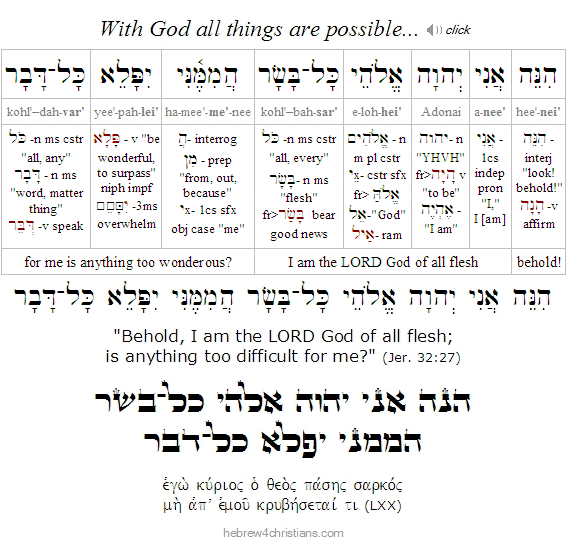 |
The "severity" of the gospel (i.e., הבשורה, from the word "basar") demands that you regard yourself as worth dying for, that you are God's friend... "There is no greater love than this: that someone lay down his life for his friends" (John 15:13). God quite literally demands that you regard yourself as benefitted by the sacrifice of his beloved son Yeshua in your place; he demands that you understand how dear you are to his heart. God sees something of such great value in you that he was willing to suffer and die to redeem it from loss... Just as the kingdom of God is a "pearl of great price," so you are a pearl of great price to God. What grieves and angers God is the refusal to believe that you are someone of infinite importance to him... Only God can rightfully make such a demand because He knows that loving other things more than Him leads to "disordered love," darkness, and eventual madness. We were made for God's love, but substituting finite things for this infinite need will never suffice to bring lasting healing to our souls... He gives us choice, but it is a severe mercy.
Those who are "in the flesh" cannot please God (Rom. 8:8). We must turn away from regarding ourselves as mere "flesh" and understand that we are essentially spiritual beings created and redeemed by God (2 Cor. 5:16). We must give up the distinctions in the "world of basar" - the carnal world that is known through sensuous apprehension - and accept ourselves as "new creations" in the Messiah. It is "not the children of the flesh who are the children of God, but the children of the promise are counted as offspring" (Rom. 9:6-8).
The mere conviction of sin is not the same thing as repentance. We have to step beyond a troubled conscience and have our sin crucified by God's love and grace. Grace is therefore essential to genuine repentance, since moral reformation is never enough. "When Christ calls a man, he bids him come and die." We must be humbled so that we can receive. God gives us bitter experience of our inadequacy to call us to return to him. Only God can kill the power of sin within our hearts. Conviction of sin is not the end, but rather newness of life.
There is a place for godly sorrow, of course, and for genuine regret over our sins. As we understand God's desire and love for us, we begin to realize that the essence of sin is the refusal of God's heart for us. The underlying issue with sin concerns the question of God's love. Simply abstaining from certain actions does not address the deepest need of the heart. It is not turning away from sin that matters as much as turning toward God. The death of sin is meant to lead us to the life of love...
God is both infinitely loving and infinitely just, and both of these "attributes" are inseparably a part of who he is. God is One. Nonetheless, the cross of Yeshua proves that "love is stronger than death, passion fiercer than the grave; its flashes are flashes of fire, a raging flame, the very flame of the Lord" (Song. 8:6). It is at the cross that "love and truth have met, righteousness and peace have kissed" (Psalm 85:10). This implies that we must drop our defenses – even those supposed objections and pretenses voiced by our shame – and "accept that we are accepted." It is God's great love for you that leads you to repent and to turn to him. Allow yourself to be embraced by his "everlasting arms."
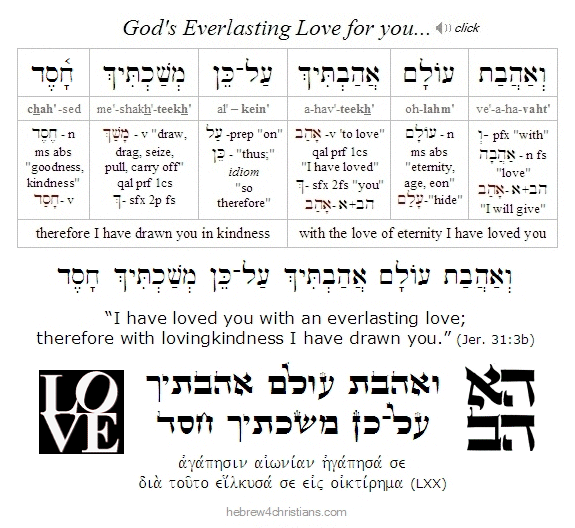 |
Genuine repentance will entirely change you. It is an act of profound respect over what God has done on your behalf. You say, but I am a miserable wretch! Indeed that is so, but the consciousness of your wretched state is the heart's cry for love... God goes "outside the camp" to meet with you. He enters the leper colony to join you there, in your wretchedness, and even takes upon your fatal disease. He sees you in your desperate estate and joins you there. God enters into the dust of your death and says, "Live!"
Repentance means changing your thinking, turning around to face the truth, and returning to embrace God's love. It does not identify the whole person with sin, but rather regards all people as redeemable, worthy, and valuable to God. Conviction of sin is not the end, but rather the means to newness of life. God saved us so that we could be in a love relationship with Him. We must "choose life," and that means choosing to welcome God's love into your heart. The only sin that can keep you from God's everlasting love is the denial that his love is personally for you. You must forsake seeing yourself "in the flesh" and take hold of God's spirit, his passion, and his grace for your soul. You are worthy to be loved because God is worthy to make you so.
Repent and believe the good news. God is love, and that love is for you. Amen, and may the Holy Spirit seal these words upon our heart.
In Your Father's Arms...
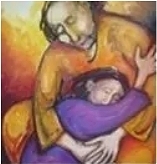
08.18.23 (Elul 1, 5783) "Now I lay me down to sleep, I pray the Lord my soul to keep..." After praying with my youngest son Emanuel before he goes to bed, and just after we have said our closing "amens," a moment of silence sets in and he often asks me to pray again so that he won't have scary dreams or be afraid. So I pray some more, asking the Lord to deliver him from his fears and to put "shields of his protection" all around him as he sleeps. And I think to myself, isn't that what we are praying much of the time, after all -- not to be afraid? And not to be angry, which really is the same thing...
So often we feel uneasy over our lives; we wrestle with "inner demons" that lurk in the shadows of consciousness and seek refuge from them; we feel fragile, powerless, stupefied, sad, guilty, remorseful, fearful, insecure, lonely... We call out to God for his protection and deliverance. We need reassurance that he is there for us. that he cares. But surely our deepest fear is that of ourselves - our own inner darkness - and whether we will be able to hold it together and not destroy ourselves. As Yeshua said, "If the light that is in you is darkness, how great is that darkness!" (Matt. 6:23).
Our faith in God's love must be greater than the fear of our inner darkness -- those parts of ourselves that hide in the shadows. It is not simply trusting God to protect you from external evil but trusting God to deliver you from yourself - trusting him to heal you in the unconscious depths of your soul - that is the raw cry of the heart. And more than that, our prayers are a cry for our Abba to be there for us, to take us up in his arms, to have him shush away our fears and say to us: "I love you; I am here with you..."
Shabbat shalom and chodesh tov, chaverim.
Hebrew Lesson
Isaiah 41:13 reading (click for audio):
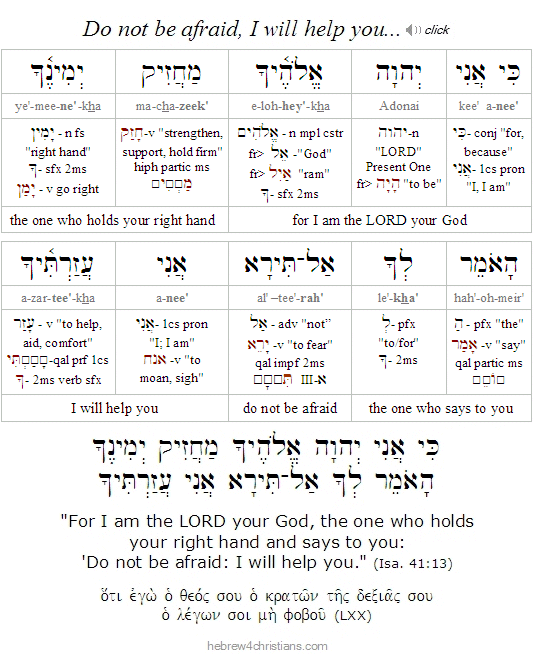 |
Teshuvah of the Heart...
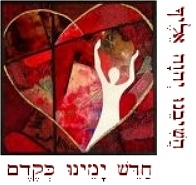
[ "Only the man who has had to face despair is really convinced that he needs mercy. Those who do not want mercy never seek it. It is better to find God on the threshold of despair than to risk our lives in a complacency that has never felt the need of forgiveness. A life that is without problems may literally be more hopeless than one that verges on despair." - Thomas Merton ]
08.18.23 (Elul 1, 5783) Part of the meaning of teshuvah (i.e., "repentance"), at least for some of us, is learning to trust and believe in love.... If you were abandoned as a child, for instance, you were deprived of the security, nurture, and basic human connection you needed to partake in love. Instead of acquiring a sense of belonging and acceptance your soul desperately needed, you inherited a sense of shame that taught that you were inherently unlovable and unworthy. Consequently, as you grew up, you may have found it difficult to trust or ask others for help; you might have turned inward, relying only on yourself, protecting yourself from further pain. You may have became lonely, filled with sadness, anger, and fear. Ironically and tragically, as you protected yourself from abandonment you made your heart hard and numb, and that led to the abandonment of yourself....
There are providential miracles... Healing can come when we turn again to ourselves - unconditionally accepting ourselves despite the pain of our past - and open our hearts to be loved. It was when he "came to himself" that the prodigal made the decision to go back to his father (Luke 15:17). Therefore the Spirit of God calls out to the bereft: "Return to your heart and know" (Deut. 4:29). This is possible only if we are willing to turn to God for the grace we need to be made whole. It is by turning to God (i.e., teshuvah) that we find ourselves to be beloved and made whole. Believing in God's love for us enables us to truly love ourselves, and from that connection, we can move out to love others as well.
O friend of broken hope, savor the phrase, "Know therefore today and return to your heart..." It the heart that is the place of connection with God... As Yeshua said, "Behold, I stand at the door and knock. If anyone hears my voice and opens the door, I will come in to him and eat with him, and he with me" (Rev. 3:20). Today may you find courage to "return to your heart" and receive again God's love for your soul... Amen.
Hebrew Lesson
Deut. 4:29 Hebrew reading (click):
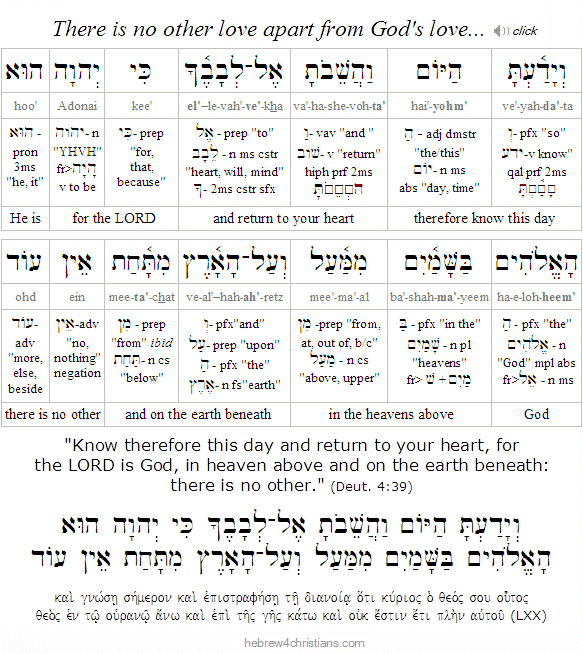 |
Teshuvah and the Gospel...

08.17.23 (Av 30, 5783) Yeshua began his public ministry with these words: "Repent for the kingdom of God is at hand" (שׁוּבוּ כִּי מַלְכוּת הַשָׁמַיִם קָרְבָה), which indicates that the beginning of the "gospel" message is that of teshuvah (תְּשׁוּבָה), that is, responding to the invitation of God to believe in eternal life and healing. The message is "good news" because it proclaims that the prophesied way of redemption is fulfilled in Him, the promised "Seed of Abraham," and the "Son of Man," who had come to release us from our captivity to demonic evil by becoming our atoning sacrifice upon the cross... Yeshua's vicarious sacrifice for us removes our guilt and delivers us from the law's verdict that the guilty sinner must die. As the prophets foretold, the new way to return to God - the "new covenant" - is found in Yeshua.
According to Jewish tradition the month of Elul represents the time that Moses spent on Sinai preparing the second set of tablets after the idolatrous incident of the Golden Calf. Moses ascended on Rosh Chodesh Elul ("Head of the Month of Elul") and then descended 40 days later on the 10th of Tishri, the end of Yom Kippur, when the repentance of the people was complete. The month of Elul therefore represents the time of national sin and forgiveness obtained by means of teshuvah before the LORD.
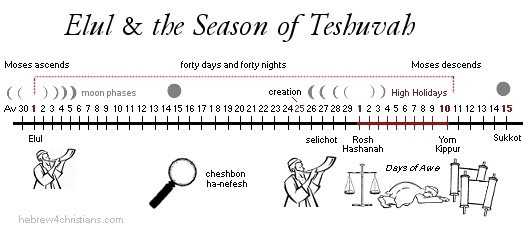 |
The month of Elul is therefore set apart for us to respond to the message of teshuvah, to take account of the soul (חשבון הנפש), and to prepare for the fall holidays. The Alter Rebbe likened the month of Elul as a time of favor to approach our King. He used a parable to depict the season: "Before a king enters his city, its inhabitants go out to greet him and receive him in the field. At that time, anyone who so desires is granted permission to approach the king and to greet him. He receives them all pleasantly, and shows a smiling countenance to all."
"The King is in the field." He draws near to us and the hour approaches for him to be revealed. As we look for our blessed hope to be fulfilled, the sound of the great "teruah" shout ascends with the cry of the heart to be with the Lord our King. May that day come soon, and in our generation. Amen.
Teshuvah of Righteousness...
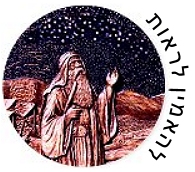
08.17.23 (Av 30, 5783) "And it shall be our righteousness, if we observe to do the whole commandment (כָּל־הַמִּצְוָה) before the LORD our God, as he has commanded us" (Deut. 6:25). The sages identify this "whole commandment" with doing teshuvah, or turning back to God, for this is the essence of tzedakah (צְדָקָה), which Ramban identifies as God's own righteousness. As it is written of Abraham: "And he (i.e., Abraham) believed in the LORD, and He accounted it to him for righteousness" (Gen. 15:6). This is an "imputed" righteousness, a blessing bestowed upon Abraham as he trusted in God's promise for life...
In this connection, the Ramban notes that though they share the same root, the word tzedek (צֶדֶק), meaning "fairness" is different from the the word tzedakah (צדָקָה), meaning "righteousness," by the addition of the letter Hey (ה) at the end of the word, which signifies the agency of the Holy Spirit.
It is the goodness of God that leads us to repentance (Rom. 2:4). When we turn to God, not out of compulsion or fear, but because he personally calls to our hearts, when we believe in his kindness and love, his grace sanctifies us to fulfill all the requirements of the law (Rom. 13:10). It is the righteousness of God, his goodness and mercy and blessing, that returns our hearts back to Him. Amen. This is the great truth of "justification by faith" that the Protestant Reformers rediscovered after many years of theological obscurantism.
Hebrew Lesson
Genesis 15:6 reading (click for audio):
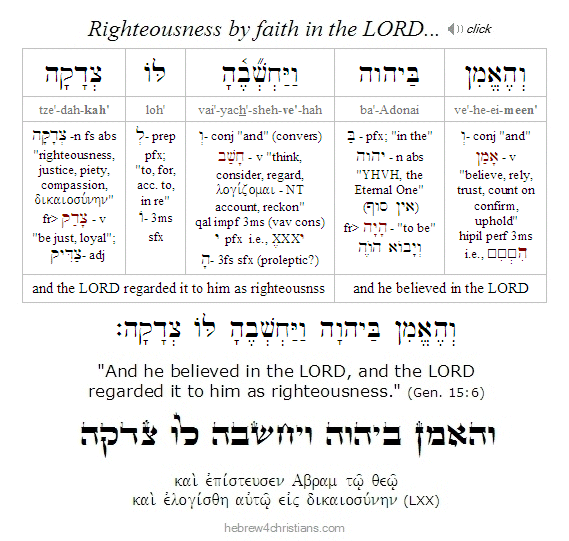 |
Seeking God's Presence...

[ The following is related to the month of Elul and the theme of teshuvah (repentance)... ]
08.17.23 (Av 30, 5783) The Hebrew word for "world" or "age" is olam (עוֹלָם), which is derived from a root verb (עָלַם) that means "to conceal" or "to hide." God "hides" His face from us so that we will seek Him, and that means pressing through ambiguity of this world to discern and take hold of the truth (2 Cor. 4:18). Therefore King David said, בַּקְּשׁוּ פָנָיו תָּמִיד/ bakeshu fanav tamid: "Seek His face continually" (Psalm 105:4). Note that the Hebrew gematria (numerical value) for the word "fanav" (i.e., "His face") is the same as that for the word "olam." When we truly seek God's face (i.e., His Presence), that is, "do teshuvah," we are able to discern the underlying purpose for our lives in this age...
As it says in our Scriptures: "Blessed is the one who endures temptation, for when he is tried, he shall receive the crown of life (עֲטֶרֶת הַחַיִּים) that the LORD has promised to those who love him" (James 1:12). The present age, then, constitutes a test that God providentially designs to lead us to the "crown of life," and we are made happy when we go through its fires and are not consumed. Indeed, only those who love the Lord will be able to withstand the fires... The "crown of life" symbolizes that we have truly received the purpose for which we were created and that we are identified with God's own passion and love. The light of the crown represents the Divine Presence within us, the Life that overcomes despair on our behalf.
Hebrew Lesson
Psalm 105: 4 reading (click):
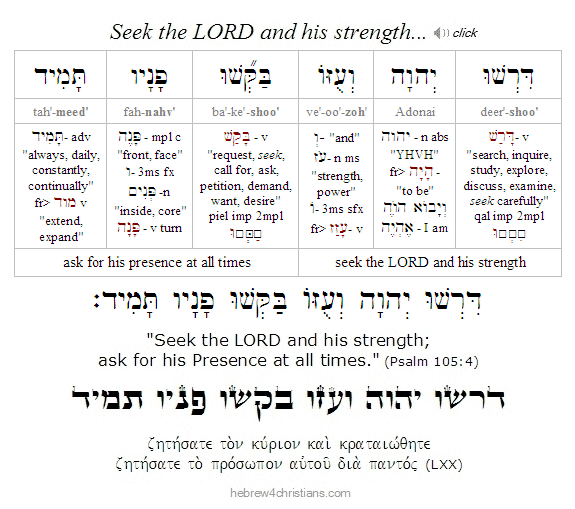 |
"It is not the path which is the difficulty; rather, it is the difficulty which is the path." The ancient Greek version of the Torah (i.e., the Septuagint) translates this verse, "Seek the LORD and be strengthened; seek His face through everything (διὰ παντός)." The LORD God gives us "inner strength" (i.e., ἐγκράτεια, from εν-, "in" + κράτος, "strength" or "power") when we yield to "the power of His might" (ἐν τῷ κράτει τῆς ἰσχύος αὐτοῦ) (Gal. 5:22-23; Eph. 6:10). Therefore we must remember God's power and glory, for "He is the LORD our God (הוּא יְהוָה אֱלהֵינוּ); His judgments are in all the earth" (Psalm 105:7).
Teshuvah and Sanity...

[ "Leave the broken, irreversible past in God's hands, and step out into the invincible future with Him." - Oswald Chambers ]
08.17.23 (Av 30, 5783) It is written in our Scriptures (2 Tim. 1:7) that "God has not given us the spirit of fear (πνεῦμα δειλίας), but of power, and love, and a sound mind" (note that the term "sound mind" comes from the word saos (σάος) "safe," or under the protective restraining influence of the Spirit of God).
Understand the connection between fear and confusion, then, and note further the connection between having a sound mind and a heart of peace and courage (Isa. 32:17)... A fearful or shameful attitude, then, weakens your resolve, quells your love, and introduces pain to your thinking. It is the old ruse of the enemy of our souls to lead us to despair, the exile of shame, and cruel bondage to untruth. As always the answer is the same: namely, teshuvah, turning to God and embracing the grace and love given in Yeshua as our deepest reality, our power, our heart, and our mind.
Hebrew Lesson
Isa. 32:17 Hebrew reading (click):
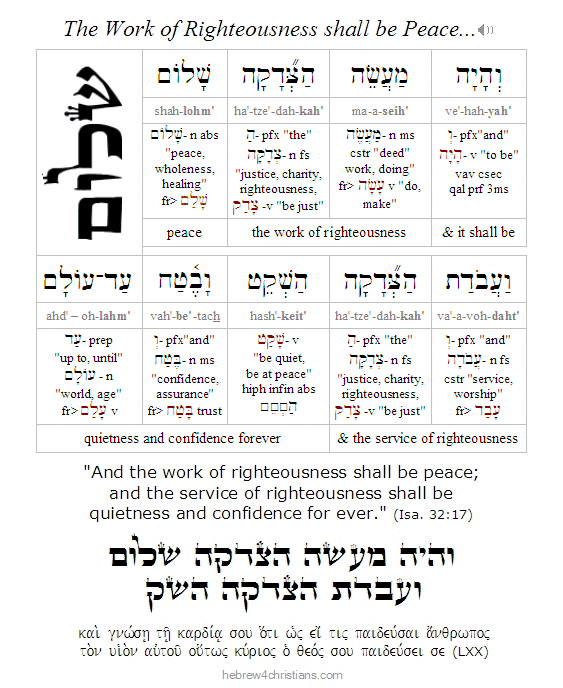 |
Seeing the Invisible...
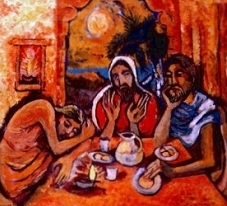
08.17.23 (Av 30, 5783) Two men walked along the "road to Emmaus" from Jerusalem after hearing about the empty tomb of Yeshua. Apparently these two men, named Cleopas and Simon, associated with the disciples of Yeshua and knew Mary Magdalene, Salome, and Mary the mother of James, as well Peter and John (Luke 24:22-24). However, for unknown reasons they had left from Jerusalem, perhaps to return to their home town after the Passover pilgrimage. While they were Jewish believers in the Lord, they struggled to make sense of what happened to Yeshua and why he was crucified...
"Now while they were talking and reasoning together, Yeshua himself drew near and went with them. But their eyes were restrained, so that they did not recognize him" (Luke 24:15-16). Their eyes were "restrained," the Greek verb indicates that they were withheld or prevented from seeing. This recalls how Mary Magdalene looked on and failed to recognize Yeshua at the empty tomb, supposing him to be a gardener instead (John 20:24-25).
Soren Kierkegaard comments that the Savior walks unseen on the way with us, as he did with these two sad people, but we are often unaware of his presence. "We wish, sigh, and are occupied, yet just as we can tell the time by observing the shadows our bodies cast, so we can tell a person's maturity by how near he thinks the highest is to him." Despite this, Yeshua's first post-resurrection revelation would come to these two unsuspecting men.
It's not as if Yeshua had not foretold of his death, burial, and resurrection before, but his message was somehow lost to the disciples and they could not seem to fathom its importance. Their eyes were likewise "restrained" (Matt. 16:21; Matt. 17:22-23; Mark 10:32-34, Luke 24:6-7). Nevertheless, Yeshua took the time to contextualize his mission with them: "And beginning at Moses and all the Prophets, he expounded to them in all the Scriptures the things concerning himself" (Luke 24:27). Still they were full of questions, their heads spinning over what they were being told. As they drew near to the village where they were going, Yeshua acted as though he wanted to go further. But they urged him, saying, "Abide with us, for it is toward evening, and the day is far spent." So he went in to stay with them (Luke 24:28-29). They felt lost; they couldn't keep up with what was being said, but the Lord was patient with them.
After awhile, as he was sitting at the table with them, Yeshua took bread, blessed and broke it, and gave it to them. And then came the great moment. Their eyes were suddenly "opened" and they recognized him; and he vanished from their sight (Luke 24:30-31). He "vanished" because he did not wish to be known directly at this time (1 Cor. 13:12). He "hides" so that we may learn to seek Him. It is faith that sees, the "eyes of the heart" that recognize the miracle of God's grace revealed in Yeshua. This is the season wherein we "walk by faith, not by sight" (2 Cor. 5:7); there is a coming day when all will finally be revealed (Rev. 1:7).
But what did these two men recognize? What did they see? What did they learn? Was it not that Yeshua embodies the words of Moses and the Prophets, and the Psalms, as he later reaffirmed to the other disciples who likewise had their minds opened so they could understand the Scriptures (see Luke 24:44-45)? Yeshua is the Lamb of God, the heart and center of divine revelation. "Then their eyes were opened" and they saw his brokenness, his wounds, his sacrificial death as the great "Passover of the LORD" given on our behalf. Their eyes were opened when they saw Yeshua lifted up upon the cross, the place where all people are drawn to God (John 3:14:-15; John 12:32).
The walk of faith is one of "unseen hope," even though our Lord is always close (Deut. 30:14). It was "toward the evening," with the day far spent, in the later hours that the glimpse was given, when the heart of faith finally recognizes that God has walked by his side all through the days of life. "What will death be like?" they asked the teacher. "It will be as if a veil is ripped apart and you will say in wonder, "So it was you all along!" (De Mello).
 |
The Decision of Teshuvah...

08.16.23 (Av 29, 5783) The Scriptures warn that a "double-minded person is unstable in all his ways" (James 1:8). The word translated "double-minded" is dipsuchos (δίψυχος), which literally means having "two souls." A double-minded man is full of inner conflict and indecision; he's like the proverbial "divided house" that cannot stand. The way to be healed of a divided heart is to earnestly make a decision: "Draw near to God, and he will draw near to you" (James 4:8). There are no conditions given here -- other than your raw need to connect with God for help. "Purify your hearts, you double-minded ones" (δίψυχοι, lit. "two-souled ones"); make up your mind and be unified within your heart: "How long will you go limping between two different opinions?" (1 Kings 18:21). You are invited to come; God has made the way; your place at the table has been set and prepared. "Let us draw near with a sincere heart in full assurance of faith (ἐν πληροφορίᾳ πίστεως), with our hearts sprinkled clean from an evil conscience and our bodies washed with pure water. Let us hold fast the confession of our hope without wavering, for he who promised is faithful" (Heb. 10-22-23).
The Lord responds to those who sincerely cry out to him (Psalm 145:18). He is "near to the brokenhearted and saves the crushed in spirit" (Psalm 34:18). Indeed, salvation is as close as your own mouth and heart (Rom. 10:8-13). But how many are the days of your life? How many opportunities for you to make up your mind? "How long will you go limping between two opinions?" Therefore choose this day whom you will serve. Make the first step; open your heart, and the LORD will then help you make the wholehearted decision to "seek the LORD while He may be found; call upon Him while He is near." Amen.
Teshuvah of Happiness...

[ "The unhappy person is one who has his ideal, the content of his life, the fullness of his consciousness, the essence of his being, in some manner outside of himself. The unhappy man is always absent from himself, never present to himself." - Soren Kierkegaard: Either/Or ]
08.16.23 (Av 29, 5783) It is common for people to associate personal happiness with the flux of circumstance. They tend to be happy whenever things are going their way, but they are unhappy if they do not. This conditional way of thinking is superstitious, however, because it regards happiness to be an "accidental" aspect of life, depending on factors or circumstances quite outside of ourselves. Many think that happiness is more a matter of dumb luck (or fate - take your pick) than of character... The heart of faith, however, affirms that all things - both the good and the bad - work for our good.
Of course, each of us is "thrown" into the world (a Heideggerian term meaning that we are radically rooted to an inscrutable chain of events beyond our control), and because of this we find ourselves born at a particular time and place, related to particular genealogical ancestors, embedded within a particular culture, and so on. Unlike Rene Descartes who questioned all his presuppositions in order to find a indubitable starting point or foundation upon which to build an edifice of objective knowledge, we acknowledge that we are overrun with presuppositions that we have unconsciously inherited from culture and that are embedded within our native language. Descartes thought he had found his starting point in the existence of his own psyche ("I think therefore I am"), but his dualism between subject and object, and between mind and matter, engendered both an impossibly high standard for attaining certainty about what we can know as well as skepticism regarding what is real.
As we reflect upon the fact that have been "thrown" into a pervasive culture (or "world") wherein we unconsciously assimilated its moral values (ethos), and its prevalent language and semantic structures, we can begin to question our presuppositions and ingrained assumptions. We begin to see how we have been systematically deceived by the fallen world, and we can then begin to think for ourselves...
If we uncritically retain our culture's biases, however, we reinforce thinking that has already been defined for us as the "status quo." It is "truth" interpreted by convention. Mindlessly conforming to the crowd's thinking is to lose your own soul. For example, consider how our culture of technology is suffused with the internet and therefore the "public interpretation" of what is real. This has led to what has been called "hyperreality," that is, the inability to distinguish between what is real and what is a simulation. Fake news; fake influencers; deepfake technology; repeated soundbites and images: the lines between the real world and the digital world have been blended and blurred... Disinformation, propaganda, and outright deception are disseminated to the "public" (by powerful controlling groups) that provide prewritten scripts designed to normalize atrocities (such as unjust wars) or to indoctrinate irrational mandates (such as deceptive vaccination or monetary policies). This creates a sense of "derealization" of the world, a sense of detachment and uncertainty about what is real. Those who dare to ask questions or to think clearly are often demonized or "canceled" by the controlling culture. An unspoken "social credit" system is surreptitiously engineered and self-censorship is a coerced virtue. Tragically, those who refuse to think deeply and clearly become unfeeling and desensitized. They "gain the world and lose their souls." They become a "programmed self" that is lost, zombified, and easily manipulated. Waking up, however, is never easy to do, and indeed makes you an enemy of the state, a thought criminal, a defector of political correctness ideology, and so on. Nevertheless, deliverance comes from confessing our lost condition, acknowledging our sin, and being willing to accept responsibility for our lives. It is a rebirth into the world of spirit and truth given by Yeshua.
The sages say that the Hebrew word for "happiness," i.e., "simchah" (שִׂמחָה), contains the word machah (מָחָה), which means to "erase" or "blot out" (see Psalm 51:1), and that this suggests that we find joy and gladness when turn away from the world and its falsehoods (העולם השׁקר). The Hebrew idea of "being happy," i.e., be'simchah (בְּשִׂמחָה) also shares the letters for the word "thought," i.e., machshavah (מָחְשׁבה), suggesting that there is a connection between how we think (that is, our "thought life") and our appropriation of happiness and joy. This "turning away" from the fallen world to God is called "teshuvah" or repentance. The Greek word for repentance is "metanoia" (μετάνοια), which means to "go beyond" (μετά) our worldly understanding (νοῦς), biases, prejudices, and habits of mind to encounter "aleithea" (ἀλήθεια), a word that means going deeper to remember the truth.
How we think, how we "frame" our thoughts, is driven by emotional connotation and nuances of the heart, and these factors contextualize our words and determine their meaning. Furthermore both the words we speak and how we speak them confess our faith - whether it be the faith of despair and anger or the faith of peace and joy. If we feel bound to circumstances and interpret the meaning of our lives as dictated by the fallen world system, we will despair and attempt to lose ourselves in endless distractions. On the other hand, if we turn to God, focusing on his presence and love, we will find joy and happiness, regardless of our present circumstances. By God's grace, we will learn to accept that whatever happens - our own "thrownness" - is really a means to our ultimate healing and blessing. We must descend in order to ascend (John 12:24).
It is written in our Scriptures: "For our light affliction, which is but for a moment, is working for us a far more exceeding and eternal weight of glory, while we do not look at the things which are seen, but at the things which are not seen. For the things which are seen are temporary, but the things which are not seen are eternal. For we know that if our earthly house, this tent, is destroyed, we have a building from God, a house not made with hands, eternal in the heavens. For in this we groan, earnestly desiring to be clothed with our habitation which is from heaven" (2 Cor. 4:17-5:2). Amen, keep your eyes on the goal, chaverim!
Hebrew Lesson
Psalm 51:8 reading (click for audio):
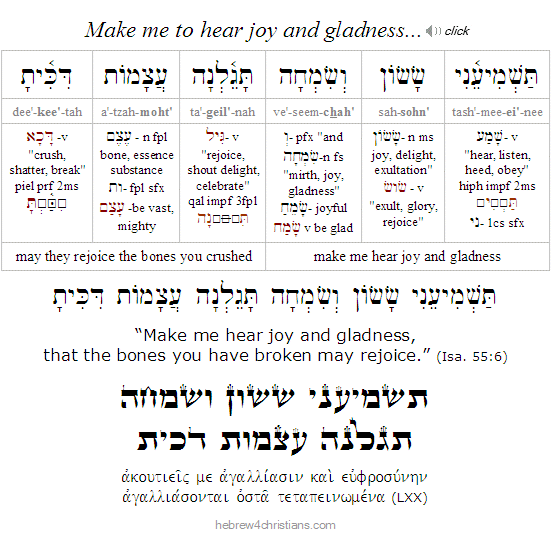 |
The High Holidays Psalm...
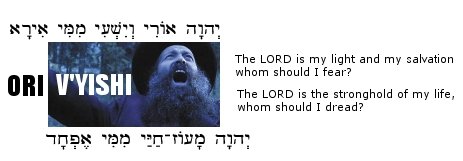
[ The month of Elul (אלול) begins tomorrow at sundown, and with it begins the 40 day period of teshuvah that culminates in the Day of Atonement, or Yom Kippur.... ]
08.15.23 (Av 28, 5783) It is an old custom to read (or to sing) the Book of Psalms during the preparatory month of Elul. In the famous Song of Moses, it is written: וַיּאמְרוּ לֵאמר אָשִׁירָה לַיהוָה / "and they spoke, saying: 'I will sing to the LORD' (Exod. 15:1). This phrase can be formed into an acronym for Elul (אלול), and the sages therefore reasoned that hearing the Psalms were vital during the Season of Repentance and Days of Favor.
Of all the great Psalms, however, Psalm 27 is considered the central one of the season of teshuvah (repentance). The midrash on the Psalms states that the word ori (אוֹרִי), "my light," refers to Rosh Hashanah (based on Psalm 37:6), whereas the word yishi (יִשְׁעִי), "my salvation" (lit. "my Jesus"), refers to the atonement given on Yom Kippur. King David also mentions that God would hide him in his sukkah (בְּסֻכּה) in the time of trouble, referring to the holiday of Sukkot (Psalm 27:5). Therefore since it alludes to all three of the fall holidays, Psalm 27 is regarded as the thematic Psalm for the High Holidays of the Jewish year.
Hebrew Lesson
Psalm 27:1 Hebrew reading (click):
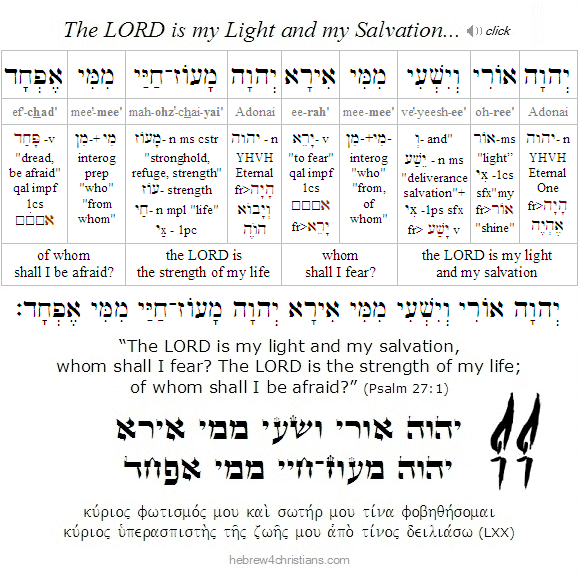 |
Finally, Psalm 27:13 contains a textual oddity. It is often translated: "Unless I had believed to see the goodness of the Lord in the land of the living." The word often translated "unless" is lulei (לוּלֵא), which read backwards spells Elul (אלול). This is said to suggest that salvation comes from faith that sees the goodness of the LORD. Repentance is only really possible if we believe in the goodness and love of the Lord "in the land of the living."
The True Prophet like Moses...

[ The following is related to this week's Torah reading, parashat Shoftim... ]
08.15.23 (Av 28, 5783) In our Torah portion for this week, parashat Shoftim, we read Moses' great prophecy of the Messiah: "The LORD your God will raise up for you a prophet like me from among you, from your brothers -- it is to him you shall listen" (Deut. 18:15). Although there is not a lot of detail given in this prophecy, there is enough to determine some of the necessary conditions regarding the qualifications for the great prophet to come. For instance, God would "raise up" this prophet, the verb "raise" used in this verse (i.e., קוּם) alludes to the divine power of resurrection (תְקוּמָה). This prophet also would "be like" Moses (כָּמֹנִי), which means that he would share the same characterisitcs of Moses who was a redeemer sent by the LORD, a teacher, a prophet, a lawgiver, and so on. Now Islam claims that this prophet to come was "Muhammad," though that is certainly false, since Moses clearly said that the prophet to come would be a Jew who would be from the people Israel ("from among you"), not from another nation, and particularly not from the descendants of Ishmael (i.e., from Hagar rather than Sarah; see Gen. 17:19-22; Gal. 4:22-26).
So what basic characteristics were to mark this extraordinary Jewish prophet to come? To answer that question wisely, we must consider the life of Moses to discern the one who would be "like" him, that is, a prophet who would serve as an analog to his mission and life....
Consider, then that after being chosen by God to deliver Israel from bondage during the time of the Exodus, Moses became 1) the mediator (priest) of the covenant between God and the Jewish people, 2) the legislator the various commandments of the Torah, and 3) the prophet who received the vision of the Mishkan (the Altar), the future exile, and the ultimate destiny and glory of Zion. Moses was extraordinary because as the mediator of Israel, he instituted various sacrificial rites before the laws of sacrifice were enacted. For example, he instituted the Passover sacrifice in Egypt (Exod. 12:1-11), and when the people later reached Mount Sinai, he offered blood sacrifices to ratify the terms of the covenant (Exod. 24:8). As the great legislator of Israel, Moses declared the terms of the covenant, serving as its voice of authority. And finally, as the great prophet of Israel, Moses ascended the mountain and received the vision of the Mishkan (i.e., Tabernacle) before the priesthood had been instituted in Israel (Exod. 25:8-9). And even after the laws of the priests were proclaimed and the Mishkan was set up, Moses went before the very Holy of Holies to directly hear the Voice of the LORD, even though technically speaking this was forbidden, since he was not a kohen (i.e., descendant of Aaron). Indeed our Torah portion this week (i.e., parashat Naso) concludes, "And when Moses went into the tent of meeting to speak with the LORD, he heard the Voice speaking to him from above the mercy seat (i.e., kapporet: כַּפּרֶת) that was on the Ark of the Testimony, from between the two cherubim; and it spoke to him" (Num. 7:89). Near the end of his life, Moses message to Israel was summarized in a prophetic song called Ha'azinu that foretold Israel's entire history, past, present, and including the future redemption of the Jewish people.
"A prophet like unto me..." (Deut. 18:15). I mention all this because some people stumble over the fact that Yeshua, who was from the tribe of Judah, served as Israel's High Priest of the New Covenant, but Moses was from the tribe of Levi . But remember, though Moses was a Levite, he was not a member of the priesthood, even though he had defined the role of the sacrificial system to Israel and had direct access to the presence of the LORD within the sacred chamber of the Mishkan itself. Of course this issue is addressed in the Book of Hebrews, where the role of the Malki-Tzedek priesthood is ascribed to King Yeshua (Heb. 5:6-11; 7:1-19), but it is important to realize that Moses himself foresaw the coming of the Messiah as Israel's great Prophet, Priest and King (Deut. 18:15-19; John 5:36). Therefore, just as Moses himself was "outside" the law by serving as Israel's priest but nevertheless was commissioned by God Himself, so also with Yeshua, who instituted the sacrifice of His blood as the Lamb of God and who went directly before God's Throne to intercede on our behalf. Amen. For more on this see the article: "Moses' Prophecy of the Messiah."
Hebrew Lesson:
Deut. 18:15 reading (click):
Being Made Whole with God...

08.15.23 (Av 28, 5783) Shalom chaverim. In our Torah portion for this week (i.e., Shoftim) we read: "You shall be blameless with the LORD your God" (Deut. 18:13), which seems to suggest that we should be perfectionistic in our faith, and indeed some older Bible versions translated the Hebrew word tamim (תָּמִים) as "perfect" which once meant "to be thoroughly made," though in modern times means flawless, faultless, or ideal. Because of these connotations, it is better to translate the Hebrew word as "complete," "whole," or "sincere."
When God said to Abraham, "I am El Shaddai; walk before me and be tamim (Gen. 17:1), he was not saying "be perfect" or "don't ever make a mistake," but rather be fully engaged, that is, to walk before God passionately, sincerely, wholeheartedly (מכל הלב), and by doing so to "walk out" the relationship with full assurance that he is accepted and beloved by God. Likewise when Yeshua said "Be therefore perfect as your Father who is in heaven is perfect" (Matt. 5:48), he meant that we should be complete, finished, and "made whole" by knowing and receiving the overflowing love and light of God.
"You shall be wholehearted with the LORD your God" is therefore a mandate to know who you are, to know what is truly good as distinguished from what is evil, and to be united with God's passion to be healed from your inner conflicts and ambivalence (δίψυχος). We are made "whole" or "perfect" (i.e., complete) when we resolutely turn to God for healing of what divides our hearts, as it says: "The Torah of the LORD is perfect (תָּמִים), returning the soul" (Psalm 19:8). Understand the Torah's commandment, then: "You shall be tamim (i.e., whole and wholehearted) with the LORD your God," to be a prophecy of transformation for your life, friend... Amen. And may you passionately know "the love of Messiah that surpasses knowledge and be filled with all the fullness of God" (Eph. 3:19). Shalom chaverim.
Hebrew Lesson
Deut. 18:13 Hebrew reading (click):
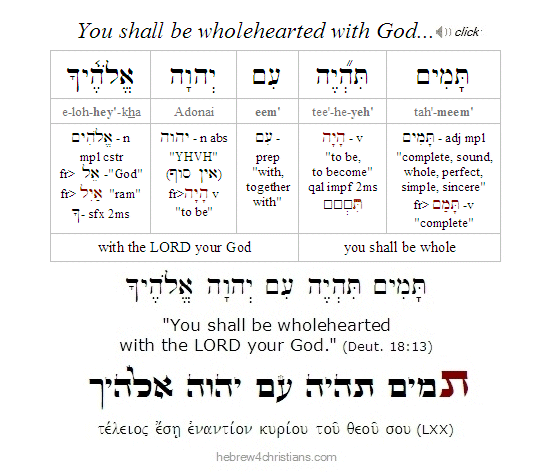 |
Note: In the Sefer Torah (i.e., the handwritten Torah scroll), the first letter of the word tamim ("wholehearted") is written extra LARGE in order to emphasize the importance of the word. Notice also the little word "with" (עִם) that follows in this verse. This hearkens to Micah 6:8: "What does the LORD require of you except to do justice (mishpat), and to love mercy (chesed), and to walk humbly (hatznea lechet) with your God?" Having a humble heart walks with the LORD. Humility begins with the awareness that 1) there is a God and 2) you are not Him.... It is the practice of da lifnei mi attah omed: "knowing before whom you stand" and living your life in light of this fundamental truth.
Lessons from Wasteplaces...

[ "I believe in Christianity as I believe that the sun has risen: not only because I see it, but because by it I see everything else." - C.S. Lewis ]
08.14.23 (Av 27, 5783) Faith in God brings us into alignment with what is true and real, and therefore there is no greater tragedy than to be immersed into falsehood and delusion, lost inside yourself -- "tohu va'vohu," chaos and unreality. We find the ground of our being in our connection with the truth of God's presence given in Yeshua. He is the vine of life, and our communion with him imparts the flow of the life-giving Spirit within our hearts...
We "deny ourselves" when we enter into life, for deliverance from ourselves comes by the miracle of grace. Such denial redefines our relationship with olam ha'sheker, the false world experienced in our selfishness and in our fears. Discipleship entails learning to "see through" the appearance of what seems to be real to apprehend what is truly real, and this revelation comes from the greater spiritual power that sustains and upholds all things. When we let go of our superficial view of things we begin to see the divine presence in our midst.
It's been said that letting go of everything is a sort of "wilderness" experience. In the desert places we rely on God alone for everything. And because we rely on God alone to carry us in the way, we are subjected to temptation, as Israel was tempted in the desert for 40 years, and as Yeshua himself was tempted by the devil in the desert as well. The temptation is to lose our minds and be swallowed up in despair. Such despair whispers that we can't rely on God, that we should hazard our own way, and that we can find remedy for the waste places of the heart using our own devices (Matt. 4:1-9).
Despair interprets the desert "naturally," that is, satanically. The devil delights in transforming the desert into a place of worldly glory and comfort so that we can forget all about God. This is the idea of the "world" (κόσμος), which is another type of desert - desolate, gilded, godless, and devoid of faith. The heart of faith overcomes the despair of the world, not by ignoring it, but by facing its illusions and refusing to consent to its false philosophy of life.
It is a battle to believe; it is the "good fight of faith." Facing despair in the hope of our salvation in Yeshua overcomes the world and its self-chosen delusions (1 John 5:4). Yet we must face despair, even as we walk through the valley of the shadow of death on our way to the home of God's heart.... As Thomas Merton wrote: "Only the man who has had to face despair is really convinced that he needs mercy. Those who do not want mercy never seek it. It is better to find God on the threshold of despair than to risk our lives in a complacency that has never felt the need of forgiveness. A life that is without problems may literally be more hopeless than one that always verges on despair." Amen, the blessing of despair is the invitation to find life in God.
The walk of faith requires courage and divine strength... The human mind reasons and therefore fears, but the heart is the center of our being, the core of who we are. The heart does not reason its way to love but instead allows love to inform and direct reason. Therefore God asks our hearts to trust in him, and he does not allow calculated human reason with its fears to move us on the way (Isa. 55:8). When we receive divine grace to faithfully suffer, we hear the Spirit whispering back to us: "Be not afraid..." "Live in me..." "Walk in the light..." "I am with you always..." "You will endure..." "You are loved..."
Hebrew Lesson
Psalm 73:26 Hebrew reading (click):
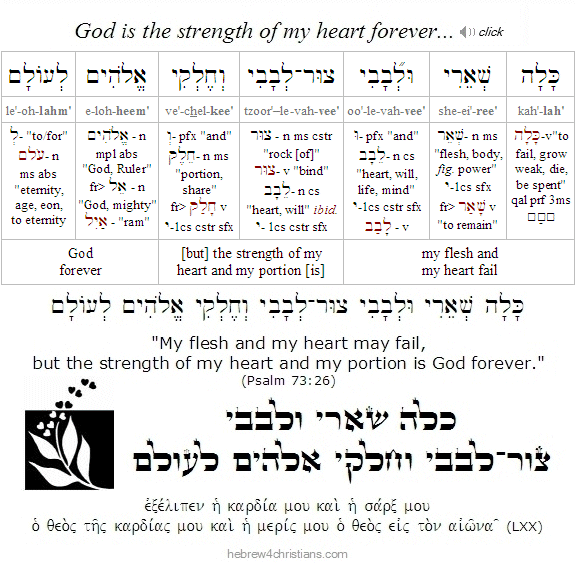 |
If there's supernatural element missing from modern Bible teaching, the biggest oversight is that of Messiah Himself, who is alive and we are contemporaries of his presence and mission. Everything points to Him; He is the Center, the "Gravity" and Light of all that exists.
Returning to the Lord...
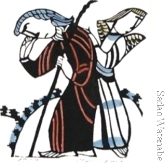
08.14.23 (Av 27, 5783) The only way we will draw near to God is by believing that He draws near to us, personally, intimately... "Behold I stand at the door and knock" (Rev. 3:20). Faith "hears the knock" as God's desire to draw near... faith hears his voice and opens the door to his presence; faith believes to partake in his communion.... "Draw near to God and he draws near to you" (James 4:8). The Hebrew word karov (קרוב) is translated using engidzo (ἐγγίζω) in New Testament Greek, a word that means to come close and touch... When we draw close to God, we reach out and find God holding us. Our "I" melts away as we cling to God as our dear life; we become one with his heart; we lose ourselves to find ourselves.
Hebrew Lesson
Zechariah 1:3b reading (click):
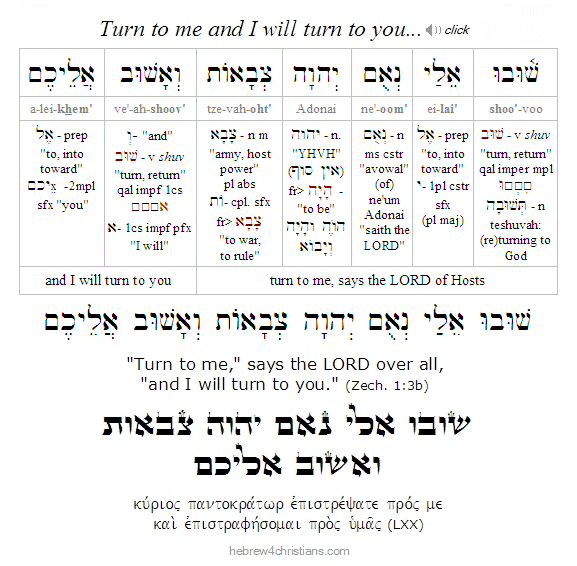 |
"Turn to me, and I will turn to you..." (Zech. 1:3). Someone might wonder why we must take the initiative, but that is because God has never turned away from us; he has always been the one who loves us most of all and awaits our return to his love.... "Turn to me and you will discover that I have never left you nor forsaken you."
Yeshua illustrated the idea of teshuvah (i.e., תְּשׁוּבָה, "returning to God") by telling the famous story of the "prodigal son" (Luke 15:11-32). After selfishly squandering his father's inheritance, a wayward son decided to return home, full of shame and self-reproach. "But while he was still a long way off, his father saw him and was filled with compassion for him; he ran to his son, threw his arms around him and kissed him." The father then ordered a celebratory meal in honor of his lost son's homecoming. When his older brother objected, the father said, "We had to celebrate and be glad, because this brother of yours was dead and is alive again; he was lost and is found."
This parable reveals that teshuvah ultimately means returning (shuv) to the outstretched arms of your Heavenly Father... God sees you while you are still "a long way off" (Rom. 5:8). He runs to you with affection when you first begin to turn your heart toward Him. Indeed, God's compassion is so great that He willingly embraces the shame of your sins and then adorns you with "a fine robe, a ring, and sandals." Your Heavenly Father even slaughters the "fattened calf" (Yeshua) so that a meal that celebrates your life may be served....
 |
Guarding your Heart...

08.13.23 (Av 26, 5783) Our Torah portion for this week, parashat Shoftim, begins: "Judges and officers you shall give to yourself (תִּתֶּן־לְךָ) in all your gates" (Deut. 16:18). In this connection some of the sages interpreted the word "gates" (שׁערים) to refer to our sense organs, for example, the "eye gate," the "ear gate," and so on. Likewise the Lord instructs us to write the words of Torah "upon the doors of our house and on our gates" (Deut. 6:9). Because we are naturally inclined to "spy after our hearts and eyes" (Num. 15:39), we are instructed to appoint "gatekeepers" to protect the sanctity of our heart and soul, as it says: "Above all else guard your heart, for from it flow the springs of life" (Prov. 4:23).
The Hebrew text for this verse is emphatic. We are to guard our hearts vigilantly, just as a prison guard or warden might keep watch over a prisoner. The phrase translated "above all else" literally means "more than anything that might be guarded" (mikkol mishmar), a construction used to intensify the command to exercise vigilance. Plainly put, this verse commands us to watch over our heart more than anything else.
And yet "the whole head is sick, and the whole heart faint" (Isa. 1:5). We understand how apt we are to go astray in our affections, and therefore the heart is easily divided, obstructed, and liable to failure... Despite its frailty, however, the heart determines totze'ot chayim, or the "springs" or "contours" of life. In the Tanakh, the word totza'ot is often used to refer to the borders of territories or the boundaries of a city. This verse is saying that from the heart of a person (lev) a "map" or "chart" to life is drawn. As the heart is either pure or corrupt, so will be the course of one's life... Purity of heart represents healing, which means being single-minded in our affections and attention before the LORD.
How you choose to guard your heart from inner corruption and hardness will determine the "road" of your life. Concerning this verse the Metzudos commentary says, "Above all – more than anything else – a person must be careful to guard his heart from improper thoughts, for one cannot contemplate using the heart – the very vortex of life – to harbor thoughts that are inimical to life." Because the flesh is weak, we must be vigilant lest we become cynical, weary, and unfeelingly selfish. An unguarded heart soon becomes troubled, lonely, suspicious, and unstable. If, however, we keep ourselves from the obstruction of sin, we will experience the free flow of compassion, encouragement, and joy. The faithful heart is open - it believes all things, hopes all things, and endures all things (1 Cor. 13:7).
"Judges and officers you shall give to yourself (תִּתֶּן־לְךָ) in all your gates." Note that that Torah states that you shall appoint these to yourself, stated in the singular, not in the plural, to suggest that it is your personal responsibility to guard your heart from negative influences. God considers it your duty to yield yourself as a vessel or "steward" of the kingdom of God (Rom. 6:13). We must regularly ask God to enlighten "the eyes of our heart" (τοὺς ὀφθαλμοὺς τῆς καρδίας ὑμῶν) according to His wisdom and power (i.e., truth revealed in Scripture), and to impart the power of the Holy Spirit to transform our desires and affections so that they conform to the character of the Messiah (Eph. 1:18).
Hebrew Lesson
Proverbs 4:23 Hebrew reading (click):
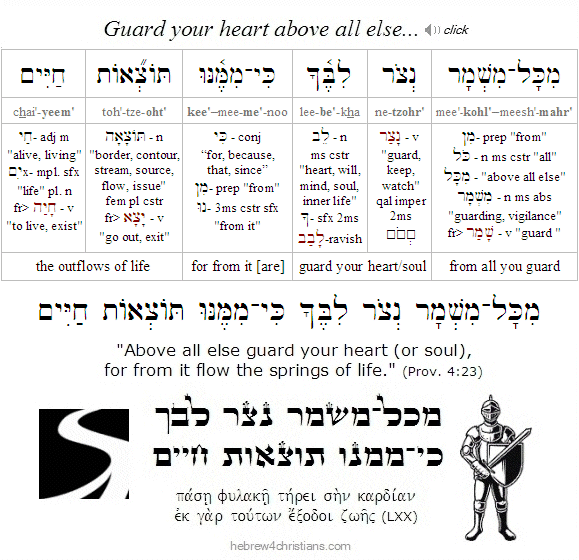 |
Parashat Shoftim - שופטים
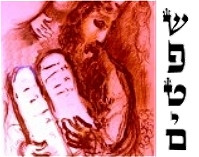
[ Surely this nihilistic and moribund culture of anarchy, relativistic chaos, and "radical" politics needs to hear the Torah regarding matters of social justice.... ]
08.13.23 (Av 26, 5783) Our Torah reading for this week (Shoftim) begins with the commandment that the people of Israel should appoint judges (i.e., shoftim: שׁפְטִים) and officers (i.e., shoterim: שׁוֹטְרִים) so that justice would be respected throughout the promised land (Deut. 16:18). The duty to establish justice is famously stated as, "tzedek, tzedek tirdof" (צֶדֶק צֶדֶק תִּרְדּף): "Justice, Justice you shall pursue" (Deut. 16:20). The word tzedek means "righteousness" and involves the obligation to adhere to moral truth.
Throughout the portion the theme of social justice predominates, as the ethical characteristics for judges are defined, as well as for elders, kings, prophets, and priests, all of whom are responsible for maintaining a just and healthful society. As the prophet wrote: "The work of righteousness shall be peace" (וְהָיָה מַעֲשֵׂה הַצְּדָקָה שָׁלוֹם), and "the service of righteousness (וַעֲבדַת הַצְּדָקָה) shall be quietness and security forever" (Isa. 32:17).
Hebrew Lesson
Opening words of the Torah portion (click):
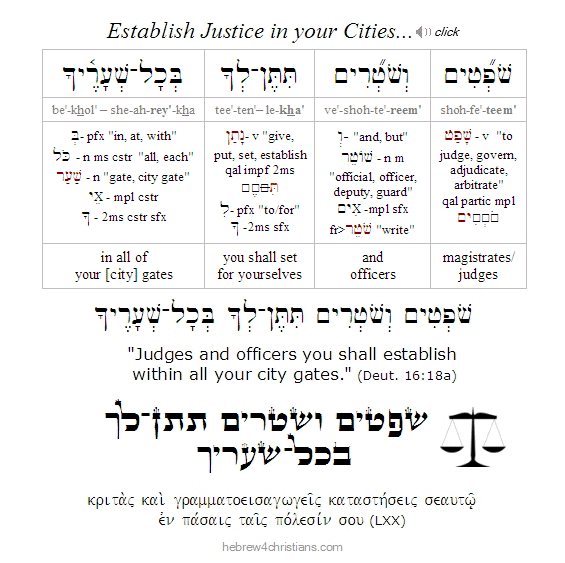 |
Note that the call for justice, "tzedek, tzedek tirdof" (צֶדֶק צֶדֶק תִּרְדּף) is stated twice to teach that justice must be pursued in an entirely just manner, that is, the methods used to obtain justice must themselves be just... Corrupt law enforcement and judicial systems, political persecution, etc., are all condemned. The Scriptures therefore do not advocate pragmatism or utilitarian thinking. There are no "noble lies" in the Kingdom of Heaven. Violence (verbal or physical) or deception done in the name of God is always forbidden and will be judged by the LORD. We must execute great restraint and caution when we seek to confront oppression in the world. If you want to change the world around you, begin with yourself....
Hebrew Lesson
Deut. 16:20 Hebrew reading (click):
The 40 Days of Teshuvah...
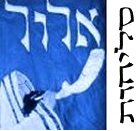
[ The Forty Day "Season of Repentance" begins Wednesday, August 16th this year... ]
08.13.23 (Av 26, 5783) The last month of the Jewish calendar is called Elul (אֱלוּל), which begins at sundown on Wednesday, August 16th this year. Traditionally, Rosh Chodesh Elul marks the beginning of a forty day "Season of Teshuvah" that culminates on the solemn holiday of Yom Kippur. The month of Elul is therefore a time set aside each year to prepare for the Yamim Nora'im, the "Days of Awe," by getting our spiritual house in order.
During this time we make additional effort to repent, or "turn [shuv] toward God." In Jewish tradition, these 40 days are sometimes called Yemei Ratzon (יְמֵי רָצוֹן) - "Days of Favor," since it was during this time that the LORD forgave the Jewish nation after the sin of the Golden Calf (Pirke d'Reb Eliezar). Some of the sages liken these 40 days to the number of days it takes for the human fetus to be formed within the womb.
The advent of the "Season of Teshuvah" reminds us that we all fail, that we all are broken people, and that errors and mistakes are part of our daily spiritual life... We journey toward humility and compassion rather than struggle for perfection; we confess our need for forgiveness and seek reconciliation with all those we might have harmed... During this season it is common enough to hear messages about our need to turn and draw near to God for life, but it is equally important to remember that God turns and draws near to the brokenhearted for consolation. As it is said, the Lord is near to the nishbar lev (נִשְׁבָּר לֵב), the one with a broken and crushed heart (Psalm 34:18).
Brokenness is the means through which God performs some of His deepest work within our hearts. A.W. Tozer once said, "It is doubtful whether God can bless a man greatly until he has hurt him deeply." Likewise Alan Redpath once wrote, "When God wants to do an impossible task, he takes an impossible individual – and crushes him." William James called this deep work of the spiritual life Zerrissenheit, a term that roughly can be translated as "torn-to-pieces-hood," or a state of being utterly broken and in disarray... The brokenhearted live in day-to-day dependence upon God for the miracle...
Hebrew Lesson
Psalm 34:18 Hebrew reading (click):
 |
Note that the word "Elul" (אֱלוּל) may be read as an acronym for the phrase,
ani le'dodi ve'dodi li (אֲנִי לְדוֹדִי וְדוֹדִי לִי), "I am my beloved's, and my beloved in mine"
(Song 6:3), to encourage to become full of desire for the Beloved of our soul...
Truth in God's Love...
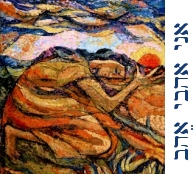
08.11.23 (Av 24, 5783) Our Lord says: "You shall know the truth and the truth shall make you free" (John 8:32). Spiritually understood the soul in its natural state is sick, in a state of error and ongoing self-deception. The truth sets us free from our self-imprisonment, from the bondage we have to our illusions, so that we may be healed, transformed and made new. However, knowing the truth is more volitional than it is cognitive – it is revealed in our decisions and actions, not merely in holding to a "true opinion" or assenting to a "true creed." Knowing the truth permeates the whole person – bekhol levavkha – and accepts all the consequences of its decision and passion. There is danger here, friends. Even learning Scripture and studying theology may become untruth if it is devoid of the fear of the Lord. "How many have asked, 'What is truth?' and at bottom hoped that it would be a long time before the truth would come so close to him that in the same instant it would determine what his duty was to do at the moment?" (Kierkegaard: Works of Love).
The deeper question is whether you actually want genuine freedom, since many are content to "exist" in the cold comfort of their resentments, in the desert of the self-serving ego, and in the wasteland of anger and fear... Self-deception is enticing because it provides an excuse to be mediocre; it justifies a victim mentality and abnegates personal responsibility. It is far easier to blame others for your life than to own the truth about yourself, to walk in the truth, and to seek the blessing of truth. Spiritual freedom means being awakened and empowered to choose the Eternal by denying the present moment's demand to be made absolute. It offers no peace to the natural desire for the soul to return to its sleepy state, but calls and rouses the heart to wake up and confront the demands of eternity...
In heaven there is only the language of truth, and truth is the language of heaven. "If we ask according to his will, he hears us..." (1 John 5:14). This means that words find their traction only in honesty of the heart, in the midst of our deepest need. Only in "fear and trembling" can we talk with God, though when we pray fervently, our words may trail off until we become silent.... But it is there, in the silence of the soul, that we may learn to listen to the Spirit and hear God's voice. When we seek first the kingdom of God, we will lay aside everything else, quiet our hearts, and focus our will. Seeking God in this way is an end in itself, for whatever else we may seek must be subordinated to this greater seeking. "You will seek me and find me, when you seek me with all your heart" (Jer. 29:13).
Hebrew Lesson
Jeremiah 29:13 reading (click):
Courage for the Battle...
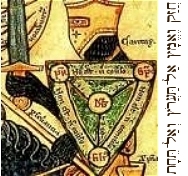
[ It's a spiritual war out there, more today than ever before. US suicides hit an all-time high last year; so many people live in despair and loneliness. The ideals of our country have been eviscerated; propaganda and fake science manipulate the masses. Godlessness by design... ]
08.11.23 (Av 24, 5783) Soldiers are often told chazak ve'ematz ("be strong and courageous") before they encounter the dangers of the battlefield, but it's vital to remember that each of us is engaged in a spiritual war every day of our lives. This war is essentially a battle for truth. If we accept false ideas about the nature of reality, we will live in a state of weakness and fear, even if our reasoning otherwise seems sound.
Before a soldier goes into the thick of battle he must be assured of the rightness of the cause. There can be no wavering or second-guessing the mission to fully engage the enemy. The whole person is involved in the fight – body, mind, and soul. Second-guessing the cause can lead to indecisiveness and lethal weakness. Similarly the war for spiritual truth requires your total commitment – your body, mind, and soul. You cannot evade the enemy by avoiding the fight. You cannot escape this war! It comes to your doorstep demanding your response. And since indecision amounts to a type of surrender, you must consciously choose to engage the enemy with all your heart.... In this way, fighting evil is a corollary to loving God: If you truly love God, you will "hate evil and love good" (Psalm 97:10; Prov. 8:13, Amos 5:15).
Yes, it's easy to become "terrified and inwardly shattered," especially when we listen to the lies, disinformation, and propaganda of this fallen world, but God nevertheless commands us to be strong and resolute. We must take courage and banish panic from our lives. Walking in the truth overcomes the fear of man. God is Light; God is Love; God is peace. We overcome evil with the goodness of truth (Rom. 12:21).
Nachman of Breslov once said that "The whole earth is a very narrow bridge (kol ha'olam kulo gesher tzar me'od), and the important thing is never to be afraid." Yeshua is the Bridge to the Father, the narrow way of passage that leads to life. He calls out to us in the storm of this world, "Take heart. It is I; be not afraid" (Matt. 14:27). When Peter answered the call and attempted to walk across the stormy waters, he lost courage and began to sink, but Yeshua immediately reached out his hand and took hold of him, saying, "O you of little faith, why did you doubt (lit., think twice)?"
So chazak ve'ematz - "Be strong and courageous" (Eph. 6:10). God will see to it that everything will work out for the best. He works all things together for good to those who love Him (Rom. 8:28). Do not lose heart: Chazak chazak v'nitchazek – "Be strong, be strong, and may we be strengthened!"
Hebrew Lesson
Joshua 1:9 reading (click):
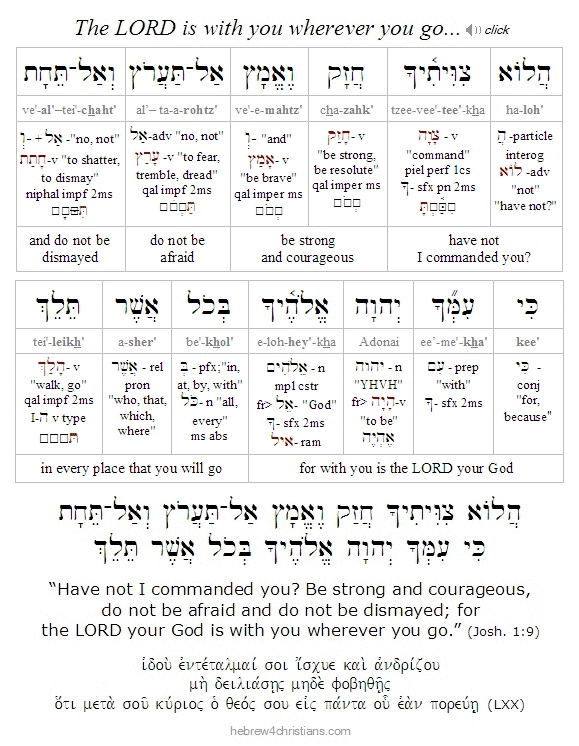 |
Pilgrimage in a Circle...
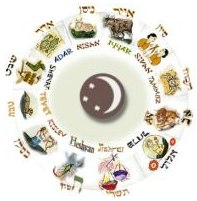
08.11.23 (Av 24, 5783) Our Torah reading this week (i.e., Re'eh) concludes with the commandment to make three "pilgrimage festivals" (i.e., shelosh regalim) each year: Passover, Shavuot (Pentecost), and Sukkot (Tabernacles). In the Torah, these "holidays" are called "appointed times" (i.e., mo'edim: מוֹעֲדִים), a word which comes from a root meaning witness (עֵד). Other words formed from this root include edah (עֵדָה), a congregation, edut (עֵדוּת), a testimony, and so on. The related verb ya'ad (יָעַד) means to meet, assemble, or even to betroth. The significance of the holy days, then, is for the covenant people of the LORD to bear witness to God's love and faithfulness by revisiting our history and by looking forward to their ultimate fulfillment, when we no longer pass through this world but abide in the heavenly reality. Meanwhile we trust in God's prophetic plan as revealed in the holy calendar, and observe the seasons as he has commanded. As it says, "All the paths of the LORD are love and truth to the ones guarding His covenant and His testimonies."
כָּל־אָרְחוֹת יְהוָה חֶסֶד וֶאֱמֶת
לְנצְרֵי בְרִיתוֹ וְעֵדתָיו
kohl-ohr·choht · Adonai · che'·sed · ve·e·met
le·noh·tze·rei · ve·ree·toh · ve·e·doh·tahv

"All the paths of the LORD are compassion and truth
for those who keep His pledge and His testimonies."
(Psalm 25:10)

Hebrew Study Card
Metaphorically the "paths of the Lord" (i.e., orchot Adonai: אָרְחוֹת יְהוָה) are likened to ruts or grooves created by the wheels of a caravan (i.e., orchah: אוֹרחָה) passing repeatedly over the same ground. These paths signify the Divine Presence journeying with God's children in this world. In temporal terms, we are able to discern the path by means of the divine calendar. God's love and faithfulness attend to His covenant (i.e., brit: בְּרִית, "pledge" or promise) and to the commemorations of the yearly "appointed times" (i.e., mo'edim: מוֹעֲדִם) which testify to God's love and faithfulness. Keeping God's testimonies, then, means that we will be careful to observe the biblical holidays in order to witness to God's truth...
Hebrew Lesson
Psalm 25:10 Hebrew reading (click):
Shababt Shalom, dear friends. May this coming Season of Teshuvah be one wherein we all draw closer to the LORD our God... Choose life and blessing! Amen.
Teach us to Pray...

08.10.23 (Av 23, 5783) There is only once place in the New Testament where the disciples asked Yeshua to teach them something, and that was when they said, "Lord, teach us to pray" (Luke 11:1). Yeshua then responded by giving them a pattern of prayer that's been called "the Lord's Prayer," though it's better to think of it as a model for prayer instead of a formulaic petition to recite. After all, the disciples asked "Teach us to pray," not "teach us a prayer," as if a special prayer could serve as a sort of incantation or way to propitiate God.
Yeshua points us to the Father. He did not suggest using Pharisaical expressions such as "Barukh attah Adonai," "Ribbono shel Olam," or "Elohei Avoteinu," nor did he endorse praying three times a day as decreed by the elders of the Great Assembly. No, Yeshua taught us to come to God using the simple word "Father." This is the language of familiar intimacy that expresses the trust a young child has for his earthly father.
So Yeshua teaches us to pray in heartfelt confidence that God is our caring heavenly Father, and this implies that we understand and regard ourselves as his beloved children. We have access to God's heart in a direct and meaningful way.
As God's beloved children, we are to honor and our heavenly Father and to esteem his will and vision for our destiny. "Holy is Thy name"; "Thy will be done"; "Thy kingdom come" - all these matters come before requests for our "daily bread" -- and even before matters of our need for forgiveness of sin. Our course God cares for our daily needs, our forgiveness, our deliverance from evil, and so on, but Yeshua concentrates our focus on the Father and our identity as his children first of all. Da lifnei mi attah omed: "Know before whom you stand."
Regarding our personal petitions, it is wise to understand that your Heavenly Father gives what you need, not what you may want at the time. "Ask and it shall be given you" means "keep on asking" (Luke 11:9). If a recurring request seems to go unanswered, remember that initial barriers are not necessarily final refusals but are meant to yield what is best for you (Rom. 8:28). We can be confident, however, that God hears us when we pray andthat he gives "good gifts" to those who ask Him (Matt. 7:11) -- in particular, gifts of the Holy Spirit (Luke 11:13). God gives wisdom to those who ask for it (James 1:5) and imparts the "spirit of wisdom and revelation to know him better" (Eph. 1:17). If we ask in accordance with his will, we have confidence that he hears us and will act on our behalf (1 John 5:14-15). These are "spiritual blessings in heavenly places" representing the deepest need of our hearts.
We are instructed to "present ourselves to God as those who are alive from the dead" (Rom. 6:13), indicating that we are to come confident of his acceptance because of what Yeshua has done on our behalf. We are "crucified with Christ" (Gal. 2:20) and share in his resurrection life. In the Torah the "daily sacrifice," or korban tamid (קָרְבַּן תָּמִיד), was offered to the LORD every morning and evening upon the altar, which corresponds to being a "living sacrifice" (i.e., korban chai: קָרְבָּן חַי) to the LORD (Rom. 12:1-2). We must take up our cross daily (Luke 9:23). We come "boldly" before the throne of grace. We are made "alive from the dead" to access God's presence and heart for us at all times. We have been made new creations, members of God's household, esteemed, eternally beloved....
"Take my soul and body's powers;
take my memory, mind and will;
All my goods, all my hours;
All I know, and all I feel;
All I think, or speak, or do;
take my heart - and make it new."
- Charles Wesley
Hebrew Lesson
Matthew 6:9b reading (click):
The Narrow Gate of Heart...
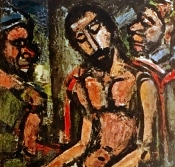
08.10.23 (Av 23, 5783) Knowing something about God is not the same thing as personally trusting Him with your life. The difference between the mere professor and a genuine man of faith is that the latter wrestles through the pain, the ambiguity, the heartache -- yet still holds on to God's love. "Though he slay me, yet I will hope in Him." Of course this does not mean that faith is irrational, since love needs no justification. This works the other way around, too. People who refuse to trust God are seeking ways to justify their spiritual mutiny.
Simply knowing about God can lead to a sense of "distance," to theological abstractions, to dogmas and creedal formulas. More dangerously, the split between the head and heart can lead people to seek emotional satisfaction in things other than a personal relationship with the Living God. Many of our more carnal sins center on the loss of hope for love. Because of our despair, we may return to the old comforts of the flesh, instead of pressing through the immediate desire to discover our longing for eternity, that is, for God's love... I wonder how many sins have been committed because people feel homesick for eternity.
Perhaps the greatest danger is for people to become so numb that they subsist in a state of indifference, no longer concerned about questions of eternal importance. God then becomes "for other people," and the connection between their desire and their deepest need becomes entirely severed. People lose heart and then feel powerless to change. And because they give up hope, they trade their eternal passion for vain trivialities; they become more concerned about television or the outcome of some sporting event than with their eternal souls (Luke 9:25).
There is a way that seems right… even for professing Christians. "Enter by the narrow gate. For the gate is wide and the way is easy that leads to destruction, and those who enter by it are many" (Matt. 7:14). The Christian life is easy if it is merely regarded as "interesting" or "insightful," since then it pleases people and requires nothing in return. It is made even easier when it flatters the ego and tickles the ear in the name of spirituality or religion! However, when the demand comes, when people understand that there is a eternal obligation to authentically live in light of its truth – when they understand that there is a real cost associated with their faith – then the interest quickly fades... Taking up the cross is difficult because the flesh does not want to die... Here is a test case, a way to examine our hearts: "Love your enemies, do good to those who hate you" (Luke 6:27).
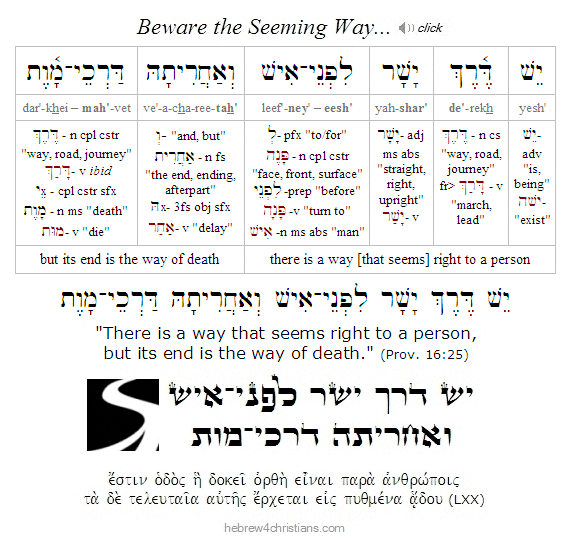 |
Walking after the LORD...
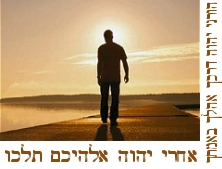
[ The following is related to our Torah reading for this week, parashat Re'eh.... ]
08.09.23 (Av 22, 5783) "You shall walk after the LORD your God and fear him and keep his commandments and heed his voice; you shall serve him and cleave to him" (Deut. 13:4). Here the sages note that the word "after" (i.e., acharei: אַחֲרֵי) implies a sense of distance – and that when we feel distant from God, we should begin taking steps so that we can learn to cleave to him...
Experiencing "distance" is a blessing from heaven, then, since without sensing our great need, how could we turn and seek God for healing and life? Indeed, someone who regards himself as close to God may actually be far away from him, while the one who realizes how distant he is may in truth be drawing close (see Luke 18:9-14).
We cleave to God (דְּבָקוּת) only if we first see ourselves as "acharei," or removed, as it is written: "The LORD is near to the brokenhearted (קָרוֹב יְהוָה לְנִשְׁבְּרֵי־לֵב) and saves the crushed in spirit" (Psalm 34:18). As we learn to walk with God, we are in tension between reverence and love; we feel distant yet we are invited to draw close to God's heart to heal our alienation (James 4:8).
Hebrew Lesson
Deut. 13:4a reading (click):
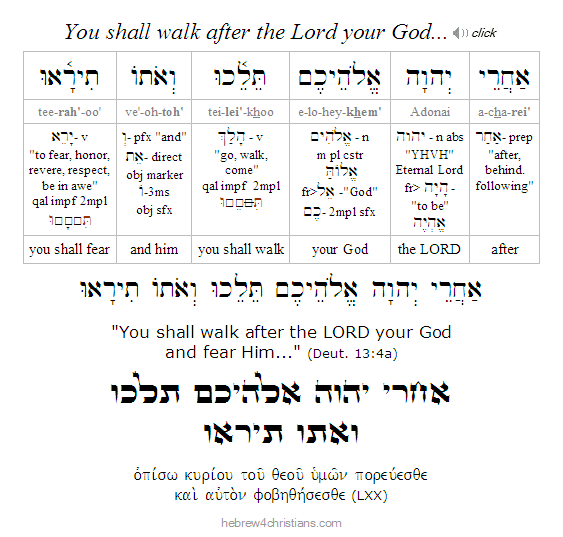 |
Brokenness distills the intentions of the heart by helping us to be more honest with ourselves. We begin to realize that we are more vulnerable than at first we thought; that our faith is not as strong as we imagined, and that our motives are often mixed and unconscious. Illusions are striped away; idols crumble; deeper levels of selfishness are uncovered; the gap between our words and our deeds is exposed...
It is one thing, after all, to intellectually think about faith or to idealize spirituality, but it is quite another to walk out faith in darkness. Yet it is only there, in the rawness of heart, that we discover what we really believe and how our faith makes traction with reality...
Hebrew Lesson
Psalm 34:18 reading (click):
Note: Thank you all so much for remembering this ministry in your prayers, for without your help I just couldn't do this work. May the LORD our God's blessing be upon you...
Believing and Seeing...

[ The following entry concerns this week's Torah reading, parashat Re'eh: "See!" ]
08.09.23 (Av 22, 5783) This week's Torah portion is about seeing. We are commanded to see clearly the choices that lie before us and to choose the way of life and blessing. Note, however, that the Hebrew word for seeing (ראה) and the word for fearing (ירא) share the same root, suggesting that we cannot truly see apart from the reverence of God.
Some people say "I'll believe it when I see it," but the heart of faith believes in order to see... You will see it as you believe. The gift of seeing the truth is a miracle on the order of being born again. As CS Lewis said, "I believe in Christianity as I believe that the sun has risen. Not only because I see it, but because by it I see everything else." If you believe in the love of God there are no questions; but if you refuse to believe, there are no answers.
"You teach," said Emperor Trajan to Rabbi Joshua, "that your God is everywhere, yet I cannot see him." Joshua said that unlike human kings, the LORD was too powerful for people to see; as it is written in the Torah: "No person shall see Me and live." The emperor was skeptical, however, and insisted that unless he could see God, he would be unable to believe. Joshua then pointed to the sun high in the sky: "Look into the sun and you will see God." The emperor tried to look into the sun, but was forced to cover his eyes to keep them from burning: "I cannot look into the sun," he said. Joshua then replied: "Listen to yourself: If you cannot look into the sun which is but one of God's creations, how can you expect to look at God?" (Sefer HaAggadah)
It's been said that the optimist believes this is the best of all possible worlds; whereas the pessimist is afraid that the optimist is right... Faith is the foundation for everything, and indeed, there can be no knowledge of anything whatsoever apart from faith. It is therefore supremely important for us to think clearly about our faith, since what we believe about God has eternal implications...
Hebrew Lesson
Proverbs 9:10 reading (click):
Assured by Love's Promise...

08.08.23 (Av 21, 5783) Right now, if you are seeing this, take a moment to reaffirm that the Lord Yeshua is your deliverer and that you trust in Him for eternal life. As he promised: "I tell you the solemn truth, the one who hears my message and believes in the One who sent me has (i.e., present active indicative) eternal life and will not be condemned, but has passed over (literally, "crossed over") from death to life" (John 5:24). Note that the verb translated "has passed over" is "perfect active" that expresses completed action: "this one has already crossed over from death to life." In other words, the gift of eternal life is an accomplished reality (though it is only experienced as we truly surrender to the love and grace of God from a heart of faith). The "basis" of life is now radically new and of a different order. As the apostle Paul later summarized: "For it is by grace you have been saved (i.e., a perfect passive participle that denotes completed action done on your behalf with effects that continue to the present) through faith, and this is not from yourselves, it is the gift of God, not a result of works, so that no one may boast" (Eph. 2:9-10). I'm so glad it's not the strength of my grip that keeps me holding on to God, but the strength of His...
So "be strong and of good courage" – chazak ve'ematz! The Lord our God promises "never to leave you nor forsake you" and to be with you wherever you go (see Josh. 1:5,9; Heb. 13:5, Psalm 139; Matt. 28:20). In the Greek New Testament, the wording of Hebrews 13:5 is highly emphatic: Οὐ μή σε ἀνῶ, οὐδ᾽ οὐ μή σε ἐγκαταλείπω: "Not ever will I give up on you; no, not ever will I leave you behind." Alevai! May you hear the voice of the Good Shepherd calling you, and may He forever keep you under His watchful care. Amen.
Hebrew Lesson
Jer. 31:3b Hebrew reading (click):
Between Heaven and Hell...

[ "Knowing, therefore, the terror of the Lord, we persuade men..." - 2 Cor. 5:11 ]
08.07.23 (Av 20, 5783) The parable of the "Rich man and Lazarus" (Luke 16:19-31) is one of the most sobering and consequential of the Scriptures. Yeshua's concise and brilliant story ranges over the issues of life and death and of our ultimate destiny beyond the grave. It answers perennial questions about where people go when they die, and it gives counsel about how to plan for the inevitability of judgment. It forewarns of the terrifying prospect of hell and eternal torment while it comforts those who seek heavenly blessing and eternal life. It tells of an "unbridgeable chasm" that exists after death that prevents any return from our final destination, implying that what we believe and how we live in this life has eternal significance and consequences. Those who believe in God's truth as revealed in creation, in history, in the testimony of Scripture, and above all in the revelation of Yeshua will find salvation, consolation, and everlasting fellowship in the Father's House, but those who turn away from the message of life will be consigned to irremediable suffering, sorrow, and terrifying loss. In this short essay, I hope to discuss this parable in a manner that will encourage us to "make every effort to enter through the narrow door, because many, I tell you, will try to enter and will not be able to" (Luke 13:24).
By way of providing some context to the parable, note that the Pharisees at that time taught that obedience to God's commandments led to prosperity and blessing, whereas disobedience led to poverty and curses, and they therefore apparently justified the accumulation of riches as a sign of divine approval. Because of this, when they heard Yeshua say that no one can serve both "God and mammon," they scoffed, though he replied to them by saying: "You are those who justify yourselves before men, but God knows your hearts. For what is exalted among men is an abomination in the sight of God" (Luke 16:13-15). He then went on to say that with his arrival a "new era" had arrived, "the time was fulfilled," and the Kingdom of God was being opened up for all who were willing to enter. This new way, or new covenant, was offered to the needy, the broken, and to all who realized they were sinners in need of the promised divine redemption (Luke 16:16-18). It is part of the irony of the parable that Lazarus, the outcast, was the blessed one accepted into heaven, whereas the rich man, the Pharisee, was cursed and locked outside of heaven's gate.
I should add that some read the parable as a morality tale about economics and social justice, saying that God condemns the rich and vindicates the poor, though the sin of the rich man was not in his possession of wealth per se, but in his misuse of it, since he withheld charity that the Torah required to help his needy neighbor. After all, wealth by itself is neither good nor bad but depends on how it is used. Abraham was a very wealthy sultan who is called the "father of faith," the prototype of a hospitable and gracious man of God. Likewise the prophet Job was described as "perfect and upright, and one that feared God," though he was the "wealthiest man in all the east" (Job 1:1,3). So it is a distraction to interpret the parable in "Marxist" terms to make it about the evils of economic disparities and inequalities. Moreover, justice and economic responsibilities such as employment wages, ownership, tithing, lending, giving charity, and so on are matters clearly defined in the law of Moses.
The parable obviously concerns more than issues of economic injustice, however, and this is evinced by Yeshua's description of the spiritual condition of each man that was revealed after their death. As Yeshua tells the tale we are given a vision beyond the grave, seeing the consequences of how the decisions we make in this life will play out in eternity. The issue of social injustice is secondary at best; what is at issue is the ultimate destiny of the soul.
The parable begins: "There was a certain rich man who was clothed in purple and fine linen and fared sumptuously every day, and there was a certain beggar named Lazarus, who was laid at his gate, full of sores, who desired to be fed with the crumbs which fell from the rich man's table. Moreover the dogs came and licked his sores" (Luke 16:19-21).
The story opens with this unnamed rich man living in luxury and opulence, elegantly attired and well-fed, going about his business, when a destitute, sickly, and disabled beggar named Lazarus was carried to his house and "laid at his gate." Perhaps the citizens of the town had no other option than to drop Lazarus off at the rich man's place, hoping that a man of his means would show compassion and help the poor wretch. For Lazarus' part, he was nearly starving and hoped he might eat scraps from the man's table that otherwise would be thrown in the garbage. Whatever else we can say, it's clear that Lazarus was the embodiment of need: penniless, covered with putrefying ulcers, and unable to walk; his only companions were stray dogs who would lick his wounds...
The rich man, however, lived lavishly in his exclusive and "gated" home, and while he knew of the plight of Lazarus, he did nothing to alleviate his suffering. He offered no meal. He offered no shelter. He didn't even offer a shekel or two to help the beggar buy some bandages or go see a doctor. His hardness of heart was wicked and clearly violated commandments of Torah to care for the needy brother and not to turn him away (Lev. 25:35; Deut. 15:7-8).
Lazarus, on the other hand, is depicted as a nobody, an outcast, a leper. However, he is a lowly man of faith, as indicated by his Hebrew name Elazar (אֶלְעָזָר) which means "God (אֵל) will help (עָזַר)." Lazarus represents someone "poor in spirit," someone who mourns over his life, a humble and broken soul that hungers and thirsts for God's righteousness and mercy, and so on (see the "Beatitudes" listed in Matt. 5:1-12).
The story continues. "And it came to pass that the beggar died, and was carried by the angels to Abraham's bosom. The rich man also died, and was buried; and in hell, being in torment, he lifted up his eyes and saw Abraham afar off, and Lazarus upon his bosom" (Luke 16:22-23). This is another contradiction of the Pharisaical expectation. The soul of the outcast, the unclean leper, and the beggar who was not even given a proper burial, was collected by the angels of God and carried up to lean upon "Abraham's bosom" (or chest) - a beautiful image of intimate embrace and comfort - whereas the rich man found himself in hell. This place of torment, called Hades (or she'ol in Hebrew), is a place of punitive confinement where the unrighteous dead are gathered to await their final judgment (Rev. 20:11-15). Note that the rich man was conscious; he could see Abraham with Lazarus by his side, and he remembered who Lazarus was...
So he cried out and said, "Father Abraham, have mercy on me, and send Lazarus, that he may dip the tip of his finger in water and cool my tongue; for I am tormented in this flame" (Luke 16:24). Note that the rich man called Abraham his "father," perhaps alluding to an early mishnah of the sages that every son of Abraham is given a share in the world to come: כל ישראל יש להם חלק לעלם הבא. In other words, the rich man appealed to Abraham as his child, and asked him to command Lazarus to bring him some water to allay his suffering...
"But Abraham said, 'Son, remember that you in your lifetime received your good things, and likewise Lazarus evil things, but now he is comforted, and you are tormented. And besides all this, between us and you there is a great gulf fixed, so that those who would pass from here to you cannot, nor can those from there pass to us'" (Luke 16:25-26).
There are a few things to note here. First, Yeshua was not teaching that those who have wealth and good things in this life are necessarily going to be tormented, nor was he saying that simply being poor and afflicted makes a person fit for heaven. As mentioned above, a wealthy person such as Abraham can be declared righteous while a poor person like Judas Iscariot can be treacherously wicked. Ultimately the destination for each soul is based on their faith in God, and that was likely Yeshua's point to the Pharisees: temporal prosperity is not an indication of divine favor (Prov. 10:2), nor does it define what makes a good Jew (Rom. 2:28-29). Secondly we note the "great gulf" (χάσμα μέγα) is immovably fixed so that no one can cross over or escape from their destiny. After death, your fate is sealed. There is no going back; there are no "re-do's"; there is no further chance to repent at that time... This is it. This is what has become of your life, and now all that's left is God's judgment.
Yeshua therefore teaches that hell is not some form of annihilation, nor is a place of "purgatory" wherein the soul suffers and learn to repent after death. No, "it is appointed unto man once to die, and after this is judgment" (Heb. 9:27). Hell is a dreadful eternal reality is terrifying to consider. Those who go to hell will be fully conscious and will experience and unending nightmare of regret and sorrow that will never be extinguished. Indeed, eternal torment is gruesomely likened to worms feeding upon rotting corpses in "Gehenna," the Valley of Hinnom, an ancient garbage dump used to burn waste. Hell is likened to the state "where their worm does not die, and the fire is not quenched" (Mark 9:44; Isa. 66:24). Some have said the "worm" here likely is a metaphor for a guilty conscience that forever gnaws away with no end to the remorse. This is all terrifying to consider, dear friends...
The story continues: "Then he said (to Abraham),`I beg you therefore, father, that you would send him (i.e., Lazarus) to my father's house, for have five brothers, that he may testify to them, lest they also come to this place of torment'" (Luke 16:27-28). The rich man now is beginning to understand his irretrievably lost condition, his need for deliverance, and yet it is too late for repentance. In a moment of apparent contrition, he beseeches Abraham to command Lazarus (whom the rich man never addresses directly) to go to his brothers and warn them of the danger that they too may end up in the same terrible place as he. Implicit in his request is the allegation that if only God would do a miracle like this, his brothers would believe, since he would have believed had God done this for him. In other words the man is indirectly accusing God of being unfair to him because he was not given enough reason to believe. In response, "Abraham said to him, They have Moses and the prophets; let them hear them'" (Luke 16:29).
And now we getting to the point of the parable that reveals the divide between the destinies of the righteous from that of the wicked. The rich man denied that the word of God was sufficient to save his brothers from perdition, and that some great miracle was needed instead. He therefore protested to Abraham saying, "No, father Abraham; but if one goes to them from the dead, they will repent." The parable concludes emphatically with Abraham saying: "If they do not hear Moses and the prophets, neither will they be persuaded even if one rises from the dead" (Luke 16:30-31).
So what are we to learn here? What conclusion might we draw? The parable teaches that Lazarus was accepted because he believed in the promise of God, whereas the rich man did not. Yeshua indicates this by having Abraham repeatedly say that salvation comes from listening to Moses and the Prophets, that is, believing in the testimony of the Scriptures and how they point to him (Deut. 18:15; Isa. 53; John 1:45; 5:46; Luke 24:27; 24:44). Again, when the doomed man objected that listening to God's word was insufficient, he was rebuffed: "If they do not listen (i.e., ἀκούω, understand, perceive) Moses and the Prophets, neither will they be persuaded even if one rises from the dead." Miracles are not enough. After all, even those who saw Yeshua raise Lazarus (of Bethany) from the dead refused to believe that he was Israel's Messiah and Savior (John 11:40-53). So seeing isn't believing, though believing God's word enlightens the eyes of the heart to see. "Faith comes by hearing, and hearing comes from the word of God" (Rom. 10:17). Therefore it is understanding the word of God and believing its truth that saves the soul from death. Abraham believed the Lord (regarding the promised child) and the Lord declared him righteous for doing so (Gen. 15:6). This is the touchstone of faith (Rom. 4:1-13; Gal. 3:7-9; 3:29). Amen: "For God so loved the world that He gave His only begotten Son, that whoever believes in Him should not perish but have everlasting life" (John 3:16). So the destiny of each soul turns on the inescapable responsibility to believe in God and to trust in his promises (John 6:47).
"It is appointed unto man once to die, and after this is judgment" (Heb. 9:27). Each of us, then, must confront not only his own death, but also his own destiny... It is a fearful thing to fall into the hands of the Living God. "Work out your own salvation with fear and trembling, for it is God who works in you both to will and to do his good pleasure" (Phil. 2:12-13).
God has given many convincing proofs of his reality (Acts 1:3); he has implanted eternity within the heart (Eccl. 3:11); he enables us to use logic and to clearly infer his power (Rom. 1:20); he testifies of his moral authority by the voice of conscience (Rom. 2:15); he reveals his glory in the splendors of creation (Psalm 19:1-3), and most especially, he reveals himself to faithful witnesses who have preserved their prophetic in the holy Scriptures (Matt. 5:17; Luke 11:49-51; John 20:31; Rom. 3:1-2; Rom. 15:4; 1 Cor. 10:11; 2 Tim. 3:16).
The gift of the Holy Spirit assures the heart and confirms the truth of God to those who listen and believe the testimony (John 14:26; John 16:13-14; 1 Cor. 2:10; 2 Pet. 1:20-21). We can know God as our "Abba" by the inner witness of the Spirit (Rom. 8:15). Our hearts experience real peace as we are transformed by the grace of his love. We trust that the Lord will shepherd our lives and faithfully bring us into glories of heaven when we die. Amen.
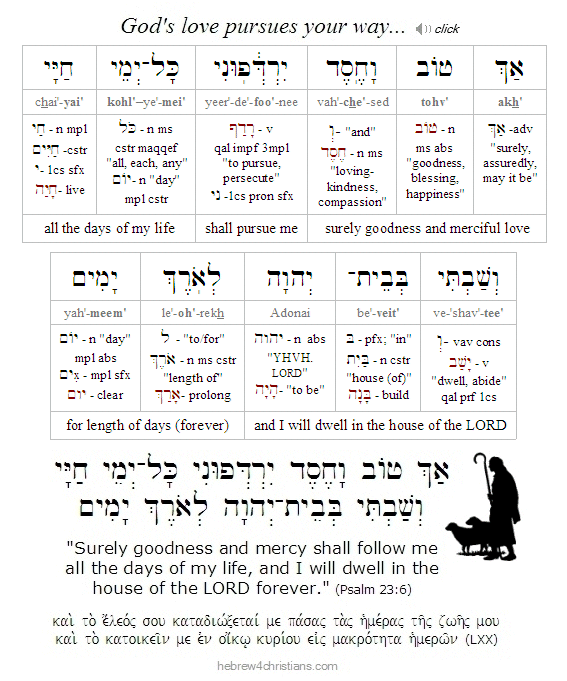 |
Addendum: Lazarus of Bethany...
There may be a connection between Lazarus of Bethany - the man Yeshua raised from the dead (as recorded in John 11) and the Lazarus named in this parable. First note that the raising of Lazarus is undoubtedly one of the greatest of all the miracles recorded in the New Testament, and of all miracles performed by Yeshua, this most clearly attested to his divinity and glory. Nevertheless, even after witnessing this miracle, many of the Pharisees remained faithless and the religious leadership thereafter conspired to kill him (John 11:46-56). By identifying the "rich man" in the parable with the religious leadership, Yeshua would be giving utmost warning that they were in utmost danger of blasphemy of the Holy Spirit's witness, the unpardonable sin that leads to eternal death (Matt. 12:31-32).
Treasuring God's Promise...
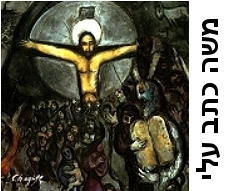
[ "If you believed Moses, you would believe me; for he wrote of me." - John 5:46 ]
08.06.23 (Av 19, 5783) A basic principle of Bible interpretation is succinctly stated in the axiom: "a text without a context is a pretext," and therefore we must endeavor to understand the New Testament in light of the Torah, not the other way around... Without the context of Torah, the meaning and terms of the New Testament will be obscure and subject to misunderstanding. Indeed, we must remember that the Messiah was "embedded" in the Jewish culture of his day (see Gal. 4:4-5), and that he was fluent in Torah reading and study (see Luke 4:16-21; John 4:22). Moreover, Yeshua plainly said that the Jewish Scriptures testify of Him: "And beginning with Moses and all the Prophets, he interpreted (διερμηνεύω) to them in all the Scriptures the things concerning himself" (Luke 24:27; John 5:39). We study Torah to know Yeshua, the "Living Torah" better, as he said: "Therefore every scribe who has been trained for the kingdom of heaven is like a master of a house, who brings out of his treasure what is new and what is old" (Matt. 13:52).
בלבי צפנתי אמרתך
למען לא אחטא־לך
be·lee·bee · tzah·fan'·tee · eem·rah·te'·kha
le·ma'·an · loh · e·che·tah-lakh

"In my heart I have treasured your word
so that I might not sin against you.
(Psalm 119:11)

Click to listen to the Hebrew text with some commentary:
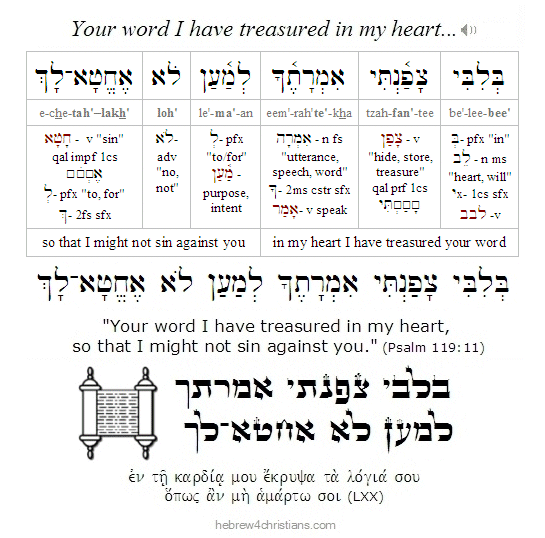
Some so-called Bible scholars claim that Jesus spoke Aramaic, not Hebrew. Well, consider this. If the law required that the king of the Jews was required to "make a copy of sefer Torah" (see Deut. 17:18-19), then surely Yeshua, the great King of the Jews, the Mashiach, read Hebrew and understood kotzo shel yod (קוֹצוֹ שֶׁל יוֹד) - "every jot and tittle" of its meaning (see Matt. 5:17-19). Indeed, Yeshua knew the traditional Hebrew blessings, prayers, and hymns (Matt. 26:26-30); he chanted Hebrew in synagogue (Luke 4:16), and he reasoned with the sages in Jerusalem, even as a young boy (Luke 2:42-27). Surely the true King of the Jews spoke lashon hakodesh, the holy language of Hebrew!
Parashat Re'eh:
The Blessing or the Curse...
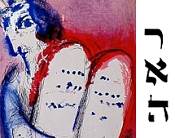
08.06.23 (Av 19, 5783) Our Torah portion this week (i.e., parashat Re'eh) begins, "See (רְאֵה), I give before you today a blessing and a curse: the blessing (הַבְּרָכָה), if you obey the commandments of the LORD your God, which I command you today, and the curse (הַקְּלָלָה), if you ... turn aside from the way that I am commanding you today, to go after other gods that you have not known" (Deut. 11:26-28).
We obtain God's blessing (i.e., berakhah: בְּרָכָה) when we obey the LORD, and our decision to obey manifests the blessed state of walking before the Divine Presence (the direct object marker et (את) before the word "the blessing" alludes to the blessings of "Aleph to Tav," that is from Yeshua, as described in Lev. 26:3-13). As King David said, "I have set (שִׁוִּיתִי) the LORD always before me..." (Psalm 16:8). David made a choice to "set" the LORD before his eyes, for he understood that opening his eyes to Reality was the only path of real blessing.
On the other hand, we obtain God's curse (i.e., kelalah: קְלָלָה) when we close our eyes and "forget" that the LORD is always present.... Suppressing God's truth invariably leads to idolatry, that is, to self exaltation. Note that the root word for the word "curse" (kalal) means to be treated as of little account, and therefore "ratifies" the rebellious heart's attitude toward God. This is middah keneged middah - we are ignored by the LORD as we ignore Him, just as we seen by Him when we truly seek His face (Isa. 55:6-7).
So we see that the blessing or the curse really comes from our own inward decision, and God establishes the path we have chosen. As King David said, "God supports my lot" (Psalm 16:5), and Solomon wrote: לב אדם יחשׁב דרכו ויהוה יכין צעדו - "The heart of man plans his way, but the LORD directs his steps" (Prov. 16:9).
Click to listen and learn the Hebrew text:
Note: Some of the sages say this admonition constitutes a severe reprimand of the immaturity of the people. Forty years after receving the Torah at Sinai and the people still need to be cajoled like children with promises of rewards and threats of punishments? Those who are mature in their faith recognize good and evil for what they are: they seek the good because it is the way of truth and life. It is a sign of carnality to seek God because of the manna he provides rather than to seek him as the giver of life itself....
Haftarah Reading for Re'eh...

08.06.23 (Av 19, 5783) The weekly haftarah portion (i.e., reading from the Prophets) is usually thematically connected with the weekly Torah portion; however, beginning with the Fast of the Fourth month until the end of the Jewish year, the connection changes. First we always read three prophetic portions of rebuke leading up to the fast day of Tishah B'Av. Then, following Tishah B'Av, and for the next seven weeks leading up to Rosh Hashanah (i.e., the new year), we read selections of comfort that foretell of the future redemption of the Jewish people and the coming Messianic Era.
The third of the "Seven Weeks of Comfort" that lead up to Rosh Hashanah is called Aniyah so'arah (i.e., עֲנִיָּה סעֲרָה, "O afflicted and storm-tossed one," Isa. 54:11-55:5), which reminds the Jewish people of God's eternal and unconditional covenant of peace. Indeed of the Jewish people it is said, "no weapon that is fashioned against you shall succeed, and you shall refute every tongue that rises against you in judgment." Therefore the LORD invites the people to drink from the waters of life: "Incline your ear, and come to me; hear, that your soul may live; and I will make with you an everlasting covenant (בְּרִית עוֹלָם), my steadfast, sure love for David (Isa. 55:3; Luke 1:68-75; Acts 13:34). Note. however, that when this Sabbath occurs on the New Moon of Elul, Isa. 66:1-24 is read instead.
Hebrew Lesson
Isaiah 54:5 Hebrew reading (click):
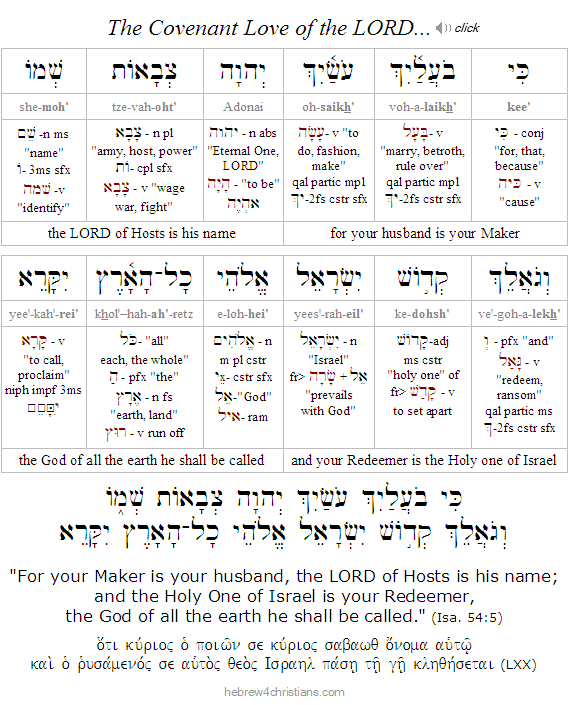 |
Freedom and Fear...

[ "We must fear God out of love, not love Him out of fear." - Saint Francis de Sales ]
08.04.23 (Av 17, 5783) Those who surrender every breath and moment of their lives to God, abiding in the refuge of the Eternal, are set free from common fears. The world is crucified to them; they are no longer swayed by the praises or threats of men, but seek only to know and honor the LORD in all their ways... As it says, "The fear of the LORD is a fountain of life, to turn away from the snares of death" (Prov. 14:27).
The fear of the LORD, or "yirat Adonai" (יִרְאַת יְהוָה), is reverential wonder over the sacredness of our lives; it is an apprehension of the infinite value of who were are and what we do... It is a holy hush of the heart, an immense respect for the glory and sanctity of life, and an abiding sense of awe over the worth, beauty, and overmastering glory of God. The fear of the LORD is life-affirming and healing, turning us away from the snares of death...
God is ever-present and leads the way back home: "Now to the One who is able to keep you from falling, and to cause you to stand, rejoicing, without blemish before His glorious presence, to the only God our Savior through Yeshua the Messiah, our Lord and great Lamb of God, be glory, majesty, power, and authority, before all time, and now, and for all eternity. Amen." Shabbat Shalom and great peace, love, and happiness to you all...
Gathering your Treasures...

[ "He is no fool who gives what he cannot keep to gain what he cannot lose." - Jim Elliot ]
08.04.23 (Av 17, 5783) In the parable of the "rich fool" (Luke 12:15-21), Yeshua tells the story of a certain rich man who acquired such worldly prosperity that he decided to store it all up so that he could retire in luxury and comfort. However, after he made his preparations God said to him: "You fool! This very night your soul will be collected from you. The things you have prepared, whose will they be?' Yeshua then warned: "This is how it will be for anyone who stores up treasure for himself but is not rich toward God."
We have to be on guard not to insulate ourselves with foolish faith that says we can provide for ourselves or create a hedge against future trouble. This is why Yeshua told his disciples to let go of their possessions, to give away their wealth, for then they would be rich toward God. "For where your treasure is, there will be your heart also" (Luke 12:34).
To live otherwise is to be a fool, that is, someone who misses the point of life. In this passage, the Greek word for "fool" is ἄφρων, which refers to an unthinking or thoughtless person -- someone who does not reflect on the purpose and end of life. In Hebrew the word for such a fool is "kesil" (כְּסִיל), from a root that means to be obtuse and indifferent to matters of spirituality (Prov. 1:22; 17:16). The fool despises words of wisdom (Prov. 23:9) and has no real objective in life other than that which is found in the immediacy of the moment (Prov. 17:24; 21:20, etc.).
Note that a fool is not a person of low or deficient intelligence but rather someone who is decidedly indifferent to spiritual reality. The fool says in his heart that God doesn't matter and that the goal of life is to gain carnal pleasures. He is egocentric, hedonistic, and blind to the real significance of life. He focuses on this passing world and its vanities and not on the world to come. עֵינֵי כְסִיל בִּקְצֵה־אָרֶץ - "The eyes of a fool are in the ends of the earth" (Prov. 17:24). He is someone who "stores up treasure for himself but is not rich toward God."
On the other hand, as the late Jim Elliot said, "He is no fool who gives what he cannot keep to gain what he cannot lose." That's gathering treasure toward God. The Hebrew word for love, "ahavah" (אַהֲבָה), means to give (הב) in sacrificial kindness or compassion. And indeed this is the heart of God revealed in the sacrificial life of Yeshua. When we reciprocate by giving of ourselves to God, we are made rich in the blessing of his love.
Clinging to worldly "riches" is dangerous because it creates a false sense of security that robs us of a close relationship with the Lord. Being rich toward this world makes you a fool before God. As Yeshua taught us, "Whoever desires to save his life will lose it, but whoever loses his life for my sake will find it. For what profit is it to a man if he gains the whole world, and loses his own soul? Or what will a man give in exchange for his soul?" (Matt. 16:25-26). "What is highly esteemed among men is an abomination in the sight of God" (Luke 16:15). "Until you have given up yourself to Him, you will not have a real self" (C. S. Lewis). Indeed worldly power and prosperity are no indicators of spiritual success...
Unlike the rich fool who sought his security by storing his "treasures" into larger barns, Yeshua told us not to be anxious and to trust in God alone for our security. He pointed to the birds of the air that "neither sow nor reap nor gather into barns." God provides and cares for them; won't he also therefore take care of you? (Luke 12:24). And he continued by asking "which of you by being anxious can add a single hour to his span of life?" The Greek word for "anxious" in this verse is μεριμνάω, from μερίζω, meaning to be inwardly divided or "double-minded." We are not to be "cross-eyed" in the way we look at things. Keep your mind set on the Lord and his care (Psalm 16:8). As Yeshua said to Peter after he sank in the waters, "O you of little faith, why did you doubt?" (i.e., διστάζω, lit., "think twice").
When we worry about things beyond our control we are acting like the rich fool who falsely assumed that he was in control of his life and that his security was to be found in his own resources... We build our lives upon the sand rather than the rock of God's truth; we focus on this world more than in the presence and promises of God.
Being "rich toward God" means partaking in the heavenly treasures of eternal life now, and investing the worldly treasures of temporal life for our everlasting blessing and the glory of God. It is a reversal of the "wisdom of the rich fool" because it values what God values over ourselves.... "Seek first the kingdom of God and his righteousness" (Matt. 6:3). True life is not to be found in the comforts and vanities of this world, but in earnest relationship with the Living God who is the Source and End of all enduring meaning, life, and happiness. Our treasure, our "riches toward God," is Yeshua, and that is where we will find our hearts.
Hebrew Lesson
Psalm 31:19 reading (click for audio):
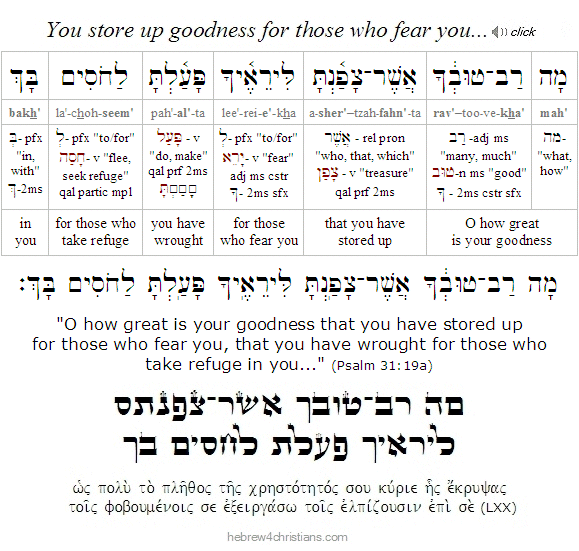 |
|





















































